Risultati: 486
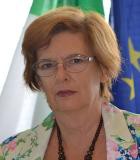
Funzione/Ruolo
Responsabile della Divisione Tecnologie Fisiche per la Sicurezza e la Salute (FSN-TECFIS) dell’ENEA
Percorso professionale
Laureata in Chimica presso l’Università di Roma La Sapienza nel 1978 con tesi sulla spettroscopia elettronica in fase gassosa. Dopo un periodo di borse di studio viene assunta dall’ENEA nel 1982 per collaborare al progetto di arricchimento isotopico dell’uranio via laser, al termine del quale trascorre alcuni periodi di specializzazione all’estero (Università Cattolica di Nijmegen, Politecnico di Zurigo). Le sue esperienze professionali sulla diagnostica e fotochimica laser la portano a diventare nel 1998 responsabile della Sezione FIS-SPET “Spettroscopia Molecolare” dell’ENEA a Frascati, incarico che manterrà fino al 2010. Nel 2010 viene nominata responsabile dell’intera Unità Tecnica “Applicazioni delle Radiazioni” (UTAPRAD) dell’ENEA Frascati. A seguito dell’ultima ristrutturazione dell’ENEA diventa responsabile della divisione TECFIS sempre a Frascati, incarico che tuttora ricopre.
Risultati scientifici
Sin dall’inizio della sua carriera la Roberta Fantoni si è occupata di attività di ricerca multidisciplinari e di progetti al confine fra le competenze di chimica e fisica (spettroscopia e processi chimici). Successivamente, sempre nel campo dell’interazione radiazione-materia, ha condotto la ricerca su processi di interesse applicativo più ampio, dalla biologia alla medicina ai beni culturali. Le sue solide competenze scientifiche e tecnologiche sono state di volta in volta utilizzate e adattate per nuove applicazioni specifiche, come le applicazioni laser in chimica fisica, sulla base di ricerche connesse con il progetto di separazione isotopica via laser prevalentemente riguardante processi multi-fotonici e spettroscopia ad alta risoluzione nell’infrarosso; la spettroscopia e diagnostiche laser, comprendenti la spettroscopia infrarossa mediante diodo laser, la spettroscopia laser Raman, la spettroscopia di emissione nel visibile/ultravioletto, la spettrometria per ionizzazione multifotonica, Laser Induced Fluorescence (LIF), Laser Induced Breakdown Spectroscopy (LIBS), Coherent AntiStokes Raman Scattering (CARS), Degenerate Four Wave Mixing (DFWM) e Laser Induced Grating Spectroscopy (LIGS); Applicazioni laser multisciplinari relative alla microelettronica (deposition di film sottili), alla scienza dei materiali (sintesi di nano-strutture), all’ambiente (decomposizione di inquinanti liquidi e gassosi) e alla caratterizzazione locale e remota di superfici relative a beni culturali; organizzazione e partecipazione a campagne di monitoraggio marine e sui beni culturali. Nel corso della sua carriera Roberta Fantoni ha personalmente stabilito e mantenuto contatti con scienziati responsabili di attività di ricerca in laboratori europei di eccellenza (nel Paesi Bassi, in Svizzera, Romania, Slovenia e Spagna) e in altri paesi del mondo (Russia, Egitto). Le attività di ricerca sono state prevalentemente finanziate attraverso progetti bilaterali di cooperazione finanziati dal Ministero degli Esteri (MAE).
Attività editoriali e pubblicazioni
È autrice di circa 161 pubblicazioni scientifiche, tra cui:
(2010), Popov AM, Colao F, Fantoni R. Spatial confinement of laser-induced plasma to enhance LIBS sensitivity for trace elements determination in soils. Journal of Analytical Atomic Spectrometry, 25:837-848.
(2010) Colao F, Fantoni R, P.Ortiz P, Vazquez MA, Martin JM, Ortiz R, Idris N. Quarry identification of historical building materials by means of laser induced breakdown spectroscopy, X-ray fluorescence and chemometric analysis. Spectrochimica Acta B, 65:688-694.
(2012) Almaviva S, Caneve L, Colao F, Fantoni R, Maddaluno G. Laboratory feasibility study of fusion vessel inner wall chemical analysis by Laser Induced Breakdown Spectroscopy. Chemical Physics, 398, 228–232.
(2012) Almaviva S, Caneve L, Colao F, Fantoni R, Maddaluno G. Remote-LIBS characterization of ITER-like plasma facing materials. Journal of Nuclear Materials, 421:73-79.
(2013) Fantoni R, Caneve L, Colao F, Fiorani L, Palucci A, Dell’Erba R, Fassina V. Laser-induced fluorescence study of medieval frescoes by Giusto de’ Menabuoi. Journal of Cultural Heritage,14: S59–S65.
(2013) Fantoni R, Almaviva S, Caneve L, Colao F, Popov AM, Maddaluno G. Development of Calibration-Free Laser-Induced-Breakdown-Spectroscopy based techniques for deposited layers diagnostics on ITER-like tiles. Spectrochimica Acta B, 87:153-160.
(2013 ) Caneve L, Colao F, Fantoni R, Fiorani L. Scanning lidar fluorosensor for remote diagnostic of surfaces. Nuclear Instruments and Methods in Physics Research A, 720:164–167.
(2014) Almaviva S, Botti S, Cantarini L, Fantoni R, Lecci S, Palucci A, Puiu A and Rufoloni A. Ultrasensitive RDX detection with commercial SERS substrates. Journal of Raman Spectroscopy, 45: 41–46.
(2014) Almaviva S, Fantoni R, Caneve L, Colao F, Fornarini L, Santagata A, Teghil R. Use of ns and fs pulse excitation in laser induced breakdown spectroscopy to improve its analytical performances: a case study on quaternary bronze alloys. Spectrochimica Acta B, 99:185-192.
(2014) Spizzichino V, Fantoni R. Laser Induced Breakdown Spectroscopy in Archeometry: a review of its application and future perspectives. Spectrochimica Acta B, 99:201-209.
(2015) Ortiz R, Ortiz P, Colao F, Fantoni R, Gómez-Morón MA, Vázquez MA. Laser spectroscopy and imaging applications for the study of cultural heritage murals. Construction and Building Materials, 98:35–43.
Riconoscimenti e premi
Nel 1992, Roberta Fantoni vince il Premio “Carnia Ape Verde” per il miglior progetto di ricerca per la tutela della vegetazione, bandito dalla regione Friuli Venezia-Giulia, con i colleghi R. Barbini, F. Colao, A. Palucci, S. Ribezzo.
Nel 1980 vince il Premio “G. Stampacchia” per il miglior lavoro in campo chimico, bandito dall’Università di Roma La Sapienza.

Area Storia e Filosofia
Competenze: didattica della storia di genere, public history e genere, storia del diritto e della condizione giuridica delle donne, storia della famiglia, storia della violenza subita e agita dalle donne, storia delle donne e di genere
Parole chiave: Costituzione e donne, diritti umani, famiglia, genere, violenza sulle donne
Regione: Lazio
Funzione/Ruolo
Professoressa associata di Storia del diritto medievale e moderno all’Università di Palermo.
Percorso professionale
Dopo la laurea in Lettere e il PhD in “Storia moderna e contemporanea - Storia della famiglia e dell'identità di genere fra XVIII e XX secolo nella società europea”, diventa ricercatrice ed attualmente ricopre il ruolo di professoressa associata di “Storia del diritto medievale e moderno” presso il Dipartimento di Giurisprudenza dell’Università di Palermo. Nella stessa Università detiene anche l’insegnamento di “European Women’s Legal History”. Simona Feci fa parte del Collegio dei docenti del dottorato internazionale in “Diritti umani. Evoluzione, tutela e limiti”, attivo presso l’Università di Palermo. Fa anche parte della Società italiana delle Storiche fin dal 1993. Nel corso degli anni è stata membro del comitato direttivo nazionale (2014-2016) ed ha presieduto la Società dal 2016 al 2020.
Risultati scientifici
Studiosa della condizione giuridica delle donne e della storia della famiglia, Simona Feci è stata coordinatrice italiana della Conferenza di ricerca trilaterale italo-franco-tedesca “Costruire un Archivio della storia delle donne e di genere in Europa. Diritti, lavoro e corpi dal medioevo all’età contemporanea»”.
Sostenuta dalla Deutsche Forschungsgemeinschaft (DFG), dalla Fondation Maison des Sciences de l’Homme (FMSH) e da Villa Vigoni – Centro italo-tedesco per l’eccellenza europea, la ricerca si è sviluppata nel triennio 2017-2019.
Negli ultimi cinque anni Feci ha approfondito soprattutto la storia della violenza maschile contro le donne, promuovendo incontri scientifici e di formazione attorno a questo tema e curando una raccolta di studi i cui risultati sono stati pubblicati. Attualmente la sua indagine sviluppa il rapporto tra violenza subita e violenza agita dalle donne nel corso dell’età moderna. Allo stesso tempo, sta curando una raccolta di studi che propone una lettura interdisciplinare di genere della Costituzione italiana.
Attività editoriali e pubblicazioni
[2020] Feci S, The Reception of Women’s and Gender History: A Perspective from the Italian Association of Women Historians, in Women’s History at the Cutting Edge. An Italian Perspective, edited by Teresa Bertolotti, Roma, Viella, pp. 45-53.
[2019] Feci S, Tendenze e indirizzi della storia di genere sull’età moderna in Italia. Un itinerario attorno alla Società Italiana delle Storiche, in Germania e Italia. Sguardi incrociati sulla storiografia, a cura di C. Cornelissen e G. D’ Ottavio, Bologna, Il Mulino, pp. 283-305 (Annali dell’Istituto Storico Italo-Germanico in Trento. Quaderni, 105).
[2019] Feci S, Se il diritto costruisce la storia delle donne. Una relazione nel campo della modernistica italiana, in Vingt-cinq ans après. Les femmes au rendez-vous de l’histoire, a cura di Enrica Asquer, Anna Bellavitis, Giulia Calvi, Isabelle Chabot, Maria Cristina La Rocca, Manuela Martini, Rome, Ecole française de Rome, pp. 247-264.
[2018] Feci S, Exceptional women. Female merchants and working women in Italy in the early modern period, in Gender, Law and Economic Well-Being in Europe from the Fifteenth to the Nineteenth Century: North versus South?, edited by Anna Bellavitis - Beatrice Zucca Micheletto, Routledge, pp. 62-76.
[2018] L’esclusione delle donne dalla successione ereditaria in Italia tra medioevo ed età moderna: una questione aperta. Rivista di Storia del diritto italiano, XCI (1): 149-181.
[2017] Feci S, Schettini L, a cura di, La violenza contro le donne nella storia. Contesti, linguaggi, politiche del diritto (sec. XV-XXI), Roma, Viella, pp. 288.
[2016] Feci S, Mobilité, droits et citoyenneté des femmes dans l’Italie médiévale et moderne. Clio. Femmes, Genre, Histoire, n. 43 Genre et citoyenneté: 47-72 (on line: https://clio.revues.org/13153).
[2004] Feci S, Pesci fuor d’acqua. Donne a Roma in età moderna: diritti e patrimoni, Roma, Viella, pp. 288.
Riconoscimenti e premi
Durante il mandato di presidenza della Società italiana delle storiche, alcune attività dell’associazione hanno ricevuto la medaglia premio di rappresentanza del Presidente della Repubblica Italiana, e in particolare il VII Congresso della Società Italiana delle Storiche “Genere e storia: nuove prospettive di ricerca “(Pisa, 2-4 febbraio 2017) e il convegno, che Feci ha ideato e concorso a organizzare, “Intorno al 1948. Otto articoli della Costituzione nella storia delle donne “(Roma, 8-9 novembre 2018).
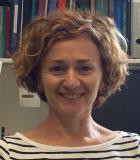
Funzione/Ruolo
Responsabile della Vaccinologia strutturale presso GSK Ricerca e Sviluppo, Siena, Italia
Percorso professionale
Dopo la laurea in Biofisica all’Università degli Studi di Tor Vergata nel 1993, prosegue gli studi attraverso una specializzazione in Biologia Strutturale di proteine vegetali presso il C.R.I.B.I. (Centro di Ricerca Interdipartimentale per le Scienze Innovative), all’Università degli studi di Padova. In seguito inizia le sue attività di ricerca per il dottorato presso i laboratori dell’EMBL. Nel 1998 consegue un dottorato di ricerca inBiologia Strutturale pressola Ruprecht-Karls-Universitat di Heidelberg in Germania. Durante i suoi studi trascorre diversi periodi di formazione all’estero: nel 1996 è fellow nel Dipartimento di Virologia della Medical University of Vienna, nel 1998 è PostDoctoral Fellow alla Howard Hughes Medical Institute, Children’s Hospital, Howard Medical School in Boston, MA, USA. Nel 1999 è PostDoctoral fellow nel Dipartimento di Virologia Strutturale presso il C.N.R.S. di Gif-sur-Yvette, Francia. Contemporaneamente (dal 2000 al 2003) collabora con il Dipartimento di Genetica Molecolare presso la Ecole Normale Superiore di Parigi, Francia. La sua formazione prosegue quindi dal 2004 in Italia presso il centro di Ricerche della GSK (precedentemente Novartis, in Siena, Italia) e le sue ricerche prima come ricercatrice, poi come Senior Research Investigator ed infine nel 2009 come Head of Structural Vaccinology.
Risultati scientifici
I suoi interessi scientifici si concentrano attualmente sulla correlazione tra le strutture di proteine di superficie batteriche e virali e la loro funzionalità. In particolare ha sviluppato la cosiddetta “Structural Vaccinology” un nuovo approccio che permette, partendo dalla conoscenza della struttura tridimensionale di tali proteine di superficie, di determinare gli epitopi più efficaci di una proteina e di ingegnerizzarli allo scopo di renderli più immunogenici e usarli in ultima analisi come vaccini. Tale approccio è stato di supporto nello sviluppo del Bexsero™, vaccino recentemente approvato dell’FDA per proteggere contro la infezione da Meningococco B ed è attualmente in uso nello sviluppo di ulteriori vaccini contro patogeni umani di origine virale e batterica. Da diversi anni fa parte di diversi gruppi di coordinamento di network europei dedicati alla struttura delle proteine (iNext).
Attività editoriali e pubblicazioni
È autrice di pubblicazioni scientifiche e capitoli di testi scientifici, tra i quali:
[2016] Vilas JL, Navas J, Gómez-Blanco J, de la Rosa-Trevín JM, Melero R, Peschiera I, Ferlenghi I, Cuenca J, Marabini R, Carazo JM, Vargas J, Sorzano CO. Fast and automatic identification of particle tilt pairs based on Delaunay triangulation. Journal of Structural Biology, 196(3):525-53.
[2016] Fiaschi L, Di Palo B, Scarselli M, Pozzi C, Tomaszewski K, Galletti B, Nardi-Dei V, Arcidiacono L, Mishra RP, Mori E, Pallaoro M, Falugi F, Torre A, Fontana MR, Soriani M, Bubeck Wardenburg J, Grandi G, Rappuoli R, Ferlenghi I, Bagnoli F. Auto-Assembling Detoxified Staphylococcus aureus Alpha-Hemolysin Mimicking the Wild-Type Cytolytic Toxin.Clinical and Vaccine Immunology, 6;23(6):442-50.
[2016] Biagini M, Spinsanti M, De Angelis G, Tomei S, Ferlenghi I, Scarselli M, Rigat F, Messuti N, Biolchi A, Muzzi A, Anderloni G, Brunelli B, Cartocci E, Buricchi F, Tani C, Stella M, Moschioni M, Del Tordello E, Colaprico A, Savino S, Giuliani MM, Delany I, Pizza M, Costantino P, Norais N, Rappuoli R, Masignani V.Expression of factor H binding protein in meningococcal strains can vary at least 15-fold and is genetically determined.Proceedings of the National Academy of Sciences USA, 8;113(10):2714-9.
[2015] Prevato M, Ferlenghi I, Bonci A, Uematsu Y, Anselmi G, Giusti F, Bertholet S, Legay F, Telford JL, Settembre EC, Maione D, Cozzi R. Expression and Characterization of Recombinant, Tetrameric and Enzymatically Active Influenza Neuraminidase for the Setup of an Enzyme-Linked Lectin-Based Assay.PLoS One, 17;10(8).
[2015] Prevato M, Cozzi R, Pezzicoli A, Taddei AR, Ferlenghi I, Nandi A, Montomoli E, Settembre EC, Bertholet S, Bonci A, Legay F. An Innovative Pseudotypes-Based Enzyme-Linked Lectin Assay for the Measurement of Functional Anti-Neuraminidase Antibodies.PLoS One, 12;10(8).
[2015] Ultrastructural Visualization of Vaccine Adjuvant Uptake In Vitro and In Vivo.Giusti F, Seubert A, Cantisani R, Tortoli M, D'Oro U, Ferlenghi I, Dallai R, Piccioli D. Microsc Microanal. 2015 Aug;21(4):791-5.
[2015] Toniolo C, Balducci E, Romano MR, Proietti D, Ferlenghi I, Grandi G, Berti F, Ros IM, Janulczyk R.Streptococcus agalactiae capsule polymer length and attachment is determined by the proteins CpsABCD.Journal of Biological Chemistry, 10;290(15):9521-32.
[2014] Malito E, Biancucci M, Faleri A, Ferlenghi I, Scarselli M, Maruggi G, Lo Surdo P, Veggi D, Liguori A, Santini L, Bertoldi I, Petracca R, Marchi S, Romagnoli G, Cartocci E, Vercellino I, Savino S, Spraggon G, Norais N, Pizza M, Rappuoli R, Masignani V, Bottomley MJ.Structure of the meningococcal vaccine antigen NadA and epitope mapping of a bactericidal antibody.Proceedings of th National Academy of Sciences, 2;111(48):17128-33.
[2014] Rossi O, Pesce I, Giannelli C, Aprea S, Caboni M, Citiulo F, Valentini S, Ferlenghi I, MacLennan CA, D'Oro U, Saul A, Gerke C. Modulation of endotoxicity of Shigella generalized modules for membrane antigens (GMMA) by genetic lipid A modifications: relative activation of TLR4 and TLR2 pathways in different mutants.Journal of Biolical Chemestry, 5;289(36):24922-35.
[2012] Berlanda Scorza F, Colucci AM, Maggiore L, Sanzone S, Rossi O, Ferlenghi I, Pesce I, Caboni M, Norais N, Di Cioccio V, Saul A, Gerke C. High yield production process for Shigella outer membrane particles. PLoS One, 7(6).
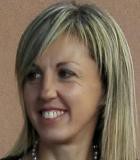
Funzione/Ruolo
Professoressa associata di Chimica all'Università degli Studi di Milano
Percorso professionale
Dopo aver conseguito la laurea in Chimica presso l'Università degli Studi di Milano nel 1993, prosegue la sua formazione con un dottorato di ricerca in Scienze Chimiche conseguito nel 1997. Dal 1999 al 2012 è ricercatrice in Chimica Analitica presso l'Università di Milano nella facoltà di Scienze Matematiche, Fisiche e Naturali. Dal 2012 al 2014 svolge la sua attività di ricerca al Dipartimento di Chimica della stessa università. Dal 2015 è professoressa associata di Chimica Analitica. È docente di Chimica Analitica e Chimica dell'Ambiente presso i corsi di Laurea in Chimica e Chimica Industriale dell'Università degli Studi di Milano. Dal 2008 è componente del collegio dei docenti del Dottorato in Chimica.
Risultati scientifici
Le tematiche di ricerca di Paola Fermo riguardano lo studio e la caratterizzazione di matrici ambientali e in particolare l'aerosol atmosferico (particelle di dimensioni micrometriche in sospensione nell'atmosfera) e gli inquinanti in stato gassoso, sia esternamente, sia in ambienti interni. Il principale obbiettivo della ricerca è la quantificazione dei costituenti delle frazioni a diversa granulometria (PM10, PM2.5, ecc.) del particolato atmosferico (PM) per determinare le sorgenti responsabili delle emissioni. A tale proposito è stato sviluppato un metodo analitico per la quantificazione del levoglucoasano, marker univoco della combustione della legna, un'importante sorgente di particolato atmosferico non solo in ambiente rurale ma anche in ambiente urbano. Le specie analizzate all'interno del PM includono i principali costituenti inorganici e organici. Inoltre vengono quantificate sostanze di interesse dal punto di vista tossicologico (IPA, idrocarburi policiclici aromatici) che mostrano effetti negativi sulla salute umana e sono ritenute cancerogene. In ambiente urbano viene anche studiato il degrado indotto dall'inquinamento atmosferico su superfici lapidee di interesse per i beni culturali. All'interno delle tematiche ambientali rientra lo studio dei contaminanti presenti nelle acque (potabili e reflue). Un ulteriore filone di ricerca è inerente allo studio di manufatti di interesse storico artistico (ceramiche, malte, stucchi, dipinti, ecc.).
Attività editoriali e pubblicazioni
Paola Fermo fa parte dell'editorial board delle riviste: Mediterranean Journal of Chemistry, Annals of Chromatography and Separation Techniques, American Journal of Analytical Chemistry, Journal of Analytical & Bioanalytical Techniques. Svolge inoltre l'attività di reviewer per numerose riviste internazionali.
È autrice di circa 12 capitoli di libri, numerosi atti di convegni e circa 100 pubblicazioni su riviste internazionali, fra cui:
(2019) Ielpo, P., Mangia, C., Marra, G.P., Comite, V., Rizza, U., Uricchio, V.F., Fermo, P. Outdoor spatial distribution and indoor levels of NO2 and SO2 in a high environmental risk site of the South Italy, Science of the Total Environment, 648:787-797.
(2018) Fermo P., Goidanich S., Comite V., Toniolo L., Gulotta D., Study and characterization of environmental deposition on marble and surrogate substrates at a monumental heritage site; Geosciences; in press
(2018) Amadori M.L., Raspugli V., Comite V., Fermo P., Mini F.M., La Russa M., Maekawa Y., Integrated Scientific Investigations On Constitutive Materials From Me-taw-ya Temple, Pagán Valley, Burma (Myanmar), Measurement, ISSN 0263-2241, https://doi.org/10.1016/j.measurement.2018.09.004.
(2018) Amadori, M.L., Pallante, P., Fermo, P., Emami, M.A., Chaverdi, A.A., Callieri, P., Matin, E., Advances in Achaemenid brick manufacturing technology: Evidence from the monumental gate at Tol-e Ajori (Fars, Iran) Applied Clay Science, 152: 131-142.
(2018) Vecchi, R., Bernardoni, V., Valentini, S., Piazzalunga, A., Fermo, P., Valli, G., Assessment of light extinction at a European polluted urban area during wintertime: Impact of PM1 composition and sources, Environmental Pollution, 233: 679-689.
(2018) Daellenbach, K.R., El-Haddad, I., Karvonen, L., Vlachou, A., Corbin, J.C., Slowik, J.G., Heringa, M.F., Bruns, E.A., Luedin, S.M., Jaffrezo, J.-L., Szidat, S., Piazzalunga, A., Gonzalez, R., Fermo, P., Pflueger, V., Vogel, G., Baltensperger, U., Prévôt, A.S.H., Insights into organic-Aerosol sources via a novel laser-desorption/ionization mass spectrometry technique applied to one year of PM10 samples from nine sites in central Europe Atmospheric Chemistry and Physics, 18 (3): 2155-2174.
(2017) Corsini E, Ozgen S, Papale A, Galbiati V, Lonati G, Fermo P, Corbella L, Valli G, Bernardoni V, Dell'Acqua M, Becagli S, Caruso D, Vecchi R, Galli CL, Marinovich M. Insights on wood combustion generated proinflammatory ultrafine particles (UFP). Toxicology Letters, 266, 74-84.
(2016) Daellenbach KR, Bozzetti C, Křepelová A, Canonaco F, Wolf R, Zotter P, Fermo P, Crippa M, Slowik JG, Sosedova Y, Zhang Y, Huang R, Poulain L, Szidat S, Baltensperger U, El Haddad I, Prévôt ASH. Characterization and source apportionment of organic aerosol using offline aerosol mass spectrometry. Atmospheric Measurement Techniques, 9, 23-39.
(2016) Cattaneo A, Fermo P, Urso P, Perrone MG, Piazzalunga A, TarlassiJ, Carrer P, Cavallo DM. Particulate-bound polycyclic aromatic hydrocarbon sources and determinants in residential homes. Environmental Pollution, 218, 16-25.
(2016) Ielpo P, Fermo P, Comite V, Mastroianni D, Viviano G, Salerno F, Tartari G. Chemical characterization of biomass fuel particulate deposits and ashes in households of Mt. Everest region (NEPAL). Science of The Total Environment, 573, 751-759.
(2016) Amadori ML, Del Vais C, Fermo P, Pallante P. Archaeometric researches on the provenance of Mediterranean Archaic Phoenician and Punic pottery. Environmental Science and Pollution Research International, 1-29.
(2016) Fasani D, Fermo P, Barroso PJ, Martín J, Santos JL, Aparicio I, E. Alonso E. Analytical Method for Biomonitoring of PAH Using Leaves of Bitter Orange Trees (Citrus aurantium): a Case Study in South Spain. Water Air and Soil Pollution, 227, 360.
Riconoscimenti e premi
Paola Fermo è componente del Comitato scientifico della Società Italiana di Medicina Ambientale (SIMA) e fa parte della Società Chimica Italiana (Divisione di Chimica Analitica e Divisione di Chimica dell'Ambiente e dei Beni Culturali), della Società Italiana di Archeometria (AIAR) e del consorzio INSTM (Consorzio Internazionale per la Scienza e la Tecnologia dei Materiali).

Funzione/Ruolo
Professoressa associata di Politica economica, Università di Salerno
Percorso professionale
Nel dicembre 2013 ha ottenuto la qualifica di professoressa associata in Politica economica (SECS-P/02), in Economia Applicata (SECS-P/06) e in Statistica Economica (SECS-S/03). Da ottobre 2016 è in servizio come professoressa associata di Politica Economica al DISES (UNISA) dove dal 2006 è stata ricercatrice a tempo indeterminato e professore aggregato presso l'Università degli Studi di Salerno (Dipartimento di Scienze Economiche e Statistiche) e Ha svolto dal 2002 al 2005 il ruolo di consulente per l'Area Studi e Statistiche dell'ICE di Roma e dal 2002 al 2006 è stata ricercatrice a tempo indeterminato presso ISSM-CNR. Dal 1999 al 2002 è stata assistente di ricerca presso il CEIS, Università di Roma "Tor Vergata". Ha conseguito nel 2000 un Dottorato di ricerca in “Istituzioni, ambiente e politiche per lo sviluppo”, Università di Roma "La Sapienza", nel 1996 ha conseguito il Master in International Economics presso Università del Sussex (UK). Aveva svolto nel 1995 un Master, Economia delle imprese, Facoltà di Economia, Università di Napoli "Federico II" dove nel 1994 ha conseguito la Laurea con 110/110 con lode.
Risultati scientifici
Anna Ferragina si occupa di ricerca empirica e teorica nel commercio internazionale; analisi dell'impatto della liberalizzazione degli scambi tra l'UE e i paesi dell'Europa orientale; miglioramento della qualità e integrazione dei mercati del lavoro nazionali e regionali, con particolare attenzione all'Italia; implicazioni della liberalizzazione degli scambi sulla delocalizzazione e sulla frammentazione della produzione; test empirici per le determinanti sottostanti la frammentazione produttiva internazionale, come i differenziali nei vantaggi comparativi e nel costo dei fattori e il contenuto di abilità tra le imprese e tra i modelli di specializzazione nazionali. La ricerca applicata attuale si concentra sull'impatto degli investimenti esteri diretti (IDE) sulle imprese nazionali che guardano alle dinamiche dell'impresa e agli effetti di spillover; la liberalizzazione degli scambi nell'ambito del partenariato euro-mediterraneo e le determinanti degli IDE dall'Unione europea ai partner mediterranei; scoperta economica, innovazione, persistenza e diversificazione delle esportazioni come fattori trainanti del commercio e della crescita; modelli di demografia di impresa e crescita; localizzazione delle imprese e ricadute sulla conoscenza locale.
Attività editoriali e pubblicazioni
È autrice di numerose pubblicazioni scientifiche su riviste e volumi nazionali ed internazionali, fra cui:
Curatele
[2014] Ferragina A.M.,Taymaz E. & Yilmaz K. (eds.), Innovation, Globalisation and Firm Dynamics. Lessons for Enterprise Policy, New York, London: Routledge, ISBN: 9780415836777.
[2011] Ferragina A.M., Bridging the gap: the role of trade and FDI in the Mediterranean, (co-edited with A. Amendola), Rubbettino, ISBN: 9788849832303.
Riviste internazionali
[2018] Ferragina A.M.,Are Italian firms performances influenced by innovation of domestic and foreign firms nearby in space and sectors?(With Nunziante G.), EPI - Economia e Politica Industriale, in Journal of Industrial and Business Economics. DOI: 10.1007/s40812-018-0090-4.
[2018] Iandolo S. and Ferragina A.M., Iandolo S., “Does different persistence in internationalization and innovation influence firms’ performance?Under review.
[2016] Ferragina A.M., Financial constraints and productivity growth across the size spectrum: microeconomic evidence from Morocco, in Eurasian Business Review, pp. 1-21, with Mazzotta, F.; Sekkat, K. ISSN: 1309-4297.DOI:10.1007/s40821-016-0055-3.
[2015] Ferragina A.M., Italian FDI and Exports at sectoral level: substitutes or complements?, in Global Economy Journal, 15, 2, 277–310, ISSN (Online) 1553-5304, ISSN (Print) 2194-5659, DOI: 10.1515/gej-2015-0005, July.
[2015] Ferragina A.M., Agglomeration economies in Italy: impact on heterogeneous firms’ exit in a multilevel framework, in Journal of Industrial and Business Economics, DOI: 10.1007/s40812-015-0016-3.
[2014] Ferragina A.M., Does multinational ownership affect firm survival?(With Pittiglio R. and Reganati F.), in Journal of Business Economics and Management, 15(1), DOI 10.3846/16111699.2012.707622.
[2013] Ferragina A.M., Mazzotta F., FDI spillovers on firms' survival in Italy: absorptive capacity matters!, in The Journal of Technology Transfer, ISSN: 0892-9912, DOI: 10.1007/s10961-013-9321.
[2012] Ferragina A.M., Are exporters and multinational firms more resilient over a crisis? First evidence for manufacturing enterprises in Italy, (with A. Amendola, R. Pittiglio and F. Reganati), in Economics Bulletin, 32, 3 pp. 1914-1926, ISSN: 1545-2921.
[2011] Ferragina A.M., The impact of FDI on firm survival, (with Pittiglio R. and Reganati F.), in Structural Change and Economic Dynamics, special issue Productivity, Profitability and Growth: the Empirics of Firm Dynamics. ISSN: 0954-349X, DOI: 10.1016/j.strueco.2011.10.002.
[2009] Ferragina A.M., A Tale of Parallel Integration Processes. A Gravity Analysis of EU Trade with Mediterranean and Central and Eastern European Countries, (with Pastore F. and Giovannetti G.), in Review of Middle East Economics and Finance, 5, 2, June, already published in IZA Discussion Paper, No. 1829. ISSN: 1475-3693, DOI: 10.2202/1475-3693.1228.7
Riconoscimenti e premi
Ha vinto diverse borse di ricerca ed ha partecipato a progetti finanziati da diverse istituzioni nazionali e internazionali (World Bank, Femise, Commissione Europea, CNR, Scuola Superiore di Pubblica Amministrazione, MAE, CeSPI, ICE, Regione Lazio, CEIS- Università di Roma "Tor Vergata", Università di Parma, Università di Napoli "Federico II").
È membro eletto dello Steering Committee del FEMISE (Network Euromediterraneo degli Istituti di Economia).

Area STEM: Ingegneria
Competenze: automatica, robotica, sistemi di controllo avanzati
Parole chiave: controllo dei processi, controllo del traffico, controllo di autoveicoli, controllo di micro-reti e sistemi energetici in rete, guida autonoma, interazione umani-robot, robotica, smart mobility
Regione: Lombardia
Funzione/Ruolo
Professoressa ordinaria di Automatica all'Università di Pavia
Percorso professionale
Consegue la Laurea in Ingegneria Elettronica nel 1987 e il Dottorato in Ingegneria Elettronica e Informatica nel 1992. Diventa Ricercatrice Universitaria presso l’Università di Genova (aprile 1992), Professoressa Associata presso l’Università di Pavia (novembre 1998) e Professoressa Ordinaria di Automatica sempre presso l’Università di Pavia (Gennaio 2005).
Risultati scientifici
Si è occupata di controllo di sistemi complessi (sistemi robotici, reti di autoveicoli, traffico veicolare, reti energetiche anche basate su risorse rinnovabili). Ha proposto nuovi algoritmi per il controllo di impianti e processi il cui modello matematico è affetto da incertezze. Ha proposto nuovi approcci per il controllo del traffico veicolare nelle reti di trasporto con l’obiettivo di ridurre le congestioni e l’impatto ambientale. Si è occupata di controllo avanzato di autoveicoli, collaborando con importanti case automobilistiche e coordinando il gruppo di ricerca italiano in due progetti europei (PROTECTOR, ITEAM). In particolare, ha proposto soluzioni per sistemi di ausilio alla guida (ADAS) e guida autonoma. Si è occupata di interazione uomo-robot proponendo un approccio basato sull’uso congiunto di metodologie di controllo convenzionali e di intelligenza artificiale (deep reinforcement learning). Ha pubblicato più di 380 lavori scientifici, tra cui 118 articoli su riviste internazionali e 3 libri scientifici. Ha inoltre contribuito con capitoli invitati a 23 libri.
Attività editoriali e pubblicazioni
Antonella Ferrara è autrice di numerose pubblicazioni, fra cui:
[2019] Ferrara A, Incremona G.P, Cucuzzella M. Advanced and Optimization Based Sliding Mode Control. SIAM.
[2018] Ferrara A, Simona S, Siri S. Freeway Traffic Modelling and Control. Springer.
[2017] Ferrara A, (Ed.).Sliding Mode Control of Vehicle Dynamics. IET Digital Library.
[2019] Regolin E, Alatorre A, Zambelli M, Victorino A, Charara A, Ferrara A. A Sliding Mode Virtual Sensor for Wheel Forces Estimation with Accuracy Enhancement via EKF. IEEE Transactions on Vehicular Technology, 68(4): 3457-3471.
[2018] Sangiovanni B, Rendiniello A, Incremona G.P, Ferrara A, Piastra M. Deep Reinforcement Learning for Collision Avoidance of Robotic Manipulators, Proceedings of the European Control Conference ECC 2018, Limassol, Cyprus.
[2018] Canudas de Wit C., Ferrara A. A Variable-Length Cell Transmission Model for Road Traffic Systems. Transportation Research Part C: Emerging Technologies, 97: 428-455.
[2018] Cucuzzella M, Lazzari R, Trip S, Rosti S, Sandroni C, Ferrara A. Sliding mode voltage control of boost converters in DC microgrids, Control Engineering Practice, 73:161-170.
[2017] Cucuzzella M, IncremonaG.P, Ferrara A. Decentralized Sliding Mode Control of Islanded AC Microgrids with Arbitrary Topology. IEEE Transactions on Industrial Electronics, 64(8): 6706-6713.
[2017] Incremona G.P, Ferrara A, Magni L. MPC for Robot Manipulators with Integral Sliding Modes Generation. IEEE/ASME Transactions on Mechatronics, 22(3):1299-1307.
[2015]Ferrara A, Simona S, Siri S. Event-triggered model predictive schemes for freeway traffic control.Transportation Research Part C: Emerging Technologies, 58(Part C):554–567.
[2015] Goggia T, Sorniotti A, De Novellis L, Ferrara A, Gruber P, Theunissen J, Steenbeke D, Knauder B, Zehetner J. Integral Sliding Mode for the Torque-Vectoring Control of Fully Electric Vehicles: Theoretical Design and Experimental Assessment. IEEE Transactions on Vehicular Technology, 64(5):1701-1715.
[2012] Capisani L, Ferrara A, Trajectory Planning and Second Order Sliding Mode Motion/Interaction Control for Robot Manipulators in Unknown Environments.IEEE Transactions on Industrial Electronics, 59(8):3189 – 3198.
Riconoscimenti e premi
1986, "IEEE North Italy Section Electrical Engineering Student Award"
2003, Senior Member of the IEEE
2006, Outstanding Reviewer for Automatica Award
2013.2016, Chair of the Women in Control Committee of the IEEE Control Systems Society
2012; 2016-2018, Member of the Board of Governors IEEE Control Systems Society
2015-present, Member of the European Control Association (EUCA) Council
2019, "EPSON EMEA WIN-A-ROBOT Contest Award"
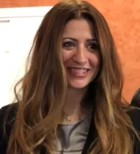
Funzione/Ruolo
Corporate Social Responsibility Country Manager IBM Italia e IBM Master Inventor
Percorso professionale
Laureata in Scienze dell’Informazione all’Università di Bari. Vince una borsa di studio al CNR di Genova per la sezione informatica. Trascorre due anni di ricerca presso il CORINTO (Consorzio di Ricerca Nazionale per Tecnologia ad Oggetti) a Bari. Subito dopo inizia a lavorare per l’IBM, dove ricopre diversi ruoli in differenti settori, ma rimanendo sempre nella realizzazione di progetti digitali innovativi. Riveste il ruolo di dirigente per IBM e IBM Italia della Responsabilità Sociale di Impresa.
Nel 2016 viene selezionata dal Commissario per l’attuazione all’agenda digitale per il Governo italiano, Diego Piacentini, ed entra a far parte del Team per la Trasformazione Digitale per la Presidenza del consiglio. Per ricoprire il ruolo di Esperto Digitale richiede ed ottiene l’aspettativa da IBM. Da Febbraio 2019 è la nuova Direttrice di Fondazione IBM ed anche Corporate Citizenship manager per l’Italia. Floriana dal 2008 è stata insignita della nomina di Master Inventor, nel suo curriculum 21 brevetti nel campo digitale. Leader per Italia di progetti NERD? Non è Roba per Donne? a P-Tech.
Risultati scientifici
Floriana Filomena Ferrara è autrice di 21 brevetti nell’ambito dell’innovazione digitale.
Digital-entusiasta, ama condividere la sua passione soprattutto con le studentesse delle scuole superiori puntando ad incoraggiare le giovani donne ad intraprendere studi nel campo STEM. Diversi i progetti che la vedono protagonista, il principale è il progetto “NERD? - Non È Roba per Donne?”, nato da una collaborazione tra IBM e la professoressa Paola Velardi della Sapienza . Il progetto al momento ha raggiunto 10.000 studentesse in Italia grazie alla collaborazione di 100 colleghe/amiche volontarie della Fondazione IBM e alla disponibilità di scuole e Università sparse per tutta l’Italia. In dettaglio le Univerisità coinvolte sono: Bicocca Milano, Università Alessandria e Vercelli, Università di Genova, Università di Padova, Federico II Napoli, Politecnico di Bari e Università di Bari.
Attività editoriali e pubblicazioni
[2000-2018] #61 Publication in IBM Tech Disclosure Bulletin
[1997] Ferrara, Corinto & Aphrodite a new Object Oriented methodology. SEDBT, CNR.
[1996] Ferrara, Clematis, Cassano, Spagnulo. Peucher&Douglass for the Processing Terrain with characterisation on "Triangolazione", “Rapporto Tecnico”, IMA 14/95.
[1996] Cassano, Clematis, Ferrara, Spagnulo, Network based parallel processing for terrain characterisation on irregular simple data. “High-Performance Computing and Networking”, HPCN Europe 1996: 940-941.
Riconoscimenti e premi
2008-2019 Master inventor https://en.wikipedia.org/wiki/IBM_Master_Inventor
2015, Una delle 100 donne che contano nel Digitale http://www.chefuturo.it/2015/08/100-donne-digitali-italia/
2016, One of the 100 woman in the Digital in Italy http://startupitalia.eu/67126-20161229-le-100-donne-nel-digitale-del-2016
2017, one of 15 influential Italian women in the world of digital technology, technology and innovation of https://www.digitalic.it/economia-digitale/donne-influenti-digitale-italia-digiwomen-2017
2017, When the innovation is woman: 150 women in Italy http://startupitalia.eu/76729-20170815-150-profili-al-femminile-da-seguire-su-innovazione-startup-e-digitale
2018, Premio Eccellenze Joniche 2018 http://www.eccellenzejoniche.it/
2018, Le 150 donne che contano nel digitale https://startupitalia.eu/95739-20180815-le-150-donne-da-seguire-in-italia-su-startup-innovazione-e-digitale
2019, Role model per Sistema Scuola-Impresa http://www.elis.org/aiutiamo-i-ragazzi-realizzare-i-loro-sogni
2019, Premio donna dell’anno per l’Innovazione, della rivista D la Repubblica delle donne

Funzione/Ruolo
Professoressa ordinaria di Informatica presso l'Università dell'Insubria di Varese
Percorso professionale
Dopo aver conseguito la laurea in Informatica all'Università di Milano nel 1992, prosegue la sua formazione attraverso un dottorato di ricerca in Informatica presso la stessa università nel 1998. Durante l'estate del 1996 svolge un periodo di ricerca come visiting researcher al Dipartimento di Informatica della George Mason University di Fairfax in Virginia, nei due anni successivi è visiting researcher presso la Rutgers University di Newark, in New Jersey. Nel 1998 torna in Italia e ricopre il ruolo di assistente alla docenza di Informatica presso l'Università di Milano. Successivamente diventa professoressa ordinaria di Informatica dell'Università dell'Insubria di Varese.
Risultati scientifici
Le sue attività di ricerca sono legate ai vari aspetti dei sistemi di gestione dei dati, compresa la sicurezza del web, il controllo degli accessi e la privacy. Recentemente è stata impegnata in diversi progetti di ricerca come "ISocial" che sviluppa sistemi evoluti per la protezione della privacy nelle reti sociali. Ha lavorato al progetto della UE Euforbia, che prevedeva una serie di esperimenti sul filtraggio dei documenti in Internet secondo un approccio imparziale. L'obiettivo era produrre un nuovo sistema di esame delle informazioni più potente e flessibile, in grado di adattarsi alle esigenze culturali di ogni utilizzatore. Questo sistema è capace di operare una selezione in base al contenuto semantico delle informazioni, e si adatta alla descrizione degli argomenti presenti in un determinato sito web. Attualmente di occupa di problematiche di sicurezza e privacy in ambito IoT (Internet of Things) e Big Data.
Attività editoriali e pubblicazioni
È autrice di numerose pubblicazioni fra cui:
(2015) N. Laleh, B. Carminati, E. Ferrari. Risk Assessment in Social Networks based on User Anomalous Behaviour. IEEE Transactions on Dependable and Secure Computing, 15(2):295-308.
(2015) P. Colombo, E. Ferrari. Privacy aware access control for Big Data: a research roadmap. Big Data Research, 2(4).
(2014) Akcora C, Carminati B, Ferrari E, Kantarcioglu M. Detecting Anomalies in Social Network Data Consumption. Social Network Analysis Mining, 4(1):231.
(2014) Parra-Arnau J, Perego A, Ferrari E, Fornè J & Rebollo-Monedero D. Privacy-Preserving Enhanced Collaborative Tagging. IEEE Transactions on Knowledge and Data Engineering, 26(1):180-193.
(2013) Carminati B, Ferrari E, Viviani M. Security and Trust in Online Social Networks, Synthesis Lectures on Information Security, Privacy and Trust. Morgan & Claypool.
(2011) Cao J, Carminati B, Ferrari E, Tan KL. CASTLE: Continuously Anonymizing Data Streams. IEEE Transactions on Dependable and Secure Computing, 8(3): 337-352.
(2010) Bonchi F, Ferrari E. Privacy-Aware Knowledge Discovery: Novel Applications an
Articoli in atti di congressi internazionali:
(2016) Carminati B, Colombo P, Ferrari E & Sagirlar G. Enhancing User Control on Personal Data Usage in Internet of Things Ecosystems. Proceedings of the 13th IEEE International Conference on Services Computing, San Francisco, USA.
(2016) Colombo P & Ferrari E. Towards Virtual Private NoSQL Datastores. Proceedings of the32nd IEEE International Conference on Data Engineering, Helsinki, Finlandia.
(2014) Bahri L, Carminati B, Ferrari E. Community-based Identity Validation on Online Social Networks. Proceedings of the 34th International Conference on Distributed Computing Systems Madrid, Spagna.
Riconoscimenti e premi
Per le sue ricerche nel campo della privacy e della sicurezza, Elena Ferrari è stata premiata nel 2009 da una delle due più importanti associazioni internazionali di riferimento (IEEE - Institute of Electrical and Electronic Engineers) con il Technical Achievement Award. Nel 2011 ha ottenuto il Google Research Award per le sue ricerche nel campo della privacy nelle reti sociali mentre nel 2014, ha ottenuto l'IBM Faculty Award per le sue ricerche sulla privacy dei big data. E' IEEE fellow e ACM (Association for Computing Machinery) Distinguished Scientist.

Funzione/Ruolo
Consigliera di Economia e ESTH (Ambiente, Scienza, Tecnologia e Salute) presso il Consolato generale degli Stati Uniti a Milano.
Percorso professionale
Alba Ferreri è entrata a far parte del Consolato Generale degli Stati Uniti a Milano come Consigliera economica e scientifico-tecnologica nel novembre 2021. In precedenza, ha lavorato per oltre 7 anni come Consigliera politica e istituzionale presso il Consolato Generale degli Stati Uniti di Napoli, occupandosi di politica locale, criminalità organizzata, migrazione e questioni globali. Prima di iniziare la sua carriera come Foreign Service National presso il Dipartimento di Stato americano, è stata docente e ricercatrice universitaria in Politica comparata presso l'Università di Siena, Italia, e presso Sciences Po Bordeaux, Francia. Ha conseguito una laurea e un master in scienze politiche e relazioni internazionali (Università di Siena), un master in diplomazia e storia delle relazioni internazionali (Università di Firenze) e un dottorato di ricerca in Politica comparata ed europea (Università di Siena). Attualmente è iscritta al Master of Business Administration presso il MIB Trieste School of Management.
Risultati scientifici
I suoi principali interessi di ricerca e le sue pubblicazioni si concentrano sugli studi sulle élite, sulle relazioni tra potere esecutivo e legislativo, sugli affari dell'Unione europea e sul ruolo dell'opinione pubblica. Ultimamente, ha sviluppato un interesse per i modelli di gestione strategica, con particolare attenzione al ruolo della leadership nella gestione delle imprese internazionali.
Attività editoriali e pubblicazioni
Ferreri, A., ‘Debating Europe. Effects of the Eurovision Debate on Young Voters’, ComPol, Vol. 16, N. 3, pp. 343-364, 2015; co-authored with Andrea Pedrazzani, Luca Pinto and Riccardo Ladini
Ferreri, A.: ‘Governance economica europea in tempi di crisi e scelte di policy nazionali: l’austerità nel discorso parlamentare italiano’; in ‘Neoliberalismo all’Italiana, edited by Giulio Moini, Ediesse, 2015; co-authored with Cavatorto, Sabrina.
Ferreri, A. Armchair quarterback or Most Valuable Player? The Italian parliament debating economic planning with a crisis in the offing (2006-2014), in Papakostas, N. and Pasamitros, N. (eds.), EU: Beyond the Crisis: A Debate on Sustainable Integrationism, Ibidem, Columbia University Press, 2016
Ferreri, A., Friend Request Sent: EU identity and Turkey’s accession bid, in Papakostas, N. and Pasamitros, N. (eds.), Unraveling Turkey, Inter Alia Collective Volume 1, Aug. ISBN: 798-618-80847-0-4 (www.interaliaproject.com/CV1.pdf).
Ferreri, A., “Capire le elezioni Europee: il modello SOE trent’anni dopo (1979-2009)” (book: Understanding EP elections: the SOE model thirty years later), Edizioni Accademiche Italiane, 2014.
Riconoscimenti e premi
2020 Premio d'onore del Dipartimento di Stato degli Stati Uniti, per l’eccezionale servizio politico ed economico durante la pandemia COVID-19.
2018 Eagle award del Dipartimento di Stato degli Stati Uniti per gli straordinari livelli di collaborazione intersettoriale ed eccellente coordinamento di eventi last minute.
2015 Premio Extra mile del Dipartimento di Stato degli Stati Uniti, per aver coperto le attività del protocollo relative alle celebrazioni del Giorno dell'Indipendenza di Napoli e della Sicilia nel luglio 2015, a soli 3 mesi dall'inizio del servizio e senza alcuna formazione formale.
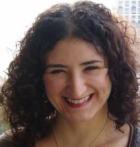
Funzione/Ruolo
Professoressa associata di Neurologia all'Università di Padova
Percorso professionale
Dopo la laurea in Medicina e Chirurgia all’Università Campus Bio-Medico di Roma, nel 2001, Florinda Ferreri si specializza in Neurologia nella stessa Università. Nel 2006 è Assistente per la Ricerca all’Istituto di Psichiatria sperimentale dell’Università del Wisconsin-USA e nel 2012 consegue il dottorato di ricerca in Neurofisiologia Clinica presso l’University of Eastern Finland. Negli ultimi dieci anni, oltre a lavorare come Neurologa Clinica al Policlinico Universitario Campus Biomedico di Roma, è attivamente impegnata nella ricerca neurofisiologica. Dal 2018 è Professoressa associata di Neurologia all'Università degl studi di Padova.
Risultati scientifici
L’attività di ricerca di Florinda Ferreri è prevalentemente focalizzata sullo studio non invasivo della fisiologia della corteccia cerebrale umana nell’individuo sano, nell’invecchiamento fisiologico e patologico, sullo studio della plasticità cerebrale, sullo sviluppo di metodiche di neuromodulazione non invasiva con potenzialità terapeutiche nelle demenze neurodegenerative e vascolari, e sulla ricerca di markers neurofisiologici per la diagnosi e la progressione della demenza di Alzheimer. Tra il 2007 ed il 2014 fa parte del gruppo di ricerca internazionale per la messa a punto di una protesi biomeccatronica di arto superiore a controllo neurale, partecipando nel 2008 e nel 2013 all’impianto della protesi su due pazienti amputati. È attivamente impegnata nella messa a punto di tecniche avanzate di registrazione multimodale dei segnali elettrici cerebrali con attuale focus sulla co-registrazione TMS-EEG, ovvero la combinazione della stimolazione magnetica transcraniale (Transcranial Magnetic Stimulation) con l’elettroecefalografia (Elettroencephalography).
Attività editoriali e pubblicazioni
E’ autrice di numerose pubblicazioni scientifiche internazionali tra cui:
[2016] Ferreri F, Vecchio F, Vollero L, Guerra A, Petrichella S, Ponzo D, Määtta S, Mervaala E, Könönen M, Ursini F, Pasqualetti P, Iannello G, Rossini PM, Di Lazzaro V. Sensorimotor cortex excitability and connectivity in Alzheimer’s disease: A TMS-EEG Co-registration study. Human Brain Mapping, 37[6):2083-96. doi: 10.1002/hbm.23158.
[2016] Guerra A, Pogosyan A, Nowak M, Tan H, Ferreri F, Di Lazzaro V, Brown P. Phase Dependency of the Human Primary Motor Cortex and Cholinergic Inhibition Cancelation During Beta tACS. Cerebral Cortex, 26(10):3977-90. doi: 10.1093/cercor/bhw245.
[2015] Rossini PM, Burke D, Chen R, Cohen LG, Daskalakis Z, Di Iorio R, Di Lazzaro V, Ferreri F, Fitzgerald PB, George MS, Hallett M, Lefaucheur JP, Langguth B, Matsumoto H, Miniussi C, Nitsche MA, Pascual-Leone A, Paulus W, Rossi S, Rothwell JC, Siebner HR, Ugawa Y, Walsh V, Ziemann U. Non-invasive electrical and magnetic stimulation of the brain, spinal cord, roots and peripheral nerves: Basic principles and procedures for routine clinical and research application.An updated report from an I.F.C.N. Committee. Clinical Neurophysiology Journal,. Feb 10. Review.
[2014] Di Pino G, Pellegrino G, Assenza G, Capone F, Ferreri F, Formica D, Ranieri F, Tombini M, Ziemann U, Rothwell JC, Di Lazzaro V. Modulation of brain plasticity in stroke: a novel model for neurorehabilitation. Nature Reviews Neurology, 10(10):597-608.
[2014] Ferreri F, Vecchio F, Ponzo D, Rossini PM. Time-varying coupling of EEG oscillations of primary motor cortex predicts excitability fluctuations as reflected by motor evoked potentials amplitude: an EEG-TMS study. Human Brain Mapping, 35(5):1969-80.
[2013] Ferreri F, Rossini PM. TMS and TMS-EEG techniques in the study of the excitability, connectivity, and plasticity of the human motor cortex. Reviews Neuroscience, 24(4):431-42. Review.
[2011] Ferreri F, Pasqualetti P, Määttä S, Ponzo D, Ferrarelli F, Tononi G, Mervaala E, Miniussi C and Rossini PM. Imaging human brain cortical effective connectivity during single and paired pulse transcranial magnetic stimulation. Neuroimage, 1;54(1):90-102.
[2006] Ferreri F. Curcio G. Patrizio P. De Gennaro L. Fini R. and Rossini PM. Mobile phone emission and human brain excitability. Annals of Neurology, 60(2):188-96.
[2006] Babiloni C, Benussi L, Binetti G, Cassetta E, Dal Forno G, Del Percio C, Ferreri F, Ferri R, Frisoni G, Guidoni R, Miniussi C, Rodriguez G, Romani GL, Squitti R, Ventriglia MC and Rossini PM. Apolipoprotein e and alpha brain rhythms in mild cognitive impairment: a multicentric eeg study. Annals of Neurology, 59(2):323-34.
[2003] Ferreri F, Pauri F, Pasqualetti P, Fini R, Dal Forno G, PM Rossini. Motor cortex excitability in Alzheimer Disease. Annals of Neurology, 53(1):102-8.

Funzione/Ruolo
Professoressa di Impianti Chimici presso il Politecnico di Torino; Waste, Water and Food Manager del Politecnico di Torino (Green Team)
Percorso professionale
Dopo la laurea in Ingegneria Chimica presso il Politecnico di Torino, prosegue gli studi attraverso un percorso di Dottorato di Ricerca in Ingegneria Chimica dove consegue il titolo presso la stessa Università. Vincitrice per concorso di un posto da Ricercatore Universitario in Ingegneria Chimica, nel settore scientifico disciplinare Impianti Chimici nel Novembre 2002, ottenendo la conferma. Dal Luglio 2010 al Marzo 2016 ha operato in veste di Professore Associato nel medesimo SSD. Nel Marzo 2016 diviene professoressa ordinaria di Impianti Chimici, dove nel Dipartimento di Scienza Applicata e Tecnologia del Politecnico di Torino è attualmente responsabile di un gruppo di ricerca costituito da 15 giovani ricercatori e dottorandi.
Afferente al Collegio di Ingegneria Chimica e dei Materiali ed al Collegio di Energetica, la sua attività di docenza è incentrata nei corsi di Impianti per l’industria Chimica e Alimentare e Processi di Reimpiego e Valorizzazione Energetica.
Risultati scientifici
I suoi interessi scientifici si concentrano prevalentemente sul trattamento catalitico delle emissioni Diesel (es.: filtrazione e combustione del particolato, l’ abbattimento di nanoparticelle, riduzione e adsorbimento di NOx, sviluppo di trappole catalitiche), sulla combustione catalitica del metano (es.: sviluppo marmitte catalitiche per auto a metano), sui filtri catalitici per il trattamento di fumi (es.: sistemi multifunzionali per l’abbattimento di ceneri volanti, di NOx e diossine da inceneritori) dove ha ottenuto diversi finanziamenti industriali (General Motors, Officine Metallurgiche Cornaglia, Petronas, Pirelli, ….), vinto progetti a bando nazionale e comunitario (PRIN, TOP-Expert, ADDnano, FlameSOFC, ...) e possiede 2 brevetti.
Tra le sue linnee di ricerca a carattere ambientale, di particolare rilievo sono i sistemi di ossidazione avanzata di inquinanti (es. reattori e elettrocatalizzatori per l’ossidazione elettrochimica di inquinanti organici biorefrattari, quali fenolo, antibiotici e altri farmaci, coloranti, …; bonifica terreni inquinati; superfici autopulenti). Tra le ricerche intraprese negli ultimi anni di particolare importanza sono i risultati ottenuti in merito all’analisi di piattaforme di trattamento di rifiuti , l’analisi di ciclo vita dei processi industriali in ottica di economia circolare, dove anche in ambito agroalimentare ha collaborato con industrie di riferimento nel settore (es. Waste Italia, Ferrero, Ago Renewables, ENI, Lavazza, AUSTEP, ecc.) ottenendo inoltre importanti finanziamenti strutturati come nel caso del progetto di piattaforma Innovativa Agro-Alimentare-ECOFOOD coordinata da Ferrero, Ricerca & Innovazione per il Miglioramento della Sostenibilità della Filiera Agro-Alimentare, di cui è Debora Fino è stata responsabile di tutte le azioni di ricerca del suo Ateneo.
Attualmente coordina la ricerca di 2 progetti Horizon 2020 finanziati dalla Comunità Europea CELBICON (Cost-effective CO2 conversion into chemicals via combination of Capture, Electrochemical and Biochemical Conversion technologies) e BIOROBURPLUS (Advanced direct biogas fuel processor for robust and cost-effective decentralised Hydrogen production).
Attività editoriali e pubblicazioni
È autrice di oltre 200 pubblicazioni scientifiche, tra cui:
(2018) Malavè A C L, Fino D, Gómez Camacho C E, Ruggeri B. Experimental tests on commercial Sweet Product Residue (SPR) as a suitable feed for anaerobic bioenergy (H2+ CH4) production, Waste Management, 71: 626-635.
(2017) Massa A, Hernandez Ribullen S P, Lamberti A, Galletti C, Russo N, Fino D. Electro-oxidation of phenol over electrodeposited MnOx nanostructures and the role of a TiO2 nanotubes interlayer. Applied Catalysis. B, Environmental, 203: 270-281.
(2016) Negro V, Mancini G, Ruggeri B, Fino D. Citrus waste as feedstock for bio-based products recovery: Review on limonene case study and energy valorization. Bioresource Technology, 214: 806-815.
(2015) Hussain M, Deorsola F A, Russo N, Fino D, Pirone R. Abatement of CH4 emitted by CNG vehicles using Pd-SBA-15 and Pd-KIT-6 catalysts, Fuel, 149: 2-7.
(2014) Mancini G, Viotti P, Luciano A, Fino D. On the ASR and ASR thermal residues characterization of full scale treatment plant, Waste Management, 34: 448-457.
(2013) Ruggeri B, Luongo Malavè A C, Bernardi M, Fino D. Energy efficacy used to score organic refuse pretreatment process for hydrogen anaerobic production, Waste Management, 33: 2225-2233.
(2012) Bensaid S, Deorsola F A, Fino D, Russo N. After-treatment of household wood-fired stove emissions: from catalyst formulation to full-scale system, Catalysis Today, 197: 76-89.
(2011) Palmisano P, Hernandez S P, Hussain M, Fino D, Russo N. A new concept for a self cleaning household oven, Chemical Engineering Journal, 176-177: 253-259.
(2010) Bensaid S, Russo N; Fino D. Power and Hydrogen Co-generation from Biogas, Energy & Fuels, 24: 4743-4747.
(2009) Rutigliano L, Fino D, Saracco G, Specchia V, Spinelli P, Grizzaffi L. Electrochemical Oxidation process for water condensates recycling in a shuttle orbiter, Journal Of Applied Electrochemistry, 39 (11): 2239-2249.
(2008) Rutigliano L, Fino D, Saracco G, Specchia V, Spinelli P. Electrokinetic remediation of soils contaminated with heavy metals, Journal Of Applied Electrochemistry, 38: 1035-1041.
(2007) Fino D. Diesel Emission Control:Catalytic Filters for Particulate Removal, Science And Technology Of Advanced Materials, 8 (1-2): 93-100.
(2006) Cauda E, Hernandez S, Fino D, Saracco G, Specchia V. PM0.1 Emissions during Diesel Trap Regeneration, Environmental Science And Technology, 40: 5532-5537.
(2005) Fino D, Carlesi J C, Saracco G, Specchia V, Spinelli P. Deactivation and regeneration of Pt anodes for the electro-oxidation of phenol, Journal Of Applied Electrochemistry, 35(4): 405-411.
(2004) Fino D, Russo N, Saracco G, Specchia V. A multifunctional filter for the simultaneous removal of fly-ash and NOx from incinerator flue gases, Chemical Engineering Science, 59 (22-23): 5329-5336.
(2003) Fino D, Russo N, Saracco G, Specchia V. The role of suprafacial oxygen in some perovskites for the catalytic combustion of soot, Journal Of Catalysis, 217: 367-375.
(2002) Fino D, Saracco G, Specchia V. Filtration and catalytic abatement of diesel particulate from stationary sources, Chemical Engineering Science, 57(22-23): 4955-4966.
Riconoscimenti e premi
Vincitrice nel Novembre del 2004 del “PREMIO ITALGAS – DEBUTTO NELLA RICERCA” (XVII edizione) per la sua tesi di dottorato (Combustione catalitica del particolato Diesel).
Nel Febbraio del 2007 il suo articolo”Innovative means for the catalytic regeneration of particulate traps for diesel exhaust cleaning”, Chem. Eng. Sci., 58 (3-6)(2003) 951-958, è stato premiato dalla Elsevier Science Publisher come uno degli articoli più citati della rivista Chemical Engineering Science nel corso del quadriennio 2003 - 2006.
Vincitrice nel Dicembre 2007 del “PREMIO SAPIO JUNIOR per la RICERCA ITALIANA” (IX Edizione) per i risultati ottenuti nella ricerca “Nanoparticelle secondarie da filtri per la rimozione del particolato Diesel ed in altri contesti applicativi”.
Ottobre 2009 - l'articolo "Biogas Purification for MCFCs Applications" è stato premiato tra i migliori 5 dallo Scientific Organizing Committee del "HYSYDAYS 2009 - 3rd World Congress of Young Scientists on Hydrogen Energy Systems". L'articolo è stato pubblicato su International Journal of Hydrogen Energy.
Giugno 2010 - Premio ITWIIN Associazione Italiana Donne Inventrici ed Innovatrici, vincitrice premio speciale per la comunicazione DISTI (distretto dell'Informazione Scientifica e Tecnologica per l'innovazione con sede a Bari) in considerazione dell'efficacia nella presentazione di potenziali ricadute sociali ed economiche di progetti scientifici.
Nel settembre 2011 la European Union Women Inventors & Innovators Awards le ha assegnato una menzione speciale in considerazione dell'efficacia nella presentazione di potenziali ricadute sociali ed economiche delle sue ricerche scientifiche da parte della giuria di esperti internazionali, Reykjavik (Islanda).
Nel Febbraio del 2013 l’articolo “M. Hussain, R. Ceccarelli, D.L. Marchisio, D. Fino, N. Russo, F. Geobaldo, Synthesis, Characterization and Photocatalytic Application of Novel TiO2 Nanoparticles” su Chemical Engineering Journal 157, 45-51 del 2010 è stato premiato come ottavo articolo più citato della rivista Chemical Engineering Journal nel corso del periodo 10/2009 – 9/2010.

Funzione/Ruolo
Membro di Consigli di Amministrazione e Presidente di Comitati endoconsiliari (Controllo e Rischi, Nomine e Remunerazioni) di società quotate in Italia e all'estero, economista aziendale, già Senior Executive di blue chip con capitalizzazione di mercato superiore a Euro 5 mld, e docente universitaria; Co-Presidente Italia, Membro del Comitato Direttivo e Membro del Cyber Insurance Steering Committee Globale di WCD Foundation, think tank internazionale sulle best practice in corporate governance
Percorso professionale
Consegue la laurea in Economia e Commercio presso La Sapienza Università di Roma, proseguendo la sua formazione post universitaria con un Master in Business Administration presso la Luiss Business School nel 1993. Successivamente consegue ulteriori specializzazioni in finanza, comunicazione finanziaria e management skills a Londra e Los Angeles. Inizia la sua carriera in Euromobiliare, banca d’affari allora controllata da HSBC, nell’area corporate finance, maturando poi una significativa esperienza in ambito finanziario prima in Tamburi&Associati, leader in Italia nel financial advisory (M&A e privatizzazioni), poi in JP Morgan, una delle più importanti banche d’affari americane, e successivamente in Hill & Knowlton, una delle maggiori società internazionali di consulenza strategica in comunicazione corporate.
È Senior Executive e Membro del Management Committee, come Direttrice Investor Relations e Comunicazione Strategica di Gruppo, di due blue chip finanziarie con una capitalizzazione di mercato superiore a Euro 5 mld. dal 1999 al 2004. In seguito diventa Partner, e dal 2010, Membro del Consiglio di Amministrazione di una società leader in Italia nella consulenza strategica in corporate governance e comunicazione finanziaria quotata all’AIM. Dal 2004 al 2012 è anche autrice e conduttrice di Watchdog, trasmissione televisiva focalizzata su temi di governance, in onda su Class CNBC, canale economico-finanziario Sky 507; tra i suoi ospiti, i più autorevoli rappresentanti del mondo economico, accademico e istituzionale. È titolare dell’insegnamento in Advanced Business Administration e successivamente in Economics of Banking and Industrial Groups, corsi di laurea magistrale presso La Sapienza Università di Roma dal 2013 al 2017 e, dal 2013 al 2016 è anche Docente di Corporate Governance presso la Luiss Business School. È docente ABI, corsi di formazione riservati a Consiglieri di Amministrazione di Gruppi Bancari, sui sistemi di controllo e sulla corporate governance nel 2014 e nel 2015. E’ Membro di Commissione presso la Presidenza del Consiglio dei Ministri, di nomina governativa come personalità di chiara fama, da febbraio 2011 ad aprile 2013.
Attualmente è nel Consiglio di Amministrazione di società quotate in Italia e all'estero (settori: telecom services, banking, IT/communication, industrial, consumer discretionary). In particolare: Consigliera di Amministrazione e Presidente Comitato Nomine e Remunerazioni di Inwit, principale operatore di infrastrutture telecomunicazioni wireless in Italia, e uno dei principali in Europa con market cap superiore a Euro 3.3 mld; Consigliera di Amministrazione, Presidente Comitato Nomine e membro comitato controllo e rischi del Gruppo Banco Desio (Ftse Mid Cap); Consigliera di Amministrazione e Presidente Comitato Controllo e rischi di Italionline, primo player italiano nella pubblicità digitale e nei servizi di marketing locale (Ftse Mid Cap); Consigliera di Amministrazione e membro dei comitati remunerazione, parti correlate, controllo e rischi del Gruppo Trevi, società leader a livello mondiale nelle opere di ingegneria del sottosuolo ad alta tecnologia (Ftse Mid Cap); Consigliera di Amministrazione del Gruppo Natuzzi, player globale nell’arredamento lifestyle, quotato alla Borsa di New York, NYSE.
Dal 2012 è anche Co-Presidente Italia, Membro del Comitato Direttivo e, dal 2017, Membro del Cyber Insurance Steering Committee Globale di WCD Foundation, think tank internazionale sulle best practice in corporate governance che riunisce oltre 5.000 consiglieri di amministrazione in tutto il mondo che siedono in oltre 8.500 consigli di società quotate, la cui capitalizzazione complessiva di mercato è pari a $8.000 mld.
Risultati scientifici
L’attività di ricerca di Cristina Finocchi Mahne si svolge nel campo della finanza, con un focus particolare sulle tematiche inerenti alle società quotate e ai mercati finanziari con particolare riferimento ai temi di governance. Tra i suoi impegni più recenti, come Membro del Cyber Insurance Steering Committee Globale di WCD Foundation, ha preso parte allo sviluppo di un ampio progetto di ricerca sul cyber risk, che ha analizzato il contesto allargato della sua gestione nelle aziende, attraverso una analisi approfondita dello strumento assicurativo e della conseguente evoluzione delle opzioni di copertura, con rilevazione anche del grado di consapevolezza che caratterizza i diversi settori di attività a livello internazionale e identificazione dei temi chiave da esaminare nell’ambito del governo dell’impresa. Tra i suoi interventi su temi di governo societario, mercati finanziari e family business: Bari, Ottobre 2017, Convegno ‘Il Potere in Economia e Politica’, Fondazione Bellisario, intervento: ‘Il potere dei CdA’; Roma, Maggio 2017, Luiss Business School, ‘Retribuzioni manageriali e governo societario’, intervento: ‘Come cambiano le competenze richieste ai membri del Board e ai vertici aziendali’; Bologna, Novembre 2016, Convegno ‘Diritto Privato e Governance Globale’, Università di Bologna, Dipartimento di Giurisprudenza, intervento: ‘Corporate Governance Globale ed evoluzione dei Board delle società quotate’; Parigi, Febbraio 2016, KPMG/ WCD EMEA Institute, intervento ‘Board of Directors and Activist Investors’, New York, Maggio 2015, WCD Global Institute, intervento: ‘Board of Directors and Family Business’. Relatrice presso autorevoli Università italiane, key speaker a conferenze nazionali e internazionali, e ospite in trasmissioni televisive su temi di economia, finanza e governance.
Attività editoriali e pubblicazioni
Tra le sue pubblicazioni, numerosi articoli ripresi dalle principali testate economiche italiane e il paper dal titolo Boards and role models for supporting the climb upwards, Part II Huse, M. and Brogi, M., (2013) Women on to corporate boards: a snow ball starting in Norway, Edward Elgar Publishing, casa editrice di di rilievo accademico internazionale.
Riconoscimenti e premi
Nel 2003 la Luiss le ha assegnato il Distinguished Executive Award, e nel 2007 ha ricevuto dalla Università La Sapienza, Facoltà di Economia, il premio Best in Class, entrambi per meriti professionali.

Funzione/Ruolo
Professoressa ordinaria di Misure Elettriche ed Elettroniche all’Università degli Studi di Brescia, Presidentessa del Consiglio di Corso di Studi Aggregato in Elettronica e Telecomunicazioni del Dipartimento di Ingegneria dell’Informazione, Coordinatrice del Collegio di Dottorato in Technology for Health.
Percorso professionale
Dopo la laurea in Fisica all’Università di Roma La Sapienza nel 1985, lavora per oltre 10 anni presso industrie che operano negli impianti industriali e nell’energia, tra le quali Ansaldo Sistemi Industriali a Milano, dove è responsabile del R&D della sezione di azionamenti a controllo digitale. Alla fine del 1995 entra come ricercatrice di Elettronica all’Università degli Studi di Brescia, dove diventa professoressa Associata di Misure Elettriche ed Elettroniche nel 2002 e Professoressa Ordinaria nel 2016. Nel 2004 crea il Centro di competenza Italiano su Profibus e Profinet, ad oggi operativo. Dal 2013 al 2020 è nel consiglio di Amministrazione di CSMT, il principale centro per il trasferimento tecnologico di Brescia. Dal 2011 fa parte del Consiglio scientifico di SPS, la fiera sull’automazione Industriale. E’ membro dell’ADCOM dell’IEEE Instrumentation and Measurement Society dal 2013 al 2016 e nel 2015 è Vicepresidente per le Conferenze. Dal 2018 è Presidente del Consiglio di Corso di Studi Aggregato in Elettronica e Telecomunicazioni del Dipartimento di Ingegneria dell’Informazione. Nel 2020 viene eletta Coordinatrice del Collegio di Dottorato in Technology for Health.
Risultati scientifici
Il profilo scientifico di Alessandra Flammini è molteplice, avendo iniziato l’attività di ricerca nell’ambito della ricerca industriale con riferimento agli azionamenti a controllo digitale ed essendo poi passata alla ricerca scientifica in ambito prima dell’elettronica dei sistemi embedded, poi dei sensori “smart” e infine dei sistemi distribuiti di misura per l’industria, le smart grid e lo smart living.
Più precisamente, l’attività di ricerca scientifica si è concentrata sin dall’inizio sui circuiti di interfaccia per sensori e sui sensori “smart”, ossia sulle tecnologie che permettono ai sensori di comunicare le proprie informazioni di misura in architetture IoT, fondamentali nei sistemi cosiddetti “smart”, che spaziano dalle smart grid allo smart living, ambiti nei quali Alessandra Flammini è stata responsabile di progetti interdipartimentali di ampio respiro, con budget superiore a 5M€, dal 2013 ad oggi. Per quanto riguarda le tecnologie wireless per l’IoT, sono di assoluto rilievo i suoi studi sperimentali sulla tecnologia LoRaWAN, che ne hanno permesso l’uso in applicazioni distribuite di misura per l’industria, come testimonia l’elevato numero di citazioni delle sue pubblicazioni in merito. Alessandra Flammini è anche una figura di grande importanza per il territorio bresciano. Oltre ad aver fondato un gruppo di ricerca che consta di tre professori ordinari, 2 professori associati e 2 ricercatori e ad aver formulato nuove proposte didattiche sui temi dell’IoT e delle tecnologie per l’impresa digitale, Alessandra Flammini ha anche sviluppato la prima Real Time Ethernet italiana, brevettata e commercializzata da Gefran come GDNET, e risulta coautrice di altri brevetti nazionali e internazionali che hanno avuto valorizzazioni commerciali di rilievo.
Attività editoriali e pubblicazioni
È co-autrice di oltre 300 pubblicazioni scientifiche internazionali, tra cui:
[2022] P. Ferrari, E. Sisinni, P. Bellagente, D. Fernandes Carvalho, A. Depari, A. Flammini, M. Pasetti, S. Rinaldi, I. Silva, "On the use of LoRaWAN and cloud platforms for diversification of mobility-as-a-service infrastructure in smart city scenarios", IEEE Trans. Instrumentation and Measurement, Vol., ISSN 0018-9456.
[2020] E. Sisinni, P. Ferrari, D. Fernandes Carvalho, S. Rinaldi, M. Pasetti, A. Flammini, A. Depari, "LoRaWAN Range Extender for Industrial IoT", IEEE Trans. Industrial Informatics, August, 2020, Vol. 16, N. 9, pp. 5607-5616, ISSN 1551-3203, DOI 10.1109/TII.2019.2958620.
[2018] P. Ferrari, A. Flammini, E. Sisinni, S. Rinaldi, D. Brandao, M. Rocha, "Delay Estimation of Industrial IoT Applications Based on Messaging Protocols", IEEE Trans. Instrumentation and Measurement, September, 2018, Vol. 67, N. 9, pp. 2188-2199, ISSN 0018-9456, DOI 10.1109/TIM.2018.2813798.
[2017] M. Rizzi, P. Ferrari, E. Sisinni, A. Flammini, "Evaluation of the IoT LoRaWAN Solution for Distributed Measurement Applications", IEEE Trans. Instrumentation and Measurement, December, 2017, Vol. 66, N. 12, pp. 3340-3349, ISSN 0018-9456, DOI 10.1109/TIM.2017.2746378.
[2016] E. Sisinni, A. Depari, A. Flammini, "Design and implementation of a wireless sensor network for temperature sensing in hostile environments", Sensors and Actuators A: Physical, January, 2016, Vol. 237, pp. 47-55, ISSN 0924-4247, DOI 10.1016/j.sna.2015.11.012.
[2011] C. M. De Dominicis, P. Ferrari, A. Flammini, S. Rinaldi, M. Quarantelli, "On the Use of IEEE 1588 in Existing IEC 61850-Based SASs: Current Behavior and Future Challenges", IEEE Trans. Instrumentation and Measurement, September, 2011, Vol. 60, N. 9, pp. 3070-3081, ISSN 0018-9456, DOI 10.1109/TIM.2011.2158159.
[2009] A. Flammini, D. Marioli, E. Sisinni, A. Taroni, "Design and Implementation of a Wireless Fieldbus for Plastic Machineries", IEEE Trans. Industrial Electronics, March, 2009, Vol. 56, N. 3, pp. 747-755, ISSN 0278-0046, DOI 10.1109/TIE.2008.2011602.
[2009] P. Ferrari, A. Flammini, D. Marioli, E. Sisinni, A. Taroni, "Wired and wireless sensor networks for industrial applications", Microelectronics Journal, September, 2009, Vol. 40, N. 9, pp. 1322-1336, ISSN 0026-2692, DOI 10.1016/j.mejo.2008.08.012.
[2008] P. Ferrari, A. Flammini, D. Marioli, A. Taroni, "A Distributed Instrument for Performance Analysis of Real-Time Ethernet Networks", IEEE Trans. Industrial Informatics, February, 2008, Vol. 4, N. 1, pp. 16-25, ISSN 1551-3203, DOI 10.1109/TII.2008.919016.
[2004] A. Flammini, D. Marioli, A. Taroni, "A low-cost interface to high-value resistive sensors varying over a wide range", IEEE Trans. Instrumentation and Measurement, August, 2004, Vol. 53, N. 4, pp. 1052-1056, ISSN 0018-9456, DOI 10.1109/TIM.2004.831500.
[2002] A. Flammini, P. Ferrari, E. Sisinni, D. Marioli, A. Taroni, "Sensor interfaces: from field-bus to Ethernet and Internet", Sensors and Actuators A: Physical, September, 2002, Vol. 101, N. 1-2, pp. 194-202, ISSN 0924-4247 , DOI 10.1016/S0924-4247(02)00201-7.
[1999] A. Flammini, D. Marioli, A. Taroni, "Application of an optimal look-up table to sensor data processing", IEEE Trans.Instrumentation and Measurement, August, 1999, Vol. 48, N. 4, pp. 813-816, ISSN 0018-9456, DOI 10.1109/19.779179.
Riconoscimenti e premi
E’ stata coautrice di lavori premiati a conferenza internazionale (ETFA2008, ISPCS2010).
Senior Member IEEE dal 2010, General Chair o Technical Chair di numerose conferenze internazionali, è stata eletta membro dell’ADCOM dell’IEEE Instrumentation and Measurement Society dal 2013 al 2016 e nel 2015 è stata Vicepresidente per le Conferenze.
Member dello Study Group IEEE1588.
Top Italian Scientists nella categoria Ingegneria elettrica.

Funzione/Ruolo
Già professoressa ordinaria di Ecologia all'Università di Trieste
Percorso professionale
Dopo la laurea in Scienze Biologiche presso l'Università di Trieste nel 1974, prosegue la sua formazione come borsista in Ecologia nella stessa università fino al 1981. Da quell'anno è ricercatrice, nel 1992 diventa professoressa associata e Responsabile del Laboratorio di Biologia Marina dell'Università di Trieste. Dal 2008 è professoressa ordinaria di Ecologia.
Risultati scientifici
I principali interessi di ricerca di Serena Fonda Umani riguardano la dinamica dell'ecosistema marino, i flussi di carbonio, lo studio dell'ecologia del Plancton e l'ecologia marina microbica. Per poter condurre i suoi studi si è recata in varie zone del Mar Mediterraneo, nello stretto di Magellano (Cile), nella baia di Chesapeake (Usa) e nel Mare di Ross (Antartide). Uno dei principali obiettivi della ricerca di Serena Fonda Umani è la stima dei flussi di carbonio all'interno della catena alimentare pelagico-microbica (dai virus fino alle meduse), per verificare se vi è una selezione esercitata dai predatori sui procarioti (primi organismi cellulari comparsi sulla terra, caratterizzati dall'assenza di un nucleo ben definito). Questo è possibile attraverso l'approccio metagenomico (lo studio delle comunità microbiche direttamente nel loro ambiente naturale) che Serena Fonda Umani e i colleghi utilizzano.
Attività editoriali e pubblicazioni
Autrice di più di oltre 200 pubblicazioni scientifiche nazionali ed internazionali fra cui:
(2016) Zoccarato L, Celussi M, Pallavicini A, Fonda Umani S. Aurelia auritaephyrae reshape a coastal microbial community. c 7:749.
(2015) Caruso G, La Ferla R, Leonardi M, Zaccone R, Azzaro F, Azzaro M, Decembrini F, Maimone G, Monticelli L, Caroppo C, Cavallo RA, Acquaviva MI, Narracci M, Stabili L, Marino G, Petochi T, De Angelis R, Zoppini A, Fonda Umani S, Del Negro P, Todorova NH, Karamfilov VK, Corinaldesi C, Rastelli E, Cappello S, Latini M, Danovaro R. Microbial assemblages for environmental quality assessment: knowledge, gaps and usefulness in the European Marine Strategy Framework Directive. Critical Reviews in Microbiology
(2013) Di Poi E, Blason C, Corinaldesi, Danovaro R, Malisana E, Fonda Umani S. Structure and interactions within the pelagic microbial food web(from viruses to microplankton)across environmental gradients in the Mediterranean Sea. Global Biogeochemical Cycles, 27: 1034-1045.
(2012) Giani M, Djakovac T, Degobbis D, Cozzi S, Solidoro C, Fonda Umani S. Recent changes in the marine ecosystems of the northern Adriatic Sea. Estuarines, Coastal and Shelf Sciences, 115:1-13.
(2012) Fonda Umani S, Malfatti F, Del Negro P. Carbon fluxes in the pelagic ecosystem of the Gulf of Trieste (Northern Adriatic Sea). Estuarines, Coastal and Shelf Sciences, 115:170-186.
(2010) Fonda Umani S, Malisana E, Focaracci F, Magagnini M, Corinaldesi C, Danovaro R. Disentangling the impact of viruses and nanoflagellates on prokaryotes in bathypelagic waters of the Mediterranean Sea. Marine Ecology Progress Series, 418:73-85.
(2010) Mozetič P, Solidoro C, Cossarini G, Socal G, Precali R, Francé J, Bianchi F, Smodlaka N, De Vittor C, Fonda Umani S. Recent trends towards oligotrophication of the northern Adriatic: evidence from chlorophyll a time series. Estuaries and Coasts, 33:362-375.
(2009) Danovaro R, Fonda Umani S, Pusceddu A. Climate Change and the potential spreading of marine mucilage and microbial pathogens in the Mediterranean Sea. PLoS ONE, 4(9):e7006.
(2007) Fonda Umani S, Del Negro P, Larato C, De Vittor C, Cabrini M, Celio M, Falconi C, Tamberlich F, Azam F. Major inter-annual variations in microbial dynamics in the Gulf of Trieste (Northern Adriatic Sea) and their ecosystem implications. Aquatic Microbial Ecology Journal, 46:163-175.
(2005) Fonda Umani S, Milani L, Borme D, de Olazabal A, Parlato S, Precali R, Kraus R, Lucic D, Njire J, Totti C, Romagnoli T, Pompei M, Cangini M. Inter-annual variations of planktonic food webs in the northern Adriatic Sea. Science of the Total Environment, 353(1-3):218-231.
Riconoscimenti e premi
Serena Fonda Umani è membro di numerose società e comitati scientifici fra cui il Comitato Scientifico del Parco del Mare (dal 2005) e della Società Italiana di Ecologia (SItE) di cui nel 2012 è stata eletta Presidente.

Funzione/Ruolo
Ricercatrice e docente di Scienze Politiche e Relazioni internazionali all'Università di Catania.
Percorso professionale
Si laurea in Politica e Relazioni Internazionali nel 2009 e si specializza in Global Politics and Euro-Mediterranean Relations nel 2011 all’Università di Catania. Consegue il dottorato di ricerca in Institutions, Politics and Policies all’IMT di Lucca nel 2015, con una tesi sulla politica di vicinato dell’Unione Europea in Tunisia e Marocco. Come assegnista di ricerca in scienza politica (2018-2019; 2019-2020; 2020-2021) presso il Dipartimento di Scienze Politiche dell’Università di Catania, incentra la propria attività sulle crisi migratorie nel Mediterraneo e sulle politiche di migrazione e asilo dell’Unione Europea in questa area. Nel 2021 consegue l’Abilitazione Scientifica Nazionale di seconda fascia e dal 2022 è Ricercatrice a tempo determinato di tipo A presso l’Università di Catania con un progetto su cambiamenti climatici e migrazioni forzate.
Ha svolto diversi periodi di ricerca all’estero: presso la London School of Economics and Political Sciences, Londra (2013); presso l’Université Hassan II di Casablanca, Marocco (2014); presso il Servizio Europeo per l’Azione Esterna – Delegazione dell’Unione Europea di Tunisi, Tunisia (2014); presso l’Università del Delaware e il Dipartimento di Stato Americano (2019).
Attualmente titolare del corso di Sistema Politico dell’Unione Europea presso il Dipartimento di Scienze Politiche e Sociali dell’Università degli Studi di Catania, per l’anno accademico 2022-2023.
Risultati scientifici
E’ coordinatrice scientifica del progetto DEPMI, Dimensione Esterna Politiche di Migrazione Italiane, presso il The Siracusa Institute for Criminal Justice and Human Rights, su finanziamento del Ministero degli Affari Esteri, progetto con lo scopo di mappare gli accordi tra l’Italia e i paesi terzi in ambito migratorio.
Inoltre, sta attualmente lavorando al progetto Cambiamento climatico e flussi migratori: analisi e misurazione dell’impatto delle modifiche dell’ecosistema sulla mobilità umana forzata (2022-2024), con lo scopo di analizzare come il cambiamento climatico e le sue conseguenze di breve, medio e lungo periodo, hanno rilevanza sul fenomeno dei flussi migratori e sulla mobilità umana forzata mediante l’identificazione di variabili (risorse idriche, desertificazione, alterazioni del regime idrogeologico etc.) che permettano di perfezionare le relazioni causali tra cambiamenti climatici e migrazioni. Il progetto si concentra sui casi di Tunisia e Senegal nel periodo 2000-2021, e mira ad individuare meccanismi di early warning per lo studio delle migrazioni climatiche.
Ha inoltre partecipato a diversi gruppi di ricerca nazionali e internazionali. Nel 2021 è stata parte del Progetto Horizon 2020 PROTECT, guidato dall’Università di Bergen. Come membro dell’Unità Locale dell’Università di Catania si è occupata dell’analisi dell’esternalizzazione delle politiche di migrazione dell’Unione Europea, costruendo una mappa interattiva che permetta di navigare la molteplicità di accordi conclusi con i paesi terzi in materia migratoria. Nel 2019, è stata membro del VAM- Politiche di Asilo Visti e Migrazione presso il Dipartimento di Scienze Politiche dell’Università di Catania; tra il 2018 e il 2021 è stata membro del gruppo HISMED- Human Insecurity in the Mediterranean, finanziato della European International Studies Association.
Le sue ricerche si concentrano sui fenomeni migratori e sulle politiche dell’Unione Europea e dell’Italia per gestire tali fenomeni, da un punto di vista politico, umanitario, di strumenti di policy e dell’asilo.
Attività editoriali e pubblicazioni
[2022] Fontana, I. The EU and the Politics of Migration in the Mediterranean: from Crisis Management to Management in Crisis, in Panebianco, S. (2022) Border Crises and Human Mobility in the Mediterranean Global South. Challenges to Expanding Borders, Palgrave. ISBN 978-3-030-90294-0.
[2022] Fontana, I. The human (in)security trap: how European border(ing) practices condemn migrants to vulnerability, International Politics. 59: 65–484 ISSN: 1384-5748, doi: 10.1057/s41311-020-00268-y.
[2021] Fontana, I. Back to the future? Questioning EU’s renewed approach to returns and readmission. H2020 PROTECT Blog.
[2020] Fontana, I. Organised crime, migration and domestic politics in Italy: unfolding the interplay, South European Society and Politics 25(1):49-74. ISSN: 1360-8746, doi: 10.1080/13608746.2020.1738092.
[2019] Fontana, I. The implementation of Italian asylum policy and the recognition of protection in times of crisis: between external and internal constraints, Contemporary Italian Politics 11(4): 429-445, DOI: 10.1080/23248823.2019.1680027.
[2018] Panebianco S., Fontana, I. When Responsibility to protect hits home: the EU and the Syrian refugee crisis, Third World Quarterly 39(1): 1-17, ISSN: 0143-6597 (Print) 1360-2241 (Online). doi: 10.1080/01436597.2017.1369035.
[2018] Fontana, I., (with Sahizer Samuk), Migrants’ Integration Policies in Italy: the cases of Lucca and Catania, in Lace, A. (ed.) “New Comer Integration in Europe: Nest practices and Innovation in Response to 2015 crisis”. 127-141, Brussels: Foundation for European Progressive Studies. ISBN: 978-2-930769-08-0.
[2018] Fontana, I. (with Giugni, L et al.) (2018), Can education stop abuse? Comprehensive sexuality education against gender-based violence. GenPol Policy Papers, Cambridge: Cambridge Business School.
[2017] Fontana, I. Disentangling the cyber politics-cyber security nexus: the new challenge of global politics. Global Affairs 3(1), p.99-104. ISSN: 2334-0460 (Print) 2334-0479 (Online) doi: 10.1080/23340460.2017.1320059.
[2017] Fontana, I. EU Neighbourhood Policy in the Maghreb. Implementing the ENP in Tunisia and Morocco before and after the Arab uprisings. London & New York: Routledge. ISBN: 9781138237179 doi: 10.4324/9781315300559.
[2016] The security dimension of the European Neighbourhood Policy: the case of security sector reform in Tunisia, EUMedEA Working Paper, 2-2016. ISSN 2499-2402.
[2015] Fontana, I. How Great Expectations in Brussels are dashed in Tunis? A Bottom-up approach to the Implementation of the European Neighbourhood Policy in Tunisia, Athens Journal of Mediterranean Studies, vol. 1 (1), pp-81-92. ISSN 2407-9480.
[2014] Fontana, I. The EU paradigmatic policy change in light of the Arab Spring: exploring the "black box" in Do Ceu Pinto M. (ed.) “Thinking Out of the Box: Devising New European Policies to Face the Arab Spring”, Lisbon: Diario de Bordo Editores, p. 8-17.
Riconoscimenti e premi
2019 Vincitrice del Programma di Visiting del Dipartimento di Stato Americano ‘SUSI-Study of the US Institutes on US Foreign Policy’.
2018 Vincitrice del Premio Enrico Melchionda per la tesi di dottorato ‘The implementation of the European Neighbouhood Policy in Tunisia and Morocco: when domestic actors make a difference.

Funzione/Ruolo
Fondatrice e coordinatrice scientifica dal 1999 del CeRP-Center for Research on Pensions and Welfare Policies, Professoressa ordinaria di Economia, Università di Torino. Già Ministra del lavoro e delle politiche sociali (16 novembre 2011-28 aprile 2013)
Percorso professionale
Elsa Fornero è Professoressa Ordinaria di Economia Politica presso il Dipartimento di Scienze Economico-Sociali e Matematico-Statistiche (ESOMAS), Università di Torino; fondatrice e coordinatrice scientifica dal 1999 del CeRP-Center for Research on Pensions and Welfare Policies (http://www.cerp.carloalberto.org). Attualmente è anche Vice Presidente di SHARE-ERIC (Survey of Health, Ageing and Retirement in Europe, http://www.share-project.org/); Honorary Senior Fellow del Collegio Carlo Alberto (www.carloalberto.org), research fellow di Netspar (www.netspar.nl) e Policy Fellow dell’Institute for the Study of Labor (IZA) di Bonn (www.iza.org). È inoltre membro del comitato di ricerca dell’International Network on Financial Education (INFE) dell’OCSE e del Comitato Scientifico dell’Observatoire de l’Epargne Européenne (Parigi, www.oee.fr).
Dal 16 novembre 2011 al 28 aprile 2013 ha fatto parte del Governo guidato da Mario Monti, in qualità di Ministra del Lavoro e delle Politiche Sociali con delega alle Pari Opportunità. In tale ruolo ha realizzato le riforme delle pensioni e del mercato del lavoro (approvate dal Parlamento rispettivamente a fine 2011 e a metà 2012).
Tra le altre, in passato ha ricoperto le seguenti posizioni: nel 2008-10 è stata Vice Presidente della Compagnia di San Paolo; nel 2005-11 è stata componente del Nucleo di valutazione della Spesa Previdenziale, costituito presso il Ministero del Welfare; nel 2005-7 è stata membro del Consiglio direttivo della Società Italiana degli Economisti e membro del Comitato editoriale della “Rivista Italiana degli Economisti”; nel 2010-11 è stata Vice Presidente del Consiglio di Sorveglianza di Intesa Sanpaolo; nel 2005-6 ha fatto parte del Comitato Scientifico di Confindustria; nel 2003-4 ha svolto l’attività di esperto indipendente per la Banca Mondiale, con l’incarico di valutare il ruolo di supporto svolto dalla Banca stessa nell’attuazione delle riforme previdenziali da parte dei seguenti paesi: Russia, Lettonia, Macedonia, Albania.
Risultati scientifici
L’attività di ricerca di Elsa Fornero si è focalizzata sullo studio delle motivazioni e dei comportamenti di risparmio delle famiglie, a partire da modelli di ottimizzazione fino ai più recenti modelli behavioural. Inoltre si è concentrata sul risparmio per l’età anziana, con lo studio delle caratteristiche assicurative delle pensioni, del perché i sistemi previdenziali sono pubblici e di come possa definirsi “buono” un sistema pensionistico. Dal punto di vista applicato, si è concentrata sull’analisi dei sistemi previdenziali europei e delle riforme. I suoi studi più recenti si sono occupati dell’educazione economico-finanziaria, intesa sia come strumento per aiutare gli individui nelle scelte durante il ciclo di vita, sia come presupposto per garantire l’efficacia delle riforme; e dell’analisi dei bias linguistici per spiegare le differenze di comportamento fra uomo e donna in finanza.
Attività editoriali e pubblicazioni
Elsa Fornero ha all’attivo molte pubblicazioni sui sistemi pensionistici pubblici e privati, sulle riforme pensioniElsa Fornero ha all’attivo molte pubblicazioni sui sistemi pensionistici pubblici e privati, sulle riforme pensionistiche, sull’invecchiamento della popolazione; sul risparmio delle famiglie, sulle scelte di pensionamento e sull’assicurazione vita.
Ha scritto i libri: Chi ha paura delle riforme. Illusioni, luoghi comuni e verità sulle pensioni. Università Bocconi Editore, 2018; L’economia dei fondi pensione. Potenzialità e limiti della previdenza privata in Italia, Il Mulino Studi e Ricerche, Bologna 1999; (con Onorato Castellino), Economia del risparmio e della ricchezza. Comportamenti privati e indebitamento pubblico, Il Mulino, Ricerca, Bologna, 1990.
Ha curato: (con Paolo Sestito), Pension Systems: Beyond Mandatory Retirement, Cheltenham: Edward Elgar, 2005, (con Elisa Luciano), Developing an Annuity Market in Europe, Cheltenham: Edward Elgar, 2004, (con Onorato Castellino), Pension Policy in an Integrating Europe, Cheltenham: Edward Elgar, 2003.
Fra i suoi articoli più recenti:
(2019) Fornero E, Lo Prete A., Voting in the Aftermath of a Pension Reform: The Role of Financial Literacy, Journal of Pension Economics and Finance, 18(1): 1-30.
(2018) Coda Moscarola F, Fornero E, Rossi MC. The family as an informal market and the (low) mobility of the Italian young Politica Economica, Journal of Economic Policy, 34(1): 45-78.
(2018) Sansoni D, Rossi MC, Fornero E. 'Four Bright Coins Shining at Me’ Financial Education in Childhood, Financial Confidence in Adulthood, Journal of Consumers doi.org/10.1111/joca.12207
(2017) Boggio C, Fornero E, Prast H, Sanders J. Seven ways to knit your portfolio: Is the language of investor communication gender neutral? in Garzone G, Catenaccio P, Grego K, Doerr R (eds), “Specialised and professional discourse across media and genres”, Milano: Ledizioni.
(2016) Fornero E. Economic-financial literacy for sustainable welfare reforms in Franklin B, Urzì Brancati C, Hochlaf D (eds), “Towards a new age: The future of the UK welfare state”, International Longevity Centre, UK, pp. 62-68.
(2016) Fornero E, Coda Moscarola F, Strøm S. Absenteeism, childcare and the effectiveness of pension reforms IZA Journal of European Labor Studies, 5:1, DOI 10.1186/s40174-016-0056-3.
(2015) Fornero E. Riforme previdenziali tra vincoli di breve periodo e obiettivi di lungo termine, in Politiche Sociali, Il Mulino, 3:443-459.
(2015) Fornero E. “Reform, Inform, Educate”: A New Paradigm for Pension Systems in Marin B.(ed.), “The Future of Welfare in a Global Europe”, Ashgate, pp. 297-324.
(2015) Fornero E. European pensions and social security: Can there be a happy ending? in Barysch K (ed.) “Our world and us. How our environment and our societies will change”, Allianz SE, pp. 154-171.
(2015) Fornero E. Economic-financial literacy and (sustainable) pension reforms: why the former is a key ingredient for the latter, Bankers, Markets & Investors, 134.
(2013) Reforming labor markets: reflections of an economist who (unexpectedly) became the Italian Minister of Labor, in IZA Journal of European Labor Studies, 2:20 (http://www.izajoels.com/content/2/1/20); most viewed (http://www.izajoels.com/mostviewed/alltime)
Riconoscimenti e premi
Nel 2013 ha ricevuto il premio Ezio Tarantelli per la migliore idea economica dell’anno, assegnato dal Club dell’Economia per aver ideato l’Assicurazione sociale per l’impiego (ASPI).
Nel 2011 ha ricevuto il premio “La Mela d’Oro” dalla Fondazione Marisa Bellisario dedicato a “Donne innovazione e capitale umano”.
Nel 2003 le è stato conferito, insieme con Olivia Mitchell, il premio INA-Accademia Nazionale dei Lincei per gli studi in materia assicurativa.
Nel 2001 ha ricevuto (ex-aequo con Ignazio Musu) il Premio Saint Vincent per l'Economia.

Funzione/Ruolo
Senior advisor per la sostenibilità, Movimento europeo
Percorso professionale
Silvia Francescon è stata Director della sede di Roma dello European Council on Foreign Relations per 9 anni. In seguito ha prestato servizio per quattro anni presso l’Ufficio del Presidente del Consiglio, Ufficio Sherpa G7. In particolare nel 2016-2017 in preparazione e durante la presidenza Italiana del G7 seguendo il dossier parità di genere e contribuendo alla stesura della ‘Dichiarazione dei Leader’. Nel 2007-2009 ha lavorato presso la Presidenza del Consiglio come vice capo Ufficio Sherpa G8-G20, dove aveva l’incarico di coordinare la squadra che preparava i dossier ed i bilaterali sia per il presidente del Consiglio che per lo Sherpa. Ha prestato servizio anche presso le Nazioni Unite, come coordinatrice per l’Italia della Campagna sugli Obiettivi del Millennio ed è stata negoziatrice di accordi internazionali ed europei in materia di ambiente per il Ministero dell’Ambiente per 4 anni. Precedentemente ha lavorato all’OCSE (Direzione Ambiente, Parigi), WTO (Direzione Affari Legali, Ginevra), e Commissione Europea (DG Agricoltura, Bruxelles). Silvia Francescon è stata ricercatrice in diritto internazionale dell’ambiente presso l’Università di Leida (Olanda) e in diritto internazionale presso l’Università di Ferrara, facoltà di Giurisprudenza. Ha un Master in Diritto internazionale dell’ambiente conseguito presso la SOAS di Londra e si è laureata con lode in giurisprudenza presso l’Università di Ferrara.
È membro del board dello IAI, del comitato scientifico del CESPI, del Comitato Strategico del BA in global governance di Tor Vergata ed è socia fondatrice di Women in International Security – Italia.
Risultati scientifici
Progetti attuali: attività “crafting a new generation of leaders - personal and professional mastery; e “make Europe the world leader for sustainable development”.
Highlight precedenti: due Presidenze italiane del G7/G8 (in 2009 and 2017, presso la Presidenza del Consiglio), una presidenza italiana dell’Unione europea (2003) presso Ministero dell’Ambiente; ha condotto campagna italiana per le Nazioni Unite sugli Obiettivi del Millennio e guidato per 9 anni la sede di Roma dello European Council on Foreign Relations.
Attività editoriali e pubblicazioni
Dal 2010 al 2019 Francescon ha pubblicato molteplici articoli nel sito di ECFR.EU in materia di geopolitica e politica interna italiana.
In inglese
[2006] Francescon, S., The impact of GMOs on Poor Countries: A Threat to the Achievement of the Millennium Development Goals?, in Rivista di Biologia, Biology Forum, 3, 381-394.
[2005] Francescon, S., Ministry of Internal Affairs v. Patmos Shipping Corporation (1989), jurisprudence case in International Environmental Law Reports, International Environmental Law in National Courts, 4; Cambridge University Press, 288-297.
[2004] Francescon, S., The political momentum on access to genetic resources and equitable sharing of the benefits deriving from their utilization, in the Istituto Agronomico per l’Oltremare’s web site.
[2003] Francescon, S., Recent developments of the international processes on access to genetic resources and benefit sharing, and on traditional knowledge of the indigenous and local communities, in the Istituto Agronomico per l’Oltremare’s web site.
[2001] Francescon, S., The New Directive 2001/18/EC on the Deliberate Release of Genetically Modified Organisms into the Environment: Changes and Perspectives, in RECIEL, Review of European Community and International Environmental Law, 10, 3, 309-320.
[2001] Francescon, S., The Precautionary Principle in the European Union, in International Union for the Conservation of Nature (IUCN) Environmental Law Center Newsletter, 1, 15-19.
[2000] Francescon, S., The Precautionary Principle: Its Status under WTO Law, in The Economist Conferences - “Colloque sur le Principe de Précaution” (co-authored with Jan Kuijper P., former Director, Legal Affairs Division, WTO).
[2000] Francescon, S., The Regulation of GM Foods in the EU: An Overview, in New York University Environmental Law Journal, 8, 3, 530-555 (co-authored with Mackenzie R., former Biodiversity Programme Director, FIELD).
In Italiano
[2006] Francescon, S., La cancellazione del debito quale contributo alle politiche di lotta alla povertà, in Output N.3.
[2003] Francescon, S., Quale futuro per “commercio e ambiente” dopo Hong Kong?, in Rivista Giuridica dell’Ambiente, 2, 359-366.
[2003] Francescon, S., Quali agricoltori? Il dibattito in seno al WTO, in Il Ponte, Volume speciale su “Il cibo”, 121-135.
[2002] Francescon, S.; “Biosafety”: Europa e USA su vie diverse, in Etica per le Professioni, Giornale della Fondazione Lanza, 3, 39-47.
Riconoscimenti e premi
Silvia Francesco è cultrice della materia in diritto internazionale all'Università di Ferrara.

Funzione/Ruolo
Head of Pension Funds & Asset Owners per i Capital Markets di Borsa Italiana e del London Stock Exchange Group. Professoressa a contratto di Mercati Finanziari Internazionali presso l’Università Bocconi
Percorso professionale
Presso il London Stock Exchange Group Alessandra è responsabile della relazione con gli Asset Owners, ovvero con investitori istituzionali quali fondi pensione, assicurazioni, fondi sovrani. Promuove i Capital Markets del gruppo e il brand di LSEG a livello globale e svolge attività di strategic intelligence per cogliere nuovi trend e opportunità di sviluppo del business. E’ inoltre focal point per i temi di Responsible Investment e ESG.
Lavora per Borsa Italiana dal 2000, dove ha coordinato per dieci anni l’Area di Ricerca Economica svolgendo anche attività di lobbying di politica economica e fiscale presso le Istituzioni e le Associazioni di categoria italiane.
Dal 1995 al 2000 è stata macroeconomista a Ref. Ricerche per L’Economia e la Finanza.
Laureata in Economia Politica presso l’Università Bocconi nel 1995, ha conseguito un Master in Econometria presso l’Università di Southampton nel 1998.
Dal 2007 è docente di International Financial Markets presso l’Università Bocconi.
E’ regolarmente invitata come speaker a conference nazionali e internazionali e è autrice di numerose pubblicazioni su comportamenti degli investitori, flussi internazionali di capitali e più di recente investimenti sostenibili e responsabili.
Risultati scientifici
Alessandra Franzosi nello svolgimento della sua attività professionale ha partecipato a rilevanti progetti. Ha contribuito alla Giornata Nazionale della Previdenza, ospitando Fondi Pensione internazionali e facilitando la condivisione di esperienze. In tema di sostenibilità ha partecipato alla stesura della “Guida ESG per gli emittenti” di LSEG e è tra gli organizzatori dell’Italian Sustainability Day. Ha contribuito attivamente al Tavolo PMI di Consob e ai lavori preparatori per l’introduzione delle agevolazioni fiscali all’investimento in PMI. Coordina il tavolo di lavoro Borsa-Itinerari Previdenziali sull’Investimento in Economia Reale da parte degli Asset Owners.
All’attività professionale ha inoltre sempre affiancato quella di ricerca scientifica, che si svolge nel campo della finanza e dell’economia, con un focus particolare sulle determinanti dei flussi internazionali di capitali, dell’asset allocation degli investitori istituzionali, delle interconnessioni esistenti tra regolamentazione e allocazione dei capitali. Recentemente l’attenzione si è rivolta a tematiche quali le analisi comparate dei sistemi pensionistici e i PEPP, gli investimenti ESG e l’active ownership, gli impatti di Solvency II sull’allocazione del capitale da parte delle assicurazioni, gli investimenti in PMI .
Alessandra è Mentor nell’LSEG Mentorship Programme.
Attività editoriali e pubblicazioni
Alessandra Franzosi è autrice di numerose pubblicazioni, tra cui:
(2017) Franzosi A. Your Guide to ESG Reporting. Guidance for issuers on the integration of ESG into investor reporting and communication, a cura di LSEG.
(2015) Franzosi A. ExtraMOTPro e la quotazione delle obbligazioni di PMI. Quale valore per gli investitori, Anteo Prometeia.
(2014) Franzosi A. Investitori Istituzionali, mercato azionario italiano e flussi finanziari in Giudici G e F. Marchetto F, McGraw-Hill (a cura di) “L'evoluzione dell'asset management durante la crisi: lesson learnt”.
(2007) Franzosi A, Gernanio M. Gli investimenti azionari internazionali di portafoglio: quale ruolo per l’Italia?. BItNotes, n. 18, Novembre.
(2006) “Portoflio and psychology of high frequency online traders. Secondo reporto on the Italian market”, con Alemanni B., BItNotes n. 16, Luglio.
(2005) Franzosi A Pellizzoni E. Gli effetti della quotazione. Evidenza per le mid&small caps italiane. BItNotes, n. 14, Giugno.
(2004) Bontempi E, Del Boca A, Franzosi A, Galeotti M. e Rota L. Capital heterogeneity: does it matter? Fundamental Q and investment on a panel of Italian firms. Rand Journal of Economics, Vol. 35, n. 4, Winter.
(2003) Franzosi A, Pellizzoni E. La quotazione in Borsa: attitudini e comportamenti delle imprese italiane. BItNotes, n. 7, Febbraio.
(2001) Franzosi A, Filippa L. Investitori retail e Borsa. Risultati di un’indagine presso i risparmiatori italiani. BItNotes, n. 3, Novembre.
(2001) Franzosi A. Remunerazione del capitale, tassi di interesse e salari: un’analisi di correlazione, in Nardozzi G. (a cura di) “I rapporti tra finanza e distribuzione del reddito: un’interpretazione dell’economia a fine secolo”, WP Politecnico di Milano, Luglio.
Riconoscimenti e premi
Alessandra Franzosi ha partecipato come speaker a numerose conferenze, tra le più recenti:
(2018) “EPFSF lunch debate in the European Parliament on The Pan-European Personal Product (PEPP) Chapter”, European Parliament, Bruxelles, 20 Marzo.
(2018) “SMART BOARDS for SMART COMPANIES. Si può misurare la buona governance?”, Valore D, Milano, 7 Febbraio.
(2017) “L’adozione dei criteri ESG: da approccio di nicchia a mainstream”, Mefop, Roma, 11 Ottobre.
(2017) “Pension Funds Risks & Asset Allocation”, IPE360, Londra, 23-24 Giugno.
(2017) “Annual Meeting Compagnie di Assicurazione”, Itinerari Previdenziali, Venezia, 7-8 Giugno.

Funzione/Ruolo
Direttrice Generale di CBI S.c.p.a.
Percorso professionale
Dopo aver conseguito la laurea in Economia e Commercio presso l'Università la Sapienza di Roma nel 1995, prosegue la sua formazione con il Master in Economia e Management degli intermediari Finanziari ed Assicurativi presso la LUISS di Roma. Ha iniziato la sua esperienza in ABI per il Progetto Euro (’96-’98), entrando poi a far parte del team di start-up di Wind Telecomunicazioni nella Direzione Finanza. Nel 2001 rientra in ABI per curare lo start-up dell’Associazione per il Corporate Banking Interbancario (ACBI) nel ruolo di Responsabile della Segreteria Tecnica. Successivamente, nel 2008, a seguito della trasformazione dell’Associazione in Consorzio ne diviene Segretaria Generale fino a Direttrice Generale nel 2011.
Ricopre diversi incarichi nazionali ed internazionali: è attualmente Vice presidente UN/CEFACT per il Programme Development Area (PDA) International Supply Chain (Pay); dal 2013 ricopre anche la carica di UNECE – UN/CEFACT liaison rapporteur verso ISO TC 68 (Comitato Tecnico sui servizi finanziari); è componente del Board di ISO20022 RMG (Registration Management Group). Presso UN/CEFACT, dal 2015 al 2020 ha assunto il ruolo di coordinatrice del Dominion Finance and Payment all’interno del PDA International Supply Chain; nel biennio 2018-2019, è stata Presidente del Gruppo di Lavoro “Servizi Finanziari” del Comitato Nazionale sulla Trade Facilitation nominata con Decreto MISE dell’11 dicembre 2017; nel 2008 è stata inoltre componente presso la Commissione Europea nell’Expert Group on E-Invoicing contribuendo alla redazione del primo Final Report on e-Invoicing.
Ad aprile 2019 è stata nominata Consigliera di UNINFO, divenendo membro del Consiglio Direttivo.
È inoltre membro del Comitato Scientifico EURISPES, Membro del Consiglio Direttivo dell’Associazione Nazionale per lo Studio dei Problemi del Credito (A.N.S.P.C.), Membro dell’Advisory Board della Rivista Bancaria, Minerva Bancaria, Membro Comitato di Programma – divisione Banche di CeTIF per il triennio 2021–2023, componente del CdA Associazione Civita.
È altresì relatrice in diverse conferenze nazionali e internazionali su temi afferenti a open finance, e-payments, financial value chain e Big Data analytics, e anche in tema di gender gap collegato in particolare al settore finanziario.
Riveste, infine, il ruolo di Consigliera indipendente di società quotata in borsa ELICA SpA.
Risultati scientifici
Liliana Fratini Passi ha un’ampia visione strategica sul comparto della digitalizzazione dei pagamenti e dei servizi di gestione Documentale. Ha inoltre gestito importanti gare e curato attentamente tutto il processo di selezioni di importati forniture tecnologiche per lo sviluppo della Rete e dei Servizi implementati dal Consorzio CBI. Tra i progetti di innovazione portati avanti sotto la sua responsabilità si citano negli ultimi anni:
2019 - in corso: sviluppo di un ecosistema di open finance attraverso CBI Globe, per facilitare l’interconnessione tra prestatori di servizi di pagamento e lo sviluppo di servizi a valore aggiunto tramite API
2017- 2019: in relazione alla Direttiva PSD2 a CBI sono state affidate – per l’industria bancaria italiana – tutte le attività di standardizzazione e la realizzazione di un Gateway collaborativo chiamato CBI Globe (www.cbiglobe.com) per interconnettere le Terze Parti e gli Istituti di radicamento del conto (c.d. ASPSP)
2017: sviluppo servizio Big Data CBI cooperativo per aumentare la capacità predittiva delle banche e sviluppo servizio Mutuitel, insieme a Notartel
2016: ampliamento del Servizio CBILL interconnesso con PagoPA. CBILL (www.cbill.it) consente la consultazione e il pagamento online dei bollettini ed avvisi di pagamento
2013: lancio della funzione Fattura Elettronica “Fattura PA”
Attività editoriali e pubblicazioni
Liliana Fratini Passi è autrice di vari articoli di approfondimento sui temi sopra detti nell’ambito di riviste e quotidiani nel settore finanziario sia nazionali che internazionali, tra cui:
(2020) Fratini Passi L. CBI Globe: la piattaforma che consente di passare dall’open banking alla data sharing economy. MK/Bancaria Editrice, 1.
(2019) Fratini Passi L.Il cambiamento di paradigma nel mercato dei pagamenti: l’Italia in pole position, Rivista Bancaria. Minerva Bancaria, n. 5-6.
(2019) Fratini Passi L.CBI Globe: la piattaforma collaborativa di Open Banking per creare la banca del futuro. MK, Bancaria Editrice, 2.
(2019) Fratini Passi L.Fattura elettronica ed opportunità di integrazione nella financial value chain. Amministrazione e Finanza. IPSOA, 3.
(2019) Fratini Passi L. CBI Globe: una piattaforma collaborativa per gestire la sfida dell’open banking e della Psd2. Bancaria, Bancaria Editrice.
(2018) Fratini Passi L. La creazione di un ecosistema di open banking per arrivare preparati all’appuntamento con la PSD2. La testimonianza di CBI Globe. Tempo Finanziario, n. 3-4, Anno VIII.
(2018) Fratini Passi L. An open banking ecosystem to survive the revised Payment Services Directive: Connecting international banks and FinTechs with the CBI Globe platform. Journal of Payments Strategy and Systems, 12(4).
(2017) Fratini Passi L. Il servizio CBILL: pagamenti elettronici per la digitalizzazione del Paese. MK, 5.
(2017) Fratini Passi L. The Italian finance industry sustains the digitalisation of the Public Administration-business-citizen relationship: electronic invoicing and CBILL service. Journal of Payments Strategy and Systems, 9, 1.
(2012) Fratini Passi L. Banche e nuovi trend in tema di dematerializzazione del ciclo ordine-pagamento. Bancaria Editrice.
(2012) Fratini Passi L. La Fattura elettronica in Italia e nel mondo: mercato e principali trend in corso. Bancaria Editrice.
(2010) Fratini Passi L. The value of standardisation in public administration services: the Italian corporate banking experience. Journal of Payments Strategy & Systems, 4.
(2007) Fratini Passi L. The Italian CBI 2: New Corporate Banking Services to optimise the financial value chain. Journal of Payments & Strategies, 3.
Liliana Fratini Passi gestisce inoltre da marzo 2015 una propria rubrica (blog) su temi afferenti alla digitalizzazione, pagamenti elettronici e modernizzazione della Pubblica Amministrazione, sulla rivista www.leurispes.it - il magazine online dell’Eurispes - L’Istituto di Studi Politici, Economici e Sociali.
Riconoscimenti e premi
Liliana Fratini Passi a giugno 2019 è stata insignita del Premio Margutta, per la categoria “Imprenditoria” con la seguente motivazione: “Per il professionale e qualificato contribuito, alla guida del Consorzio CBI, a rendere efficiente il mondo della finanza, delle imprese, della pubblica amministrazione e della società civile, attraverso la digitalizzazione dei rapporti finanziari nonché l’elaborazione di servizi e piattaforme condivise, anche a livello internazionale. I valori d’azienda, che vanno dalla determinazione, al coraggio, alla disponibilità, all’eccellenza, all’appartenenza ed alla lungimiranza, trovano in Lei una appassionata e convinta interprete. Dette posizioni, traslate nell’impegno quotidiano, vengono arricchite con un forte coinvolgimento sociale, richiamato da premi e riconoscimenti.”
Liliana Fratini Passi è stata altresì insignita del premio “La colomba della Cività” conseguito a dicembre 2013, dall’Associazione “Alba del Terzo Millennio” “un riconoscimento alle attività professionali promosse in questi anni in favore del sistema bancario italiano con particolare riguardo a quelle svolte per lo sviluppo del Consorzio CBI nella promozione presso le Istituzioni italiane ed internazionali di servizi di dematerializzazione dei documenti contribuendo in particolare all’innovazione ed ammodernamento dei processi finanziario-amministrativo-contabili della Pubblica amministrazione, per il tramite delle infrastrutture del sistema bancario con particolare riguardo al CBI, ideato dall’Associazione bancaria italiana e sotto la cui egida il Consorzio CBI esprime la propria missione”.
Nel 2021 è stata inserita da Forbes Italia tra le "100 donne vincenti".
Nel settembre 2021 viene nominata fra le 50 donne italiane di maggiore ispirazione per il mondo della tecnologia con il riconoscimento InspiringFifty for Italy.
Nel novembre del 2021 ha ricevuto il riconoscimento di “Woman in FinTech of the Year” nella cornice dei “Women in Finance - 2020/2021 Italy Awards”, il premio che celebra il talento femminile e il valore della diversità di genere nel mondo della finanza.
Sempre nel novembre 2021 è stata riconosciuta come Managing Director dell'Anno, per il settore Banking, con la seguente motivazione: “Unanimemente riconosciuta come una delle donne più influenti nel panorama economico-finanziario nazionale, grazie alla sua leadership, alle sue competenze e alla sua tenacia, sta guidando CBI a eccellenti risultati, ponendo l’azienda in posizione di guida nella rivoluzione legata ai pagamenti digitali”.
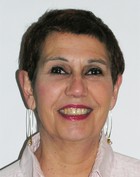
Funzione/Ruolo
Responsabile Politiche di genere UISP (Unione Italiana Sport per Tutti) Veneto.
Percorso professionale
Dopo un percorso di studi classici, Valeria Frigerio inizia la sua carriera come Presidente dell'Unione Italiana Sport per Tutti (UISP), della regione Veneto. Nel 1985 fa parte del gruppo che redige la “Carta dei diritti delle donne nello sport”, e negli anni seguenti partecipa all’organizzazione delle attività di promozione e di aggiornamento e sviluppo della Carta: Carta Europea 2011, Progetto Eu Olympia, Carta Fumetti 2017 ENWOSP.
Nel corso della sua carriera, segue diverse campagne di promozione dello sport per tutti e per la salute (es. progetto "Diamoci una mossa", progetto di educazione alimentare e al movimento per bimbi della scuola primaria) e partecipa al gruppo di lavoro UISP Nazionale per la redazione del manifesto per la corretta informazione sport al femminile, realizzato da UISP, in collaborazione con l'associazione Giulia Giornaliste.

Area Storia e Filosofia
Competenze: archeologia, geografia antica, miti e religione greca, patrimonio culturale, storia, storia antica, storia greca, storia sociale
Parole chiave: colonialismo, contatto culturale, democrazie, globalizzazione, Mediterraneo, migrazioni, pensiero politico greco, polis, rituali (funerari), storia delle donne
Regione: Puglia
Funzione/Ruolo
Professoressa di Storia greca e Presidente del Corso di Laurea in Beni Culturali presso l'Università del Salento (Lecce).
Percorso professionale
Flavia Frisone si laurea in Lettere Classiche all’Università di Messina (1988) con una tesi in Filologia Classica e perfeziona gli studi alla Scuola Normale Superiore di Pisa come borsista presso il Seminario di Storia Greca. Si specializza in Archeologia (1993) dopo un biennio trascorso come borsista alla Scuola di Specializzazione in Archeologia classica dell’Università di Lecce. Dottorato di ricerca in Storia Antica (VIII ciclo, 1993-1996). Dopo un periodo da borsista post-dottorato al Dipartimento di Beni Culturali dell'Università di Lecce, dal 2000 è ricercatrice nel settore scientifico-disciplinare LANT02-Storia greca e dal 2010 è professoressa associata dell'Università del Salento, dove lavora presso il Dipartimento di Beni Culturali. Abilitata al ruolo di I fascia (2017). Già coordinatrice del Dottorato di Ricerca in Storia antica (2012-16), è dal 2017 Presidente del Corso di Laurea in Beni Culturali.
Collabora a diverso titolo con istituzioni come le Soprintendenze archeologiche e Musei, pubblici o privati, partecipando campagne di scavo in Italia meridionale e Sicilia e organizzando o collaborato all’organizzazione di mostre e convegni. Membro di comitati scientifici di riviste e collane editoriali, fa parte di società scientifiche e culturali e svolge un’intensa attività di disseminazione scientifica e di divulgazione culturale con seminari e conferenze presso Istituzioni, Scuole e Istituti di ricerca in Italia e all’estero.
Risultati scientifici
Le prime ricerche condotte da Flavia Frisone riguardano i rituali, in particolare i rituali funerari, nel mondo greco, con il loro complesso significato e le loro ricadute in campo sociale e politico. Su questo tema ha pubblicato numerosi articoli e studi specialistici, oltre a una monografia, dal titolo Leggi e regolamenti funerari nel mondo greco. Le fonti epigrafiche(2002).
Un successivo ambito di ricerche riguarda la colonizzazione greca e la mobilità nel Mediterraneo antico, temi sviluppati con il coordinamento di programmi universitari nazionali di ricerca scientifica (PRIN 2003-2005; 2006-2008) e progetti a finanziamento europeo (Interreg 2006 Italia-Grecia), e che comprendono anche i fenomeni di interazione culturale, con particolare attenzione alle relazioni fra comunità greche e non greche nella Magna Grecia, nella Sicilia e in tutto il Mediterraneo occidentale in età antica. In questo ambito pubblica, insieme con M. Lombardo, Colonie di colonie: le fondazioni sub-coloniali greche tra colonizzazione e colonialismo, Galatina 2009 oltre a molti articoli e contributi scientifici.
Un importante settore di studi di F. Frisone è quello della storia delle donne e delle problematiche di genere, sviluppate a partire da specifici problemi della storia greca. Questo indirizzo si svolge da ultimo anche in riferimento alle modalità di approfondimento e di comunicazione della public history e, in quest’ambito, Frisone è stata Chair del panel AIPH-12 “Archeostorie di tutti noi” alla 1a Conferenza Nazionale dell’Associazione Italiana di Public History, e fa parte del gruppo di lavoro Gender e Public History della stessa società.
Attività editoriali e pubblicazioni
[2002] Frisone F., Leggi e regolamenti funerari nel mondo greco. I. Le fonti epigrafiche, Congedo Editore.
[2003] Frisone F. Manuale di storia greca. 2.2. La documentazione, Monduzzi Editore.
[2009] Lombardo M., Frisone F. (eds.) Colonie i colonie: le fondazioni sub-coloniali greche tra colonizzazione e colonialismo, Congedo Editore.
[2011] Frisone F. Construction of consensus: Norms and Change in Greek Funerary Rituals, in Chaniotis A. (ed.) Ritual Dynamics in the Ancient Mediterranean: Agency, Emotion, Gender, Representation, Stuttgart: Steiner Verlag: 179-201.
[2011] Frisone F., La polis greca: gli anticorpi della comunità solidale fra pentitismo e delazione. Iuris Antiqui Historia, (III): 17-31
[2012] Frisone F. Rivers, land organization, and identity in Greek Western Apoikíai. Mediterranean Historical Review, 27(1): 87-115.
[2016] Frisone F. Experimenting Basileia: Princely Models and the Tyrants of Sicily. KTÈMA, 40: 175-87.
[2016] Frisone F. Sistemi coloniali e definizioni identitarie: le ‘colonie sorelle’ della Sicilia orientale e della Calabria meridionale, in Nizzo V., Donnelan L., Burgers G.J.(eds.) Conceptualising early Colonisation: 179-96.
[2017] Frisone, F. La mujer griega y la polis. Desperta Ferro. Arqueologìa & Historia, 11: 48-55.
[2017] Frisone, F. Archeostorie di tutti noi: per uno storytelling dei beni culturali. Introduzione al panel AIPH-12 Archeostorie di tutti noi - 1st Conference of the AIPH, http://www.archeostorie.it/archeostorie-tutti-noi-storytelling-dei-beni-culturali/
[2020] Frisone F., Lombardo M. Dire les villes des « Autres ». Les établissements des peuples non grecs de l’Occident dans l’historiographie grecque, d’Hécatée à Thucydide, in Lopez‐Rabatel L., Mathé V., Moretti J.-C. (eds.) Dire la ville en grec aux époques antique et byzantine, MOM Éditions: 57-74.
[2021] Frisone F., Les objets fous de Palerme e et d’autres histoires fantastiques d'épigraphie créative. Studi di Antichità 15: 109-22.

Area Politica internazionale
Competenze: diritto internazionale, diritto penale internazionale, diritto umanitario internazionale
Parole chiave: aggressione, conflitti armati, crimini contro l’umanità, crimini di guerra, crimini internazionali, genocidio, tribunali penali internazionali, uso della forza
Regione: ESTERO
Funzione/Ruolo
Professoressa ordinaria di diritto internazionale presso la facoltà di diritto dell’Università di Ginevra (Svizzera)
Percorso professionale
Paola Gaeta è titolare di un dottorato di ricerca in Diritto internazionale, conseguito presso l’Istituto universitario europeo nel 1997. Ha poi iniziato la sua carriera accademica in Italia, presso l’Università di Firenze, dove è stata consecutivamente Ricercatrice, Professoressa Associata e Professoressa ordinaria nella Facolà di Scienze Politiche ‘Cesare Alfieri’. Nel 2007 ha assunto l’incarico di Professoressa ordinaria di Diritto internazionale presso la facoltà di diritto dell’Università di Ginevra, svolgendo anche le funzioni di Direttrice dell’Accademia di Diritto Internazionale Umanitario e Diritti umani di Ginevra fino al 2014. Nel 2010 è stata nominata Adjunct Professor all’Istitituto di Alti Studi Internazionali e dello Sviluppo di Ginevra, per poi divenire professoressa ordinaria presso questo stesso Istituto (dal 2014 a tutt’oggi). E’ stata anche Long-term Visiting Professor (1.09.2014-31.08.2015) e poi Adjunct Professor (1.09.2015 -31.08.2018) di diritto internazionale presso il Dipartimento di Scienze giuridiche dell’Università L. Bocconi a Milano.
Paola Gaeta è membro del Board of Directors dell’Istituto Italiano di Affari Internazionali (dal gennaio 2017) ed è stata promotrice e fondatrice dell’Antonio Cassese Initiative for Justice, Peace and Humanity.
Risultati scientifici
Il settore di ricerca della Professoressa Gaeta riguarda principalmente il diritto internazionale penale, con specifica attenzione ai temi piu’ di rilievo per il diritto internazionale pubblico e collegati a questioni inerenti al diritto internazionale umanitario e ai diritti umani.
Le pubblicazioni scientifiche piu’ rilevanti riguardano The 1949 Geneva Conventions, A commentary(co-editor con A. Clapham and M. Sassòli) (OUP, 2015); The Oxford Handbook of International Law in Armed Conflict(co-editor con Andrew Clapham) (OUP, 2014), la terza edizione rivista e aggiornata di Cassese’s International Criminal Law(con Antonio Cassese e altri, OUP 2013); The UN Genocide Convention: A Commentary(editor, OUP, 2009); and The Statute of the International Criminal Court: A Commentary(co-editor con A. Cassese and J.R.W.D. Jones, OUP 2001).
Attualmente, la professoressa Gaeta sta dirigendo un progetto di ricerca finanziato dal Fondo Nazionale per la ricerca svizzera sulle Armi Autonome Letali e la responsabilità penale per crimini di Guerra.
Attività editoriali e pubblicazioni
E’ autrice di numerose pubblicazioni in riviste internazionali prestigiose e in volumi di ampia distruzione internazionale. E’ stata anche co-autrice, con Antonio Cassese, di Cassese’s International Criminal Law, 3rd ed, Oxford, Oxford University Press, 2013 e Le sfide del diritto internazionale (‘Current Challenges of International Law’), Bologna, Il Mulino, 2008 [315 pp].
La lista completa di pubblicazioni è disponibile alla seguente pagina web: https://www.graduateinstitute.ch/academic-departments/faculty/paola-gaeta
E’ membro dell’Editorial Boardof the Journal of International Criminal Justiceed è stata membro dell’Editorial Boar dell’European Journal of International Law. E’ stata anche Editor (con S. Zappalà), della collana Oxford Monographs in International Humanitarian and Criminal Law (Oxford University Press) (2012-16).
Riconoscimenti e premi
Vincitrice (con A. Clapham and M. Sassoli) del 2017 ASIL Certificate of Merit for high technical craftsmanship and utility to practicing lawyers and scholars per il volume: Andrew Clapham, Paola Gaeta, and Marco Sassóli (eds), The 1949 Geneva Conventions: A Commentary(Oxford University Press, 2015)

Funzione/Ruolo
Docente di Filosofia della Scienza presso La Sapienza Università di Roma
Percorso professionale
Elena Gagliasso si laurea nel 1971 e inizia la sua carriera nel 1976 all'Università La Sapienza di Roma, prima come ricercatrice e poi associata (abilitata full professor nel 2013). Dal 2019 è docente a contratto ‘per alta qualificazione’ in Filosofia della scienza.
Ha insegnato Filosofia e scienze del vivente a Roma e all’Università Orientale di Napoli e ha fatto parte fino al 2018 del Collegio di Dottorato in Filosofia della Sapienza. Attualmente ne è consulente esterna. Con filosofi e biologi ha fondato, e ha diretto per più mandati, il Centro interuniversitario di epistemologia e storia di ricerche sul vivente (ResVIVA) www.resviva.com; ha fatto parte del Comitato Scientifico del Center for Metodology of Science Research, Cerms; è stata presidente del Metaphor Club; oggi è nel Comitato Scientifico dell’AIEMS (Associazione di studi sulle teorie sistemiche) www.aiems.com, è stata tra le co-fondatrici dell’Associazione Donne&Scienza www.donnescienza.com e dell’Associazione Nuova Accademia www.nuovaccademia.com.
Ha partecipato a PRIN nazionali e a due progetti d’Ateneo, di cui uno come Chief Investigator, organizzato circa 30 Convegni nazionali e internazionali e Seminari Permanenti dottorali. Visiting professor all’Ecole des Hautes Etudes en Sciences Sociales di Parigi, alla Sissa di Trieste, alle Università di Pisa, Firenze, Cosenza, Venezia e Piemonte Orientale. Presente in missioni del Terzo Settore, da manifestazioni culturali a trasmissioni radiofoniche, a lezioni nelle scuole superiori.
Risultati scientifici
Elena Gagliasso è un’esperta internazionalmente nota in metodologia e storia della biologia moderna, ecoevoluzionismo e scienze e politiche dell’ambiente, relazioni scienza-società (dai temi della non-neutralità della scienza alla Citizen Science). Ha lavorato sul legame tra filosofia, storia e ideologie dei concetti scientifici, sul tema delle leggi, dei processi e della casualità contingente nelle teorie bioevolutive, sui rapporti tra riduzionismo, olismo e metodologie narrative nella scienza post-normale, considerando anche il tema del genere.
Attività editoriali e pubblicazioni
Elena Gagliasso è stata nel board della Rivista di Storia della Scienza, ha fondato ed è stata nel comitato scientifico di Sofia. Materiali di filosofia e cultura delle donne. È attualmente nel board scientifico di Scienza&Filosofia, di Testo e Senso, di HumanaMente, in quello di Riflessioni Sistemiche e nel Comitato Scientifico di Paradigmi. Rivista di Critica Filosofica.
Ha pubblicato circa 200 articoli specialistici e culturali, due volumi monografici, curatele di circa 25 volumi e di riviste del settore filosofico-scientifico. Di seguito, una selezione.
[2020] Gagliasso E. Stili di ricerca mutanti. Le donne lavorano l’evoluzionismo, in (a cura di) Gagliasso E., Severini E., Pollo S. Che genere di darwinismo? Scienza, evoluzionismo e questioni di genere, Notizie di Politeia, anno XXXVI, n.139: 28-34.
[2020] Gagliasso E. Agenda (e subenda) covidaria in quattro movimenti: tra epistemologia e coevoluzione, in (a cura di) Monti M., Redi C. A., La vita dopo (il)/ la Covid-19, Ibis: 153-164.
[2020] Gagliasso E. L’uso fecondo del limite. Epistemologia, ecologia, filosofia, in (a cura di) Bucci P., Galletti M. Il futuro della mente, Edizioni ETS: 295-308.
[2020] Gagliasso E. Il paradigma ecologico come stile di ragionamento e il negazionismo, in (a cura di) Mangia C., Rubbia G., Ravaioli M., Ambiente e clima. Il presente per il futuro, IRPP e-publishing: 26-33.
[2019] Gagliasso E. Il concetto di campo in biologia. Tra filosofie tacite e sperimentazioni, in (ed. by) Marina De Palo, Monografic number- Field theories. Psychology, linguistics, biology, Paradigmi, XXXVII, 2-: 275-291.
[2019] Gagliasso E. Condividui in evoluzione: quale filosofia? in (a cura di) Monti M., Redi C.A. CON-dividuo, Cellule e Genomi – XVII corso, Ibis: 81-96.
[2016] Gagliasso E. Morganti F. Passariello A. (a cura di), Percorsi Evolutivi. Lezioni di Filosofia della biologia, Franco Angeli: pp. 196.
[2015] Gagliasso E. Individuals as Ecosystems: An Essential Tension, (eds.) Gagliasso E., Sterpetti F., Natura e conoscenza. Paradigmi, n.2 anno XXXIII, maggio agosto: 87-104.
[2015] Gagliasso E. Per un’epistemologia critica ed autocritica, in (a cura di) Gagliasso E., Della Rocca M., Memoli R., Per una scienza critica, ETS: 111-129.
[2014] Gagliasso E. Contesti di vita: ragionare con Darwin ecologo, in (a cura di) Bucchi S., Gensini S., Darwiniana. Evoluzione e comunicazione, Edizioni ETS: 9-24.
[2013] Gagliasso E. Ambiente, in (a cura di) Michelini F., Davies J., Frontiere della biologia, Mimesis: 117-142.
[2008] Gagliasso E. Dividual Systems & Ultraneoteny, in (eds. by) Molfino F., Zucco F., Women in Biotechnology. Creating Interfaces, Springer: 143-160.

Funzione/Ruolo
IMPROVEMENT & SAVING Project Leader. EU Lead Auditor Conformity Assessment CE marking
Percorso professionale
Dopo aver conseguito la laurea magistrale in Chimica presso l’Università di Firenze (1999) e una borsa di studio presso il Consorzio Interuniversitario per la ricerca sulle Metallo-Proteine dell’Università di Firenze, matura esperienze professionali in vari ambiti distinguendosi per lo studio e l’ottimizzazione di processi aziendali e metodi analitici in ambito farmaceutico e ambientale.
Dal 2000 al 2017 è Consulente Tecnica di Ufficio del Tribunale di Firenze.
Dal 2003 a maggio 2008, lavora presso ALPHA ECOLOGIA Srl facendo conseguire all’azienda l’accreditamento ACCREDIA, ottimizzando i processi aziendali e le attività del laboratorio chimico.
Nel 2006 consegue in CSQA la certificazione di Auditor Interno (ISO19011) per i Sistemi di Gestione per la Qualità.
Da maggio 2008 a febbraio 2016 lavora presso Biochemielab Srl, ricoprendo dapprima il ruolo di Responsabile di Laboratorio implementando il Quality Management System con l’approccio per processi, il sistema QA/QC EPA Standard Quality System, incrementando l’accreditamento ACCREDIA ISO17025, digitalizzazione delle attività di laboratorio; successivamente ricopre il ruolo di Quality Assurance Manager occupandosi del sistema integrato qualità-ambiente-sicurezza, certificazioni ISO9001, ISO14001, accreditamento ACCREDIA ISO17025, ottimizzazione dei processi aziendali.
Dal 2016 al 2022 ricopre il ruolo di Quality Assurance Manager in SAGEA Centro di Saggio Srl, International Contract Research Organisation nel settore agroalimentare, occupandosi di certificazioni GLP e GEP come auditor interno. Ha implementato nell’azienda il Quality Management System ISO9001, l’approccio per processi del modello giapponese Total Quality.
Nel 2022 diventa IMPROVEMENT & SAVING Project Leader, a capo di alcuni progetti di standardizzazione per i laboratori europei, progetti commissionati dalla Commissione Europea DG-GROW con il CEN di Bruxelles, e EU Lead Auditor presso un organismo di notifica/certificazione olandese EFCI Register (NB2832) autorizzato dalla Commissione Europea per la valutazione di conformità e marcatura CE di prodotti per il mercato europeo.
Dal 2016 è Presidente nazionale del Settore Alimentare di AICQ (Associazione Italiana Cultura Qualità) per la diffusione della qualità nel settore agroalimentare e vice-presidente del Comitato Laboratori di prova e di taratura di AICQ per la diffusione della qualità nei laboratori di prova.
Dal 2019 è Green Belt Six Sigma ed è consulente internazionale in ambito TQM e Lean Six Sigma presso COMATCH GmbH con sede a Berlino.
Risultati scientifici
Dal 2000 è esperta di implementazione nelle aziende del modello giapponese del Total Quality Management (Toyota Way), del miglioramento continuo Kaizen, di analisi di processi aziendali e progetti Lean Six Sigma,di implementazione aziendale di MonozukuriWG.
Ha partecipato a numerosi consegni come relatrice e maturato ampie esperienze di formazione.
In particolare, dal 2016 a oggi l’attività in AICQ le ha permesso di organizzare Corsi di formazione e Convegni nazionali con Istituto Superiore di Sanità, ACCREDIA, AICQ-SICEV.
Dal 2018 è membro UNI/CT 003 "Commissione Agroalimentare” con diritto di voto, membro UNI/CT003/GL21 "Biostimolanti delle piante" con diritto di voto, membro UNI/CT406 “Fertilizzanti” con diritto di voto, membro UNI/CT003/GL23 “Autenticità degli alimenti” con diritto di voto.
Dal 2019 è una tra i responsabili del Progetto di Formazione Europea ENVIRECA-ERASMUS+ Commissione Europea, AICQ, DU, FLA, HRC, CSM e EXELIA “Cooperation for innovation and the exchange of good practices, Strategic Partnerships for vocational education and training” per il settore HORECA.
Attività editoriali e pubblicazioni
[2017] Gallerini S., Le GLP/BPL, il Kaizen e il Monozukuri, Magazine Qualità AICQ gen-feb
[2016] Gallerini S., Le GLP/BPL, il Kaizen e il Monozukuri, AICQ QualitàOnLine, novembre
[2007] Gallerini S., Salvini A., Frediani P., Homogeneous hydrogenation of ketones in the presence of H2Ru(CO)2(PPh3)2, Dalton Transaction, Issue 39
[2001], Gallerini S., Total Quality Management nel passaggio generazionale delle imprese toscane, ASFOR Toscana
[2000] Gallerini S., Salvini A., Frediani P., Homogeneous hydrogenation of ketones in the presence of H2Ru(CO)2(PPh3)2, Applied Organometallic Chemistry, 14: 570-580
[1999] Gallerini S., Salvini A., Frediani P., Homogeneous hydrogenation, XIII FECHEM International Conference on Organometallic Chemistry Book of Abstract, Lisbon
Riconoscimenti e premi
Nel 2016 riceve il Sagea Innovation Award, premio per l’implementazione del Total Quality Management finalizzato alla ricerca del miglioramento continuo Kaizen
Nel 2017 riceve il Premio Comitati e Settori AICQ, come presidente del Settore Alimentare per aver partecipato attivamente alla diffusione della Cultura della Qualità in Italia, per eventi formativi nazionali organizzati con successo di platea e di contenuti sia per articoli pubblicati sulle riviste Magazine Qualità e Qualità On Line.
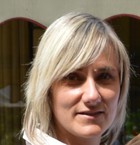
Funzione/Ruolo
Professoressa associata presso la Facoltà di Scienze della formazione dell'Università Cattolica del Sacro Cuore di Milano e Responsabile del Laboratorio di Scienze dell’esercizio fisico e dello sport, Corso di Laurea in Scienze Motorie presso lo stesso Ateneo.
Percorso professionale
Dopo il Diploma di Educazione Fisica conseguito presso l’Istituto Superiore di Educazione Fisica dell’Università Cattolica del Sacro Cuore di Milano consegue la Licence presso l’U.F.R. (Unité de Formation et de Recherche) S.T.A.P.S. (Science et Technique des Activités Physiques et Sportives) di Nizza (Francia) e il Diplôme d’Etude Approfondie in S.T.A.P.S. (Science et Technique des Activités Physiques et Sportives) presso l’Università di Marsiglia (Francia). Nel 2008 ottiene il PhD in S.T.A.P.S (Science et Technique des Activités Physiques et Sportives) presso l’Università Rennes2.
Dal1996 al 2002 lavora presso il “Centro Studi e Ricerche” di Technogym per lo sviluppo di prodotti, di protocolli di allenamento e di protocolli di ricerca.
Nel 2002 inizia la sua carriera accademica come ricercatrice e poi professoressa associata all'Università Cattolica del Sacro Cuore di Milano.
Risultati scientifici
Le principali aree di ricerca della professoressa Galvani riguardano:
Valutazione del modello di prestazione di diversi sport: verifica dei fattori limitanti
Valutazione delle caratteristiche antropometriche e funzionali degli atleti per il miglioramento della performance sportiva
Valutazione delle caratteristiche antropometriche e funzionali degli atleti per la prevenzione degli infortuni
Valutazione delle risposte fisiologiche e metaboliche delle attività sportive per il miglioramento delle prestazioni
Valutazione delle risposte fisiologiche e metaboliche di giochi ludico-sportivi o di attività ludico-ricreative per il miglioramento dello stato di salute
Studio dell’attività fisica nello sportivo
Studio dell’attività in popolazioni speciali (obesi, anziani, disabili)
Analisi dell’attività fisica spontanea nei bambini obesi, sovrappeso, normopeso.
Attività editoriali e pubblicazioni
(2012) Raffaelli C, Galvani C, Lanza M, Zamparo P. Different methods for monitoring intensity during water-based aerobic exercises. Eur J Appl Physiol, 112(1):125-34.
(2013) Galvani C, Bruseghini P, Annoni I, Demarie S, Salvati A, Faina M. Excess post-exercise oxygen consumption after different moderate physical activities in a healthy female population. Medicina dello Sport, 66(2):163-78.
(2013) Alberti M, Galvani C, El Ghoch M, Capelli C, Lanza M, Calugi S, Dalle Grave R. Assessment of Physical Activity in Anorexia Nervosa and Treatment Outcome. Med Sci Sports Exerc, 45(9):1643-8
(2015) Galvani C, Ardigò LP, Alberti M, Daniele F, Capelli C. Physical activity, sleep pattern and energy expenditure in double-handed offshore sailing. J Sports Med Phys Fitness, 55(12):1480-8.
(2017) Ciprandi D, Bertozzi F, Zago M, Ferreira CLP, Boari G, Sforza C, Galvani C. Study of the association between gait variability and physical activity. Eur Rev Aging Phys Act, 15;14:19. doi: 10.1186/s11556-017-0188-0. eCollection 2017.
( 2018) Ciprandi D, Zago M, Bertozzi F, Sforza C, Galvani C. Influence of energy cost and physical fitness on the preferred walking speed and gait variability in elderly women. J Electromyogr Kinesiol, 26;43:1-6.
(2020) Bruseghini P, Tam E, Calabria E, Milanese C, Capelli C, Galvani C. High Intensity Interval Training Does Not Have Compensatory Effects on Physical Activity Levels in Older Adults. Int J Environ Res Public Health, 8;17(3):1083.
(2020) Casolo A, Nuccio S, Tommasini E, Casolo F, Galvani C. Parental influence on children’s cardiometabolic risk factors and cardiorespiratory fitness. Journal of Human Sport and Exercise, 15(4proc):S1354-S1366.
(2022) Tommasini E, Demarie S, Bruseghini P, Gianfelici A, Galvani C. Physiological and exertional responses of partner dance in elderly. J Sports Med Phys Fitness, 62(5):691-699.
(2022) Tommasini E, Cipriani E, Antonietti A, Galvani C. Correlations Between Physical Activity Level, Quality of Life, and Cognitive Performance in Elderly Individuals Engaging in Multi-Year Dance Activities. J Dance Med Sci, 15;26(1):34-40.
(2022) Pasqualetti M, Onori ME, Canu G, Moretti G, Minucci A, Baroni S, Mordente A, Urbani A, Galvani C. The Relationship between ACE, ACTN3 and MCT1 Genetic Polymorphisms and Athletic Performance in Elite Rugby Union Players: A Preliminary Study. Genes, 13(6):969.

Funzione/Ruolo
Ricercatrice associata all'Istituto Nazionale di Oceanografia e di Geofisica Sperimentale (OGS) di Trieste
Percorso professionale
Dopo la laurea in Scienze Biologiche all'Università di Siena nel 1977, dal 1977-1979 svolge un tirocinio come allieva laureata interna presso l'Istituto di Anatomia Comparata (Laboratorio di Idrobiologia) dell'Università di Siena. Dal 1980 al 1982 è socia della Cooperativa di Biologia Marina, Idrobiologia e Acquacoltura, "Coipa" (Roma). L'anno successivo è ricercatrice alla Stazione Zoologica Anton Dohrn di Napoli, presso il Laboratorio di Ecologia del Benthos con sede a Villa Dohrn, Ischia. Nel 1986 svolge un post-doc alla School of Oceanography dell'Università di Washington e ai Friday Harbor Laboratories. Dal 1992 è prima ricercatrice della Stazione Zoologica Anton Dohrn. Nel 2014 consegue l'abilitazione scientifica nazionale per Ecologia (professoressa ordinaria) e Zoologia (professoressa associata). Dal febbraio 2021 è ricercatrice associata all'Istituto Nazionale di Oceanografia e di Geofisica Sperimentale (OGS) di Trieste.
Risultati scientifici
Le ricerche di Maria Cristina Gambi sono finalizzate allo studio della diversità e della biologia evolutiva ed ecologia dei policheti (uno dei gruppi più abbondanti e diversificati degli habitat marini che comprendono circa 13mila specie) e del loro ruolo come bioindicatori e nel funzionamento dei biotopi costieri. In questo ambito vengono anche studiate specie aliene di policheti, il loro ciclo vitale e la dinamica di colonizzazione del Mediterraneo. L'identificazione di specie chiave di policheti resistenti a diversi fattori di stress collegati al cambiamento climatico, in particolare l'acidificazione marina, permette di utilizzare queste specie come modelli per lo studio di acclimatazione ed adattamento alle condizioni locali dell'ambiente. L'attività sperimentale su policheti e zoobenthos è svolta sia in laboratorio che in situ, utilizzando alcuni sistemi sommersi di origine vulcanica come laboratori naturali, in quanto naturalmente acidificati e senza variazioni di temperatura o salinità. Nell'ambito delle sue ricerche Maria Cristina Gambi ha descritto 16 specie di policheti nuove per la scienza e un nuovo e peculiare gruppo di detritivori (organismi consumatori di detriti) nel sistema Posidonia oceanica del Mediterraneo e Thalassia testudinum dei Caraibi. Ha rilevato e studiato per la prima volta l'effetto delle heat-waves (ondate di calore) nel Golfo di Napoli e ha identificato specie chiave di policheti come possibili modelli per lo studio del cambiamento climatico. Ha inoltre descritto comunità bentoniche peculiari (organismi acquatici che vivono in stretto contatto con il fondo o fissati a un substrato solido) nei fondali costieri di Baia Terra Nova (Antartide).
Attività editoriali e pubblicazioni
Dal 2005 al 2013 è Editor della rivista Marine Ecology e dal 2014 a oggi è Associate Editor della rivista International Journal Marine Ecology
È autrice di numerose pubblicazioni scientifiche, compresi alcuni libri, e ha curato vari numeri speciali di Marine Ecology. Le pubblicazioni più recenti e rilevanti sono elencate di seguito:
(2018) Teixido N, Gambi MC, Parravicini V, Kroeker K, Micheli F, Villeger S, Ballesteros E. Functional biodiversity loss along natural CO2 gradients. Nature Communications, 9(1). DOI.10.1038/s41467-018-07592-1.
(2018) Foo SA, Byrne M, Ricevuto E, Gambi MC. The carbon dioxide vents of Ischia, Italy, a natural laboratory to assess impacts of ocean acidification on marine ecosystems: an overview of research and comparisons with other vent systems. Oceanography and Marine Biology: An Annual Review, 56, 237-310
(2017) Vizzini S, Martínez-Crego B, Andolina C, Massa-Gallucci A, Connell SD, Gambi MC. Ocean acidification as a driver of community simplification via the collapse of higher-order and rise of lower-order consumers. Scientific Report 7, 4018.
(2013) Kroeker K, Micheli F, Gambi MC. Ocean acidification causes ecosystem shifts via altered competitive interactions. Nature Climate Change, 3, 156-159.
(2013) Kroeker KJ, Gambi MC, Micheli F. Altered recovery dynamics result in homogenous assemblages in an acidified ocean. Proceedings of the National Academy of Sciences, USA (PNAS), 110 (31): 12721-12726.
(2011) Kroeker KJ, Micheli F, Gambi MC, Martz TR. Divergent ecosystem responses within a benthic marine community to ocean acidification. Proceedings of the National Academy of Sciences USA (PNAS), 108 (35), 14515-14520.
Riconoscimenti e premi
Fa parte della Società Italiana di Biologia Marina (S.I.B.M.), dell'Unione Zoologica Italiana (U.Z.I.), dell'Associazione Italiana di Oceanologia e Limnologia (A.I.O.L.), della Società Italiana di Ecologia (S.It.E.).
Inoltre è componente associata del gruppo GOSSOE (Group of Specialists of Southern Ocean Ecology) dello S.C.A.R.-S.C.O.R.
Dal 1992 al 2001 è stata rappresentante nazionale del Comitato Direttivo dell'International Polychaete Association (I.P.A.) (1992-2001) e dal 2001 al 2004 ne è stata Presidente.
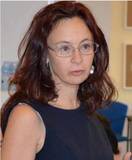
Funzione/Ruolo
Direttrice dell’unità "Molecular and Pharmaco-Epidemiology" presso il dipartimento di Oncologia Sperimentale dell’Istituto Europeo di Oncologia di Milano (IEO). Docente dell’European School of Molecular Medicine di Milano (SEMM). Professoressa a contratto di statistica medica presso l'Università Statale di Milano
Percorso professionale
Si laurea in Statistica presso l'Università di Bologna nel 1993, proseguendo la sua formazione attraverso una specializzazione in Biometria nel 1995 all'Università di Reading (UK). Entra a far parte dello IEO di Milano già dal 1996, quando l'Istituto ha appena 2 anni di attività alle spalle; al suo interno svolge costantemente attività di ricerca. Nel 2004 consegue un dottorato di ricerca in Epidemiologia all'Università di Birmingham (Public Health). Dal 2009 è Vice Direttrice della divisione di Biostatistica e Epidemiologia dello IEO di Milano e nel 2014 diventa consulente di Statistica per il Comitato etico di Multimedica a Milano. Nel 2016 diventa professoressa a contratto di statistica media presso l'Università Statale di Milano e nel 2017 ottiene l’abilitazione scientifica nazionale alle funzioni di professoressa universitaria in statistica medica. Dal 2018 è docente all’European School of Molecular Medicine di Milano (SEMM) e Group leader dell’unità "Molecular and Pharmaco-Epidemiology" presso il dipartimento di Oncologia Sperimentale dell’Istituto Europeo di Oncologia di Milano (IEO).
Risultati scientifici
Sara Gandini fornisce consulenza costante in un'ampia gamma di settori, tra cui analisi statistiche di esperimenti e studi clinici, disegni di studio e sviluppo dei protocolli. Collabora con ricercatori in tutto il mondo e ha condotto ricerche approfondite sull'epidemiologia del cancro, comprese le meta-analisi e pooled-analisi, con l'obiettivo di una migliore comprensione dell'eziologia del cancro. Negli ultimi anni il suo interesse principale si è concentrato sullo studio del melanoma e dei relativi fattori di rischio e i risutlati delle sue ricerche che ha portato a cambiare la classificazione dell'Agenzia Internazionale per la Ricerca sul Cancro di Lione definendo cancerogena l'esposizione a tutto lo spettro degli ultravioletti, inclusi i lettini solari. Sara Gandini è così giunta ad analizzare il ruolo della vitamina D all'interno del complesso sistema del corpo umano, scoprendo un'associazione consistente fra scarsa presenza di vitamina D e propensione allo sviluppo del cancro al colon. E' Principal Investigator scientifica di due studi randomizzati che ha disegnato e promosso per valutare l'effetto della vitamina D sulla prognosi dei pazienti affetti da melanoma e tumore al colon e sull’interazione tra dieta e microbiota intestinale.
In generale, crede nella ricerca indipendente e nella sua carriera si è occupata, oltre che di prevenzione primaria e studio di biomarcatori, anche di Drug repositioning, il riutilizzo in ambito oncologico del principio attivo di farmaci in commercio (Vitamin D, Metformina, Betabloccanti...), su cui non ci sono interessi economici ed investimenti da parte delle aziende farmaceutiche
Attività editoriali e pubblicazioni
Sara Gandini è autrice di più di 200 articoli su riviste nazionali ed internazionali ad alto impatto, fra cui:
(2019) Thomas AM, Manghi P, Asnicar F, Pasolli E, Armanini F, Zolfo M, Beghini F, Manara S, Karcher N, Pozzi C, Gandini S, Serrano D, Tarallo S, Francavilla A, Gallo G, Trompetto M, Ferrero G, Mizutani S, Shiroma H, Shiba S, Shibata T, Yachida S, Yamada T, Wirbel J, Schrotz-King P, Ulrich CM, Brenner H, Arumugam M, Bork P, Zeller G, Cordero F, Dias-Neto E, Setubal JC, Tett A, Pardini B, Rescigno M, Waldron L, Naccarati A, Segata N. Metagenomic analysis of colorectal cancer datasets identifies cross-cohort microbial diagnostic signatures and a link with choline degradation.Nat Med. 25(4):667-678.
(2019) Wirbel J, Pyl PT, Kartal E, Zych K, Kashani A, Milanese A, Fleck JS, Voigt AY, Palleja A, Ponnudurai R, Sunagawa S, Coelho LP, Schrotz-King P, Vogtmann E, Habermann N, Niméus E, Thomas AM, Manghi P, Gandini S, Serrano D, Mizutani S, Shiroma H, Shiba S, Shibata T, Yachida S, Yamada T, Waldron L, Naccarati A, Segata N, Sinha R, Ulrich CM, Brenner H, Arumugam M, Bork P, Zeller G. Meta-analysis of fecal metagenomes reveals global microbial signatures that are specific for colorectal cancer. Nat Med. 25(4):679-689.
(2016) Le CP, Nowell CJ, Kim-Fuchs C, Botteri E, Hiller JG, Ismail H, Pimentel MA, Chai MG, Karnezis T, Rotmensz N, Renne G, Gandini S, et al. Chronic stress in mice remodels lymph vasculature to promote tumour cell dissemination. Nature Communications, 7:10634.
(2014) Gandini S, Puntoni M, Heckman-Stoddard BM, Dunn BK, Ford L, DeCensi A, Szabo E. Metformin and cancer risk and mortality: a systematic review and meta-analysis taking into account biases and confounders. Cancer Prevention Research (Philadelphia), 7(9):867-85.
(2012) Boniol M, Autier P, Boyle P, Gandini S. Cutaneous melanoma attributable to sunbed use: systematic review and meta-analysis. British Medical Journal, 345:e4757.
(2012) Zittermann A, Iodice S, Pilz S, Grant WB, Bagnardi V, Gandini S. Vitamin D deficiency and mortality risk in the general population: a meta-analysis of prospective cohort studies.The American Journal of Clinical Nutrition, 95(1):91-100.
(2011) Gandini S, Boniol M, Haukka J, et al. Meta-analysis of observational studies of serum 25-hydroxyvitamin D levels and colorectal, breast and prostate cancer and colorectal adenoma. International Journal of Cancer, 128(6):1414-24.
(2010) DeCensi A, Puntoni M, Goodwin P, Cazzaniga M, Gennari A, Bonanni B, Gandini S. Metformin and Cancer Risk in Diabetic Patients: A Systematic Review and Meta-analysis. Cancer Prevention Research (Philadelphia), 3(11):1451-61.
(2007) Autier P, Gandini S. Vitamin D suppl. and total mortality - A meta-analysis of randomized controlled trials. Archives of Internal Medicine, 167(16):1730-7.
(2005) Gandini S, et al. Meta-analysis of risk factors for cutaneous melanoma: II. Sun exposure. European Journal of Cancer, 41(1):45-60.
(2005) Gandini S, et al. Meta-analysis of risk factors for cutaneous melanoma: I. Common and atypical naevi. European Journal of Cancer, 41(1):28-44.
(2005) Gandini S, et al. Meta-analysis of risk factors for cutaneous melanoma: III. Family history, actinic damage and phenotypic factors. European Journal of Cancer, 41(14):2040-59.
Riconoscimenti e premi
Nel 2008 vince il premio Bruno Martinetto per le ricerche sulla prevenzione dei tumori.
Nel 2014 viene eletta all'unanimità Presidente della società scientifica indipendente EuroSkin che si occupa di prevenzione primaria.
Nel 2019 viene coopatata nel Top Italian Women Scientist - Club delle Scienziate di Onda, Osservatorio nazionale sulla salute delle donne e di genere.

Funzione/Ruolo
Avvocata di diritto civile e sportivo, con particolare attenzione alle questioni di genere. Maratoneta e campionessa paralimpica di atletica leggera.
Percorso professionale
Dopo la laurea in Giurisprudenza conseguita presso l’Università degli Studi di Pavia, ottiene l’abilitazione alla professione di avvocata (1999) e di mediatrice (2010), con iscrizione rispettivamente all’Albo dell’Ordine degli Avvocati di Brescia e all’Albo della Camera di Conciliazione dell’Ordine degli Avvocati di Brescia. Nel 2012 avvia un percorso di specializzazione in materia di giustizia sportiva, partecipando a numerosi corsi accademici e professionali, e di questioni di genere/pari opportunità. Nel 2018 viene eletta e poi nominata Presidente del Comitato Pari Opportunità Ordine degli Avvocati di Brescia, carica che ricopre sino al settembre del 2020.
Nel 2019 risulta la più votata all’elezione del Consiglio dell’Ordine degli Avvocati di Brescia, nel 2020 entra a fare parte della Commissione Donne e Sport dell’Associazione Italiana Avvocati dello Sport. Dal 2021 è Componente della Corte Federale d’Appello III sezione F.I.G.C. Dal 2023 è Presidente del CPO (Comitato pari opportunità) dell'ordine degli avvocati di Brescia.
Ha partecipato a numerosi convegni e corsi in qualità di relatrice anche presso l’Università La Sapienza di Roma sui temi che riguardano la riforma dello sport, la storia dello sport al femminile, le politiche di safeguarding, ecc.
Affetta da sclerosi multipla dal 2006, nel 2014 inizia a praticare la corsa e, nel 2018, riesce a classificarsi a livello della FISPES (Federazione Italiana Sport Paralimpici) nella categoria T38. Nello stesso anno partecipa ai Campionati Italiani Paralimpici di Nembro, diventando campionessa Italiana nei 1500 metri e anche negli 800 metri, distanza su cui ottiene il record Italiano.
Il 9 febbraio del 2020 diventa campionessa italiana paralimpica nella mezza maratona nel corso dei Campionati Italiani Paralimpici disputati a Barletta (BA). Nel luglio del 2021 partecipa ai Campionati Italiani Paralimpici a Concesio (BS) e conquista il titolo italiano paralimpico nella categoria T38 nei 400 e negli 800 metri. Ad aprile del 2022 ai Campionati Italiani Assoluti Paralimpici che si sono svolti ad Ancona conquista 3 titoli italiani e precisamente nel getto del peso, nei 200 e 400 metri sempre nella categoria T38.
Nel 2023 ho conquistato il titolo italiano di 10 km su strada sempre nella mia categoria T38 e nel gennaio del 2024 ho conquistato 3 medaglie ad Ancona e precisamente Oro, Argento e Bronzo e giugno 2024 medaglia di Bronzo nel getto del peso.
Ho corso ad oggi 17 Maratone. La prima è stata a Brescia nella sua città nel 2016 e poi si sono succedete varie Regine in Italia e nel mondo correndo per ben 4 volte la maratona di NY tra il 2016, 2019, 2023 e 2024. Teodofora per i Giochi Olimpici e paralimpici di Milano Cortina 2026.
Attività editoriali e pubblicazioni
Maria Luisa Garatti è autrice di due libri: Sua Maestà: correre al di là della sclerosi multipla, con Rubens Noviello, Marco Serra Tarantola Editore, 2019; Speriamo sia un pareggio. Le donne, la riforma dello sport, la sfida al cambiamento con Maurizio Folli e Elena Pisani, Geo Edizioni, 2021.
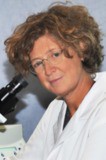
Funzione/Ruolo
Responsabile del Laboratorio di Immunopatologia Sperimentale presso Humanitas Research Hospital e Professoressa associata di Patologia Clinica alla Humanitas University di Milano
Percorso professionale
Dopo la laurea in Medicina Veterinaria conseguita presso l'Università degli Studi di Milano nel 1990, si è specializzata in immunopatologia lavorando presso laboratori italiani ed esteri, come il Laboratorio di Immunologia dell'Istituto di Ricerche Farmacologiche "Mario Negri" dal 1990 al 2005, e il dipartimento di Biologia Molecolare del Centro di Studi Nucleari di Grenoble per il biennio 1994-1995. E' attualmente responsabile del Laboratorio di Immunopatologia Sperimentale presso l'Istituto Clinico Humanitas. I suoi interessi riguardano le cellule del sistema immunitario e la caratterizzazione della loro attività biologica, l'immunità innata verso agenti patogeni e la regolazione dei processi infiammatori.
Risultati scientifici
Il gruppo di ricerca di cui Cecilia Garlanda è responsabile si è focalizzato sullo studio della molecola PTX3, molecola dell'immunità innata coinvolta nella resistenza a infezioni fungine, batteriche e virali, e nella regolazione dell'infiammazione. Recentemente il gruppo ha messo in evidenza che PTX3 crea un ambiente ostile alla crescita del tumore, regolando l'infiammazione che si genera nel microambiente tumorale. Cecilia Garlanda si impegna inoltre in studi pre-clinici e in studi finalizzati alla possibilità di trasferire le informazioni ottenute all'attività clinica.
Attività editoriali e pubblicazioni
Autrice di numerose pubblicazioni scientifiche, tra cui:
(2015) Doni A, Musso T, Morone D, Bastone A, Zambelli V, Sironi M, Castagnoli C, Cambieri I, Stravalaci M, Pasqualini F, Laface I, Valentino S, Tartari S, Ponzetta A, Maina V, Barbieri SS, Tremoli E, Catapano AL, Norata GD, Bottazzi B, Garlanda C, Mantovani A. An acidic microenvironment sets the humoral pattern recognition molecule PTX3 in a tissue repair mode. J Exp Med, 1;212(6):905-25.
(2015) Bonavita E, Gentile S, Rubino M, Maina V, Papait R, Kunderfranco P, Greco C, Feruglio F, Molgora M, Laface I, Tartari S, Doni A, Pasqualini F, Barbati E, Basso G, Galdiero MR, Nebuloni M, Roncalli M, Colombo P, Laghi L, Lambris JD, Jaillon S, Garlanda C, Mantovani A. PTX3 is an extrinsic oncosuppressor regulating complement-dependent inflammation in cancer. Cell, 12;160(4):700-14.
(2014) Jaillon S, Moalli F, Ragnarsdottir B, Bonavita E, Riva F, Barbati E, Nebuloni M, Cvetko Krajinovic L, Markotic A, Valentino S, Doni A, Tartari S, Graziani G, Montanelli A, Delneste Y, Svanborg C, Garlanda C, Mantovani A. The humoral pattern recognition molecule PTX3 is a key component of innate immunity against urinary tract infection. Immunity, 17;40(4):621-32.
(2013) Garlanda C, Dinarello CA, Mantovani A, The interleukin-1 family: back to the future. Immunity, 12;39(6):1003-18.
(2010) Moalli F, Doni A, Deban L, Zelante T, Zagarella S, Bottazzi B, Romani L, Mantovani A, and Garlanda C. Role of complement and Fcg receptors in the protective activity of the long pentraxin PTX3 against Aspergillus fumigatus. Blood, 9;116(24):5170-80.
(2007) Garlanda C, Riva F, Veliz T, Polentarutti N, Pasqualini F, Radaelli E, Sironi M, Nebuloni M, Zorini EO, Scanziani E, Mantovani A. Increased susceptibility to colitis-associated cancer of mice lacking TIR8, an inhibitory member of the interleukin-1 receptor family. Cancer Research, 1;67(13):6017-21.
(2005) Garlanda C, Bottazzi B, Bastone A, Mantovani A. Pentraxins at the crossroads between innate immunity, inflammation, matrix deposition, and female fertility. Annual Review of Immunology, 23: 337-366.
(2004) Garlanda C, Riva F, Polentarutti N, Buracchi C, Sironi M, De Bortoli M, Muzio M, Bergottini R, Scanziani E, Vecchi A, Hirsch A, Mantovani A. Intestinal inflammation in mice deficient in Tir8, an inhibitory member of the IL-1 receptor family. Proceedings of the National Academy of the Sciences of the United States of America, 101: 3522-3526.
(2002) Garlanda C, Hirsch E, Bozza S, Salustri A, De Acetis M, Nota R, Maccagno A, Riva F, Bottazzi B, Peri G, Doni A, Vago L, Botto M, De Santis R, Carminati P, Siracusa G, Altruda F, Vecchi A, Romani L, Mantovani A. Non-redundant role of the long pentraxin PTX3 in anti-fungal innate immune response. Nature, 420: 182-186.(2000) Hirsch E, Katanaev V L, Garlanda C, Azzolino O, Pirola L, Silengo L, Sozzani S, Mantovani A, Altruda F, Wymann MP. Central role for G protein-coupled phosphoinositide 3-kinase gamma in inflammation. Science, 287: 1049-1053.

Funzione/Ruolo
Direttrice del Laboratorio Rischio Cardiometabolico e Coordinatrice della ricerca metabolica nell'uomo all'Istituto di Fisiologia Clinica del CNR di Pisa, Adjunct associate professor alla Division of Diabetes, University of Texas Health at San Antonio, USA
Percorso professionale
Dopo aver conseguito la Laurea in Ingegneria Elettronica con specializzazione in Bioingegneria all'Università di Padova nel 1990, prosegue la sua formazione con un Dottorato di ricerca in Bioingegneria presso il Politecnico di Milano e un PhD in Preventive Medicine and Community Health, con indirizzo Fisiologia Umana, alla Università del Texas Medical Branch di Galveston, Università in cui è fellow dal 1991 al 1995. In questo periodo la sua ricerca si concentra sui meccanismi fisiologici che regolano il metabolismo di zuccheri, lipidi e proteine avvalendosi di tecniche innovative basate sull'infusione di traccianti marcati con isotopi stabili misurati in spettrometria di massa, e sull'analisi della loro cinetica tramite modelli matematici. Nel 1995 torna in Italia per fondare il Laboratorio Isotopi Stabili all'Istituto di Fisiologia Clinica del CNR, nell'Unità di Metabolismo e Nutrizione di Pisa. Dal 2008 al 2009 è Direttrice del Laboratorio di Spettrometria di Massa della Fondazione Toscana G. Monasterio di Pisa e poi nel 2009 rientra come ricercatore all'Istituto di Fisiologia Clinica del CNR di Pisa al CNR dove fonda il Laboratorio di Rischio Cardiometabolico e coordina la ricerca metabolica nell'uomo.
Dal 2001 alla ricerca affianca anche la carriera accademica: è prima Assistant, poi Associate Professor alla University of Texas Health Science Center, Divisione Diabete, a San Antonio; dal 2006 al 2011 è Professoressa a contratto dell'Università di Pisa, nella facoltà di Ingegneria, corso di laurea in Ingegneria Biomedica.
Dal 2010 è membro del collegio dei direttori dell'American College of Nutrition (ACN) e ne dirige lo European Chapter. Nel 2012 fonda e da allora presiede il gruppo di studio sulla steatosi epatica non alcolica (NAFLD) della Società Europea per lo Studio del Diabete (EASD).
Risultati scientifici
Amalia Gastaldelli è una PhD con specializzazione in fisiologia umana, esperta dello studio del metabolismo umano, del rischio cardio-metabolico e delle patologie del metabolismo glucidico e lipidico, quali la resistenza all'insulina, il diabete non insulino dipendente e la steatosi epatica non alcolica. La sua formazione multidisciplinare le consente di svolgere una ricerca traslazionale per studiare il metabolismo umano. Impiegando traccianti marcati con isotopi stabili e modelli matematici ha evidenziato come il fegato è centrale per il corretto funzionamento metabolico. E' stata tra le prime a dimostrare come nei pazienti diabetici l'iperglicemia a digiuno è dovuta principalmente all'eccessiva produzione epatica di glucosio tramite gluconeogenesi e come i pazienti con fegato grasso (NAFLD) hanno un metabolismo alterato non solo a livello epatico, ma anche muscolare e del tessuto adiposo. E' titolare di diversi grant europei che investigano i meccanismi fisiopatologici della NAFLD. Contemporaneamente è stata co-investigatrice in molti trial clinici che hanno studiato il meccanismo d'azione di farmaci antidiabetici quali: gli agonisti dei recettori PPAR+ (TZD), capaci di aumentare la sensibilità all'insulina nei vari organi e di diminuire il grasso epatico; gli agonisti dell'ormone GLP-1 prodotto dall'intestino che agiscono come incretine stimolando la produzione di insulina; e gli inibitori dell'enzima DPP4 responsabile della sua degradazione. Una nuova linea di ricerca indaga l'impatto di sostanze inquinanti che agiscono come interferenti endocrini sulla salute di adulti e bambini.
Attività editoriali e pubblicazioni
Amalia Gastaldelli è Associate Editor e componente del Comitato di pubblicazione del Journal of American College of Nutrition, è nel Comitato di redazione della rivista World Journal of Hepatology e World Journal of Diabetes, ed è revisore per oltre venti riviste peer review internazionali.
È autrice di oltre 200 articoli scientifici e capitoli di libri tra cui:
(2016) Gastaldelli A, Gaggini M, Daniele G, Ciociaro D, Cersosimo E, Tripathy D, Triplitt C, Fox P, Musi N, DeFronzo R, Iozzo P. Exenatide improves both hepatic and adipose tissue insulin resistance: A dynamic positron emission tomography study. Hepatology, 64(6), 2028-2037.
(2016) EASL, Marchesini G, Day CP, Dufour JF, Canbay A, Nobili V, Ratziu V, Tilg H, EASD, Roden M, Gastaldelli A, Yki-Järvinen H, Schick F, EASO, Vettor R, Frühbeck G, Mathus-Vliegen L. EASL-EASD-EASO Clinical Practice Guidelines for the management of non-alcoholic fatty liver disease. Journal of Hepatology, 64(6), 1388-1402.
(2014) Salehi M, Gastaldelli A, D'Alessio DA. Blockade of glucagon-like peptide 1 receptor corrects postprandial hypoglycemia after gastric bypass. Gastroenterology, 146(3), 669-680 e662.
(2013) DeFronzo RA, Tripathy D, Schwenke DC, Banerji M, Bray GA, Buchanan TA, Clement SC, Henry RR, Kitabchi AE, Mudaliar S, Ratner RE, Stentz FB, Musi N, Reaven PD, Gastaldelli A, Study AN. Prediction of diabetes based on baseline metabolic characteristics in individuals at high risk. Diabetes Care 36(11):3607-3612.
(2012) Bradley D, Conte C, Mittendorfer B, Eagon JC, Varela JE, Fabbrini E, Gastaldelli A, Chambers KT, Su X, Okunade A, Patterson BW, Klein S. Gastric bypass and banding equally improve insulin sensitivity and beta cell function. Journal of Clinical Investigation, 122(12), 4667-4674.
(2009) Gastaldelli A, Kozakova M, Hojlund K, Flyvbjerg A, Favuzzi A, Mitrakou A, Balkau B, Risc Investigators. Fatty liver is associated with insulin resistance, risk of coronary heart disease, and early atherosclerosis in a large European population. Hepatology, 49(5), 1537-1544.
(2007) Gastaldelli A, Cusi K, Pettiti M, Hardies J, Miyazaki Y, Berria R, Buzzigoli E, Sironi AM, Cersosimo E, Ferrannini E, DeFronzo RA. Relationship between hepatic/visceral fat and hepatic insulin resistance in nondiabetic and type 2 diabetic subjects. Gastroenterology, 133(2), 496-506.
(2006) Belfort R, Harrison SA, Brown K, Darland C, Finch J, Hardies J, Balas B, Gastaldelli A, Tio F, Pulcini J, Berria R, Ma JZ, Dwivedi S, Havranek R, Fincke C, DeFronzo R, Bannayan GA, Schenker S, Cusi K. A placebo-controlled trial of pioglitazone in subjects with nonalcoholic steatohepatitis. The New England Journal of Medicine, 355(22), 2297-2307.
(2004) Gastaldelli A, Ferrannini E, Miyazaki Y, Matsuda M, DeFronzo RA, San Antonio Metabolism study. Beta-cell dysfunction and glucose intolerance: results from the San Antonio metabolism (SAM) study. Diabetologia, 47(1), 31-39.
(2000) Gastaldelli A, Baldi S, Pettiti M, Toschi E, Camastra S, Natali A, Landau BR, Ferrannini E. Influence of obesity and type 2 diabetes on gluconeogenesis and glucose output in humans: a quantitative study. Diabetes, 49(8), 1367-1373.
Riconoscimenti e premi
Durante la sua carriera universitaria Amalia Gastaldelli riceve numerosi riconoscimenti tra cui oltre 80 letture ad invito in ambito di congressi nazionali e internazionali. Nel 1998, è insignita del premio Glaxo Wellcome/EASD Burden of Diabetes per lo studio della gluconeogenesi e nel 2016 entra nella Top Italian Scientist per le Scienze biomediche. Ha partecipato a molte commissioni scientifiche per l'organizzazione di congressi nazionali ed internazionali e per la selezione di progetti di ricerca (grant) internazionali, ed è membro di diverse società scientifiche internazionali.
È inoltre direttrice scientifica dell'European Chapter dell'American College of Nutrition (ACN), organizzazione professionale nata per promuovere ricerche scientifiche nel campo delle scienze nutrizionali; Presidente del gruppo di studio europeo per la steatosi epatica non alcolica NAFLD-EASD e componente del Comitato direttivo del gruppo EGIR (European Group for the Study of Insulin Resistance).

Funzione/Ruolo
Professoressa ordinaria di Fisica Sperimentale presso l'Università La Sapienza di Roma
Percorso professionale
Dopo aver conseguito la laurea in Fisica all'Università La Sapienza di Roma nel 1974, riceve un assegno di formazione presso la stessa università dal 1975 al 1981. Nel 1978 consegue il diploma della Scuola di Perfezionamento in Fisica (indirizzo Fisica Nucleare). Dal 1980 al 1982 è Fellowdi durata biennale del CERN (European Organization for Nuclear Research) presso la Divisione di Experimental Physics. Nel 1981 è ricercatrice confermata dell'Università La Sapienza di Roma fino al 1988, anno in cui diventa professoressa associata presso l'Università della Calabria. Nel 1992 e nel 1999 torna al CERN come Visiting Scientistmentre dal 2011 è professoressa ordinaria di Fisica Sperimentale de La Sapienza di Roma.
Risultati scientifici
Il settore di ricerca cui si dedica Simonetta Gentile riguarda la Fisica Sperimentale delle Particelle Elementari. Le sue linee di indagine seguono il Modello Standard (la teoria che descrive tre delle quattro forze fondamentali note: le interazioni forte, elettromagnetica e debole, e tutte le particelle elementari ad esse collegate) ovvero la Fisica dei neutrini, le funzioni di struttura dei nucleoni, le proprietà dei bosoni intermedi Z e W e la ricerca dei bosoni di Higgs. Attualmente fa parte del progetto ATLAS (A Toroidal LHC ApparatuS), uno dei sei rivelatori di particelle costruiti per il Large Hadron Collider (LHC), l'acceleratore di particelle al CERN, in Svizzera. Simonetta Gentile è anche impegnata nell'attività di ricerca e sviluppo per rivelatori di particelle per futuri acceleratori. Nel corso della sua carriera partecipa a esperimenti mirati a individuare trigger e rivelatori di mesoni mu (muoni, sorta di elettroni pesanti). Collabora con il Fermilab di Batavia (Chicago) nella ricerca di particelle con charm e con la NASA lavora all'AMS, l'Alpha Magnetic Spectrometer, un rivelatore utilizzato nella fisica delle particelle installato dal 19 maggio 2011 sulla Stazione Spaziale Internazionale. È progettato per la ricerca di nuovi tipi di particelle (antimateria, materia oscura, materia strana) tramite la misura ad alta precisione della composizione dei raggi cosmici. Le sue misure aiuteranno gli scienziati a capire le leggi alla base della formazione dell'universo.
Attività editoriali e pubblicazioni
È autrice di numerose pubblicazioni internazionali, tra cui:
(2018) Gentile S. , ATLAS [ATLAS Collaboration, Authors: 2856], Observation of Higgs boson production in association with a top quark pair at the LHC with the ATLAS detector, Phys. Lett. B 784 (2018) 173.
(2018) Gentile S. , ATLAS [ATLAS Collaboration, Authors: 2856], Evidence for the associated production of the Higgs boson and a top quark pair with the ATLAS detector, Phys.Rev. D97 (2018) no.7, 072003.
(2017) Gentile S. , ATLAS Search for the dimuon decay of the Higgs boson in pp collisions at √s = 13 TeV with the ATLAS detector Phys. Rev. Lett. 119 (2017) 051802
(2016) Gentile S. , ATLAS & CMS Collaboration, Measurements of the Higgs boson production and decay rates and constraints on its couplings from a combined ATLAS and CMS analysis of the LHC pp collision data at s√=7 and 8 TeV, JHEP 08 (2016) 045
(2015) Gentile S. , ATLAS Search for the associated production of the Higgs boson with a top quark pair in multilepton final states with the ATLAS detector, Physics Letters B 749 (2015) 519-541
(2013) Corcella G, Gentile S. Heavy Neutral Gauge Bosons at LHC in an Extended MSSM. Nuclear Physics B, 866:293-366.
(2012) Gentile S. Z 'production at LHC in an extended MSSM.Proceedings of Science, 36th International Conference on High Energy Physics, Melbourne, Australia.
(2012) Gentile S. Phenomenology of new heavy neutral gauge bosons in an extended MSSM. Nuovo Cimento C, 035:349-360.
(2012) Aad et al. [ATLAS Collaboration, Authors: 2932]. Observation of a new particle in the search for the Standard Model Higgs boson with the ATLAS detector at the LHC"G. Physics Letters B 716, 1.
(2010) Gentile S. Systematics in charged Higgs search in ATLAS. Proceedings of Science, Third International Workshop on Prospects for charged Higgs Discovery at colliders-CHARGED2010, Uppsala, Sweden.

Funzione/Ruolo
Direttrice Generale AIFI (Associazione Italiana del Private Equity, Venture Capital e Private Debt); Professoressa Ordinaria di Economia e Gestione delle Imprese presso la LIUC Università Cattaneo
Percorso professionale
Dopo la laurea in Economia e Commercio, conseguita presso l’Università Bocconi di Milano, è stata Consigliere di Amministrazione per oltre un decennio nella società Idea SpA (Institute of Development in Automotive Engineering), azienda di famiglia di media dimensione specializzata nel settore della progettazione e design nel settore automotive. Ha svolto ruolo di sindaca e consigliera di amministrazione in società quotate e non, tra cui: Saipem SpA, Same Deutz-Fahr SpA, Mittel SpA. Ha collaborato attivamente con Confindustria sia nell’ambito del Comitato “Innovazione” che del Comitato Tecnico “Infrastrutture, logistica e mobilità”. Ha collaborato attivamente con la CCIAA di Milano sia sul fronte delle tematiche relative al finanziamento e allo sviluppo delle piccole e medie imprese, sia con riferimento all’Osservatorio sui Trasporti, l’Ambiente e le Infrastrutture. Ha collaborato stabilmente, dal 1985 al 2001, con l’Università Bocconi, dove dal 1989 è stata Professoressa a contratto di Economia e Gestione delle Imprese, specializzata sulla tematica della finanza delle piccole medie imprese. Ha attivamente collaborato con l’Istituto di Studi e Ricerche sulle Borse Valori “A. Lorenzetti” della medesima Università. Prima Ricercatrice presso la facoltà di Economia dell’Università Cattaneo – LIUC, poi Professoressa Associata di Economia e Gestione delle Imprese (SECS-P/08), dal gennaio 2011 ha vinto il concorso a Professoressa Ordinaria di Economia e Gestione delle Imprese (SECS-P/08). È titolare dei corsi di finanza d’impresa. Per quanto attiene la proposta formativa post-laurea, dirige il Master Universitario in Merchant Banking e Private Capital. È Direttrice del Centro sulla Finanza per lo Sviluppo e l’Innovazione della LIUC business School. Presiede il Comitato Scientifico dell’Osservatorio Private Equity Monitor – PEM e dell’Osservatorio Venture Capital Monitor – VEM, attivi presso l’Ateneo. È Presidente del Comitato Scientifico del Osservatorio Private Banking, promosso da Banca Generali e dall’Università Carlo Cattaneo – LIUC.
Nel 2006, è stata incaricata dal Ministero dello Sviluppo Economico a rappresentare l’Italia in Commissione Europea all’interno di un gruppo di lavoro che ha come oggetto “removing obstacles for cross-border investments”. Rappresenta a livello internazionale l’Italia nel Comitato delle National Venture Capital Associations (NVCA). È stata nominata nel 2007 dalla Presidenza del Consiglio dei Ministri membro dell’Osservatorio Val di Susa (Torino-Lione) in qualità di esperta. È Presidente di HIT (Hub Innovazione Trentino) S.c.a.r.l. È Consigliera indipendente del Fondo Italiano d’Investimento, di Banca Generali S.p.A., di Generfid S.p.A., di LU-VE S.p.A. e di Sol S.p.A. È componente dell’Organo di Valutazione dei risultati della Fondazione presso il Museo della Scienza e della Tecnologia Leonardo Da Vinci. È membro della Consulta Politecnico di Torino – Sistema Socio-Economico.
Risultati scientifici
L’attività di ricerca di Anna Gervasoni riguarda prevalentemente l’ambito della finanza aziendale, con particolare riferimento agli strumenti alternativi di finanziamento alle imprese, quali private equity, venture capital e private debt. In particolare, anche attraverso alcuni osservatori attivi presso l’Università Cattaneo, si occupa di analizzare il mercato italiano del private capital e le sue principali caratteristiche. All’interno di questo ambito, grande attenzione è rivolta alla filiera delle start up e alle modalità di finanziamento a esse relative. Un altro filone di ricerca è focalizzato sul private banking, con il monitoraggio costante del settore e di alcune sue caratteristiche peculiari, nonché con l’approfondimento di alcune tematiche di particolare rilevanza e significatività.
Attività editoriali e pubblicazioni
Anna Gervasoni è autrice e curatrice di oltre 50 pubblicazioni, tra cui il manuale internazionale Private equity and venture capital, London, Risk Books, 2014, Dieci lezioni di finanza d’impresa. Business e impresa, Milano. Guerini Next, 2014, Come finanziare l’impresa. Oltre la banca: minibond, private equity, venture capital, crowfunding e altri strumenti, Milano, Guerini Next, 2014, (con Fabio L. Sattin) Private equity e venture capital. Manuale di investimento nel capitale di rischio, Milano, Guerini Next, marzo 2015).
Riconoscimenti e premi
Il primo giugno 2002 ha ricevuto dal Presidente della Repubblica Carlo Azeglio Ciampi l’onorificenza di “Ufficiale” della Repubblica Italiana.

Funzione/Ruolo
Presidente dell'associazione Italian Climate Network. Meteorologa per Meteo Expert.
Percorso professionale
Serena Giacomin è laureata in Fisica, con specializzazione in Fisica dell’Atmosfera e Climatologia. Conduce le rubriche di previsioni meteo e di approfondimento ambientale in onda sui canali Mediaset e sulle principali radio nazionali. È consulente manageriale per la gestione del rischio climatico e docente e divulgatrice scientifica. Dal 2017 è presidente dell’Italian Climate Network, la onlus nata nel 2011 per rafforzare il contrasto ai cambiamenti climatici con la divulgazione di contenuti scientifici, la promozione di conoscenza e il monitoraggio delle scelte istituzionali compiute nel nostro Paese e in Europa. È direttrice scientifica di Educazione climatica, per il progetto OK! CLIMA.
Risultati scientifici
I principali interessi di ricerca di Serena Giacomin sono l’analisi di modelli meteorologici per attività previsionale e la ricerca sui parametri climatici per la valutazione e la gestione del rischio legato ai cambiamenti climatici. Si occupa inoltre di progettazione e formazione scolastica, per docenti e studenti, e di formazione e consulenza professionale, per le amministrazioni locali.
Attività editoriali e pubblicazioni
Serena Giacomin è autrice, con Luca Perri, di Pinguini all’Equatore. Non tutto ciò che senti sul clima è vero (DeAgostini 2020). Ha collaborato alla realizzazione del manuale scolastico per la scuola secondaria di primo grado Scienze Live (Garzanti Scuola 2020), e ha scritto Meteo che scegli, tempo che trovi (Imprimatur Editore 2018).
Riconoscimenti e premi
Nel 2020 ha ricevuto l’onorificenza civica il Gelso d’oro dalla Città di Cernusco sul Naviglio, con la seguente motivazione: “per l’esempio di impegno nella diffusione dell’informazione scientifica e dei temi legati ai cambiamenti climatici e alla sostenibilità ambientale, in un’epoca nella quale, soprattutto le giovani generazioni, sollecitano la società ad assumere maggiore consapevolezza dei gravi rischi che il pianeta corre – e con esso la vita – se non vengono assunte nuove politiche e stili di vita personali maggiormente rispettosi dell’ambiente”.
Nel 2021 ha ricevuto il premio DonnAmbiente, da 5 Terre Academy, “per aver contribuito a creare un nuovo approccio comunicativo della Scienza attraverso la multimedialità e i social media, coniugando di volta in volta il rigore scientifico di materie complesse come la climatologia e la meteorologia ad un linguaggio autorevole ma sempre accessibile e mai banale, con un’attenzione particolare verso le generazioni più giovani. Altresì, per il suo impegno in prima persona e attraverso l’associazione da lei presieduta, Italian Climate Network, per una maggiore sensibilizzazione verso la questione climatica e per partecipare attivamente alla costruzione di un futuro più sostenibile per il Pianeta”.

Funzione/Ruolo
Professoressa ordinaria di Economia aziendale, Università degli Studi di Torino. Vice Rettrice Vicaria per la Qualità delle politiche di Ateneo con riguardo ai processi e Presidente del Presidio di Qualità di Ateneo.
Percorso professionale
Dopo la Laurea in Economia e Commercio con indirizzo aziendale presso l’Università degli Studi di Torino nel 1998, consegue il PhD in Economia aziendale presso il medesimo Ateneo nel 2003 e si avvia alla carriera universitaria. Ricercatrice, poi Professoressa Associata nel 2018 e infine Professoressa Ordinaria presso l’Università di Torino nel 2020. E’ docente su corsi di Ragioneria, di Principi contabili internazionali e Comunicazione finanziaria nelle Lauree triennali, nelle Lauree magistrali e in Master. Trascorre periodi di ricerca negli Stati Uniti ed è inserita attivamente in network internazionali.
E’ Fellow di Euromed Research Business Institute (EMRBI). E’ socia di AIDEA (Accademia Italiana di Docenti di Economia Aziendale) e SIDREA (Società Italiana di Docenti di Ragioneria e di Economia aziendale). E’ stata socia di EAA (European Accounting Association) e BAFA (British Accounting & Finance Association).
Nel 2012 e nel 2009 è Erasmus visiting professor in Groupe Ecole Superieure de Commerce (Graduate Business School) – Chambery Savoie – e University of St Kliment Ohridski.
Dal 2015 assume diversi ruoli istituzionali. Nel Dipartimento di Management dell’Università degli Studi di Torino, è membro di Giunta con delega al monitoraggio e all’auditing, è Presidente della Commissione Requisiti di accesso per le Lauree magistrali, è referente del processo di valutazione della qualità della ricerca (VQR) ed è Vice-Coordinatrice e membro del collegio del Dottorato di ricerca in Business and Management. In aggiunta, ha co-creato il software SAVADOC® (che si occupa di monitorare, valorizzare e valutare l’attività dei docenti nella didattica, ricerca e terza missione) registrato presso l’Ufficio Italiano Marchi e Brevetti. Nella Scuola di Management ed Economia, è membro del Consiglio di Scuola ed è stata Ambasciatrice per SHARPER – Notte europea dei Ricercatori 2020. Nell’Ateneo torinese, è stata membro della Commissione Orientamento, Tutorato e Placement, è membro del Presidio istituzionale VQR 2015-2019, è coordinatrice scientifica del progetto SUpeR (Spazio Unico per la Ricerca) ed è responsabile scientifica del progetto MOTIVATE (MOniToraggIo e Valutazione dell’impatto della ricercA e della Terza missionE). Dall'autunno del 2022 è Presidente del Presidio di Qualità e Vice Rettrice Vicaria per la Qualità delle politiche di Ateneo con riguardo ai processi.
Risultati scientifici
Gli ambiti di ricerca trovano referenza nell’attività didattica, di ricerca e di terza missione. Essi sono favoriti da periodi di ricerca all’esterno, dalla responsabilità di progetti di ricerca scientifica finanziati da enti pubblici e privati, dalla partecipazione a gruppi di ricerca e da continui confronti con studiosi che operano in Università e centri di ricerca nazionali ed internazionali. L’attività di ricerca è anche favorita dalla terza missione, che ha reso possibile un approccio metodologico con implicazioni sia teoriche sia pratiche.
I principali focus di ricerca sui quali ha contribuito al dibattuto nella comunità scientifica sono i seguenti:
- Contabilità e bilancio d’esercizio, analisi di bilancio e comunicazione finanziaria;
- Crisi aziendale, processo di risanamento dell’impresa e modelli di previsione dell’insolvenza aziendale;
- Monitoraggio e Valorizzazione delle missioni degli Atenei e dei Dipartimenti;
- Food and wine businesses e valorizzazione dei commons;
- Family Businesses;
- Fashion and Luxury businesses
E’ responsabile scientifica di numerosi progetti di ricerca. Per citarne alcuni, MOTIVATE (MOniToraggIo e Valutazione dell’impatto della ricercA e della Terza missionE), finanziato dalla Fondazione Compagnia di San Paolo, e di altri supportati dall’Ateneo torinese aventi per oggetto “Le missioni di Ateneo e di Dipartimento: modelli di monitoraggio e valutazione”, “Family business e imprenditorialità”, “Il settore turistico: opportunità offerte dai commons per il miglioramento dell’attrattività”, “Innovation models in the family businesses phenomenon”, “Le previsioni economico-finanziarie dell'impresa in crisi” e “L’economia delle aziende nel settore abbigliamento ed accessori di lusso”.
E’ stata membro di un Accordo di collaborazione tra Sviluppo Piemonte Turismo (Regione Piemonte) e Dipartimento di Management di UniTo per la realizzazione del progetto di ricerca “Agriturismo in Piemonte. Analisi microeconomica”.
E’ membro di numerosi progetti di ricerca aventi per oggetto la comunicazione finanziaria, la valorizzazione dei common, i modelli di business legati alle family businesses e al contesto agro-alimentare finanziati dall’Università di Torino, nonché di progetti con valenza europea legati a EIT FOOD (“Summer School Digitalisation for Circular Food Systems)” e a Interreg Europe (“Financing impact on regional development of cultural heritage valorisation”, “Boosting the financing of innovation for green growth sectors through innovative clusters services in the MED area”, “Smart Circular Procurement” e “Unlocking SMEs value in agricfood districts”).
E’ partecipante a numerosi Research of interest groups in seno a Euromed Research Business Institute, aventi per oggetto il settore agro-alimentare, la business evaluation e la corporate governance, oltre ad altri gruppi di studio in seno a SIDREA (Società Italiana dei Docenti di Ragioneria e di Economia aziendale) e tra Atenei. E’ stata partecipante di un PRIN (Progetti di ricerca di Rilevante Interesse Nazionale) avente per oggetto la comunicazione finanziaria delle imprese.
Nell’ambito della ricerca sulla crisi d’impresa e sull’insolvenza, è stata coinvolta in una audizione in Commissione Giustizia della Camera dei Deputati del Parlamento italiano nell’ambito dei lavori preparatori all’approvazione del Disegno di Legge sulla crisi d’impresa e modifica della Legge Fallimentare.
Attività editoriali e pubblicazioni
I risultati della ricerca si concretizzano in una serie di pubblicazioni di rilevanza nazionale ed internazionale, nel conseguimento di awards e fellowships per la ricerca, nell’attività di disseminazione dei risultati della ricerca in qualità di relatore in oltre ottanta convegni internazionali e nazionali. La rilevanza dei risultati scientifici dell’attività di ricerca ha permesso di rivestire ruoli in Comitati scientifici di riviste internazionali e di convegni internazionali, oltre che di Track Chair e reviewers. Autrici di oltre 100 pubblicazioni, delle quali segue una selezione.
Monografie
[2018] Giacosa E., Mazzoleni A., I modelli di previsione dell’insolvenza aziendale. Efficacia predittiva, limiti e prospettive di utilizzo. Giuffrè, Milano. Collana accreditata AIDEA “Business Administration and Accounting Studies”.
[2016] Giacosa E., Il fenomeno della crisi aziendale. Un modello di percezione del fenomeno della crisi aziendale nel sistema azienda. FrancoAngeli, Milano. Collana accreditata AIDEA “Accounting & Business Studies”.
[2015] Giacosa E., Fabbisogno finanziario e indebitamento nelle piccole e medie imprese. FrancoAngeli, Milano, 2015. Collana accreditata AIDEA “Accounting & Business Studies”.
Articoli su riviste internazionali di prestigio
[2021] Giacosa E., Culasso F., Crocco E., Customer Agility in the Modern Automotive Sector: How Lead Management Shapes Agile Digital Companies. Technological forecasting and social science, 10.1016/j.techfore.2021.121362.
[2021] Mahabubul A.G., Giacosa E., Mazzoleni A., Does MBA’s paradigm transformation follow business education’s philosophy? A comparison of academic and job-performance and SES among five types of MBAian. Journal of Business Research, 139(11): 881-892.
[2021] Vrontis D., Christofi M., Giacosa E., Serravalle F., Sustainable Development in Tourism: A Stakeholder Analysis of the Langhe Region. Journal of Hospitality & Tourism Research, 10.1177/1096348020982353.
[2021] Ricciardi F., Giacosa E., Culasso F., Stepchildren or prodigal employees? Motives and consequences. International entrepreneurship and management journal, 17(1): 229-247.
[2019] Francheschelli V., Santoro G., Giacosa E., Quaglia G, Assessing the determinants of performance in the Recycling Business: evidences from the Italian context. Corporate Social Responsibility and Environmental Management, 26(5), 1086-1099.
[2019] Scuotto V., Garcia-Perez A., Cillo V., Giacosa E., Do stakeholder capabilities promote sustainable business innovation in small and medium-sized enterprises? Evidence from Italy. Journal of Business Research, 119(1): 131-141.
[2019] Caputo F., Garcia-Perez A., Cillo V., Giacosa E., A Knowledge-based view of People and Technology: Directions for a value co-creation based learning organisation. Journal of Knowledge Management, 23(7): 1314-1334.
[2019] Vrontis D., Culasso F., Giacosa E., Stupino M., Entrepreneurial exploration and exploitation processes of family businesses in the food sector. British Food Journal, 121(11): 2759-2779.
[2017] Giacosa E., Bresciani S., Ferraris A., Exploring and Managing Voluntary Corporate External Disclosure of Intellectual Capital in Listed Companies: a New Conceptual Model. Journal of Intellectual Capital, 18(1): 149-169.
Riconoscimenti e premi
2022 e 2021 Premio alla Didattica per miglior Professore Ordinario, Dipartimento di Management dell’Università degli Studi di Torino.
2021 e 2020 Premio alla Ricerca per miglior Professore Ordinario di area 13, Dipartimento di Management dell’Università degli Studi di Torino.
2018 Conference Best paper award per il paper Santoro, G., Giacosa, E., Candelo, E., Mazzoleni, A., “Identifying Open Innovation Sources and Practices: A Systematic Literature Review” in the 10th Annual Euromed Academy of Business, Malta, 12-14 settembre 2018.
2018 Conference Best paper award per il paper “Insolvency prediction models: an empirical analysis”, Risk management conference, University of Turin, Turin, 25-26 ottobre 2018.
2016 Conference Best Reviewer Award: in the 9th Annual Euromed Academy of Business, Warsaw, 14-16 settembre 2016.
2013-2020 Award “Associate EuroMed Academy of Business (EMAB) Fellow” conferito da EuroMed Academy of Business (EMAB).

Funzione/Ruolo
Professoressa associata di Gestione delle Risorse Umane presso l’Università di Padova. Direttrice dell’Executive Master in Human Resource Management presso la CUOA Business School.
Percorso professionale
Dopo la laurea in Economia e Commercio (1999) presso l’Università degli Studi di Padova, consegue il dottorato di ricerca in Organizzazione e gestione delle imprese (2003) presso l’Università di Udine. Inizia a svolgere attività di ricerca presso il Dipartimento di Scienze Economiche e Aziendali dell’Università di Padova svolgendo periodi di studio e ricerca in diverse università straniere: HEC dell’Université de Montréal (Canada), Research Centre for Organisation Studies della Faculty of Business and Economics della Katholieke Universiteit di Leuven (Belgio), Sun Wah International Business School della Liaoning University di Shenyang (Cina), Guangzhou University (Cina). Dal 2011 è componente del gruppo internazionale di ricerca 5C (Cross-Cultural Collaboration on Contemporary Careers) coordinato da Jon Briscoe (Northern Illinois), che coinvolge più di 30 Paesi e mira a comprendere i significati e le determinanti del successo di carriera in prospettiva interculturale. A livello internazionale è inoltre Ambassador per l’Italia su tematiche di gestione delle risorse umane dell’Academy of Management, una delle principali associazioni di studiosi di management. Svolge attività di formazione e consulenza scientifica per imprese e organizzazioni principalmente in collaborazione con CUOA Business School, ricoprendo dal 2015 il ruolo di Direttrice dell’Executive Master in Human Resource Management rivolto a professionisti che operano nelle Direzioni del Personale delle imprese. Dal 2018 è vicedirettrice dell’Osservatorio sulle professioni digitali e i lavori ibridi. Sempre dallo stesso anno è componente di un gruppo di lavoro sul Bilancio di Genere che ha redatto le linee guida CRUI per la redazione del bilancio di genere negli atenei italiani.
Risultati scientifici
Da sempre incuriosita dallo studio dei comportamenti delle persone sul lavoro, i suoi interessi di studio e di ricerca si sono sviluppati intorno ai temi della gestione del personale. Nel 2005 è autrice, con Giovanni Costa, del manuale “Risorse Umane. Persone, relazioni, valore” (McGraw-Hill), giunto oggi alla sua 4° edizione. La sua attività di ricerca si è sviluppata principalmente intorno a tre filoni. Nell’ambito dello studio delle carriere, partecipa alle ricerche del gruppo internazionale di ricerca Cross-Cultural Collaboration on Contemporary Careers (https://5c.careers/) che ha definito e validato una scala per misurare i significati di successo di carriera e vuole sviluppare strumenti di supporto allo sviluppo professionale individuale. Nell’ambito dello studio di come la tecnologia sta modificando il lavoro, ha contribuito alle attività di ricerca dell’Osservatorio sulle professioni digitali e i lavori ibridi che ha definito il concetto di lavoro ibrido e svolge attività di disseminazione relativa ai nuovi lavori. Negli anni più recenti, i suoi interessi di ricerca hanno incluso anche lo studio dei nuovi modelli organizzativi, sviluppati dalle imprese per essere resilienti rispetto a crisi e avversità.
Attività editoriali e pubblicazioni
[2022] Marcazzan E, Campagnolo D, Gianecchini M, Reaction or anticipation? Resilience in Small and Medium-sized Enterprises. Journal of Small Business and Enterprise Development, https://doi.org/10.1108/JSBED-07-2021-0271.
[2021] Briscoe J, Kaše R, Dries N, Dysvik A, Unite J, Gianecchini M, et al., Here, There, & Everywhere: Development and Validation of a Cross-Culturally Representative Measure of Subjective Career Success. Journal of Vocational Behavior, 130, 103612.
[2021] Bagdadli S, Gianecchini M, et al. Human Capital Development Practices and Career Success: The moderating role of country development and income inequality. Journal of Organizational Behavior, 42(4): 429-447.
[2020] Gubitta P, Gianecchini M, Ibridazione dei mestieri: prospettive per il lavoro nell’epoca digitale (pp. 109-123), in Marini D, Setiffi F (a cura di), Una grammatica della digitalizzazione, Guerini Scientifica, Milano.
[2019] Costa G, Gianecchini M, Risorse Umane. Persone, relazioni e valore [4/ed]. McGraw-Hill, Milano.
[2019] Bagdadli S, Gianecchini M, Fare carriera in Italia: nuovi percorsi, vecchie tensioni. Economia & Management, 3: 47-52.
[2019] Bagdadli S, Gianecchini M, Organizational Career Management practices and objective career success: A systematic review and framework. Human Resource Management Review, 29(3): 353-370.
[2019] Smale A., Bagdadli S, Cotton R, Dello Russo S, Dickmann M, Dysvik A, Gianecchini M, Kaše R, Lazarova M, Reichel A, Rozo P, Verbruggen M, Proactive career behaviors and subjective career success: The effects of perceived organizational support and national culture. Journal of Organizational Behavior, 40(1): 105-122.
[2016] Montanari F, Scapolan A, Gianecchini M, ‘Absolutely free’? The role of relational work in sustaining artistic innovation. Organization Studies, 37(6): 797–821.
[2015] Boccuzzo G, Gianecchini M, Measuring young graduates’ job quality through a composite indicator. Social Indicators Research, 122(2): 453-478.
[2015] Felker J, Gianecchini M, Influence of pre-graduation international experiences on early career internationalization: The mediation effect of career capital. European Management Journal, 33(1): 60-70.
[2014] Tremblay M, Dahan J, Gianecchini M, The mediating influence of career success in relationship between career mobility criteria, career anchors and satisfaction with the organization. Personnel Review, 43(6): 818-844.
Riconoscimenti e premi
2007 Premio per il miglior paper “Outils et modèles de gestion des ressources humaines: une approche intégrée” (con G. Costa), XVIII Congres Annuel de l’Association Francophone de Gestion des Ressources Humaines “Outils, Modes et Modèles en GRH”, Université de Fribourg (Svizzera).
2011 Il paper “Enterpreneurship & Firm Growth in knowledge intensive business services” (con P. Gubitta e G. Costa) è stato incluso nella selezione dei migliori paper al XXXIV Convegno Annuale AIDEA “Aziende di servizi e servizi per le aziende”.
2012 Il paper “Entrepreneurs’ Knowledge and Network: What Matters The Most? The Case of Knowledge-Intensive Firms” (con P. Gubitta) è stato incluso nella selezione dei migliori paper alla Academy of Management 2012 Annual Meeting “The informal economy”, Boston (MA), 3-7.
2020 Premio per il miglior paper per “Shaping the future of work” (con S. Dotto e P. Gubitta), al XXI Workshop dei docenti e ricercatori di Organizzazione Aziendale (WOA) “Will employees dream of electric sheep?”, Milano.
2020 Il paper “The disabling effects of enabling social policies on organisations’ human capital development practices for women” (con Reichel, A., Suzanne, P., Bosak, J., Apospori, E., Bagdadli, S., Afiouni, F., Andresen, M., Lazarova, M., Briscoe, J.P., Parry, E., Taniguchi, M.) è stato incluso nella selezione dei migliori paper al Academy of Management 2020 Annual Meeting “20/20: Broadening our Sight”, on-line, 7-11 Agosto.
2021 Premio per il miglior paper da parte della Società Italiana di Management (SIMA) per il lavoro “Facing adversities: Entrepreneur’s resilience and business recovery in SMEs” (con D. Campagnolo, S. Leonelli, A. Tognazzo e P. Gubitta) alla conferenza EURAM 2021 Conference “Reshaping capitalism for a sustainable world”, on-line.

Funzione/Ruolo
Professoressa di Finanza alla Stockholm School of Economics
Percorso professionale
Mariassunta Giannetti è una ricercatrice di fama internazionale, vincitrice di numerosi premi, attualmente professoressa di finanza alla Stockholm School of Economics. Giannetti ricopre o ha ricoperto un vasto di numero di incarichi nei comitati editoriali di giornali internazionali e altre organizzazioni accademiche. Detiene un Ph.D in economia dalla University of California Los Angeles e ha conseguito laurea in Discipline Economiche e Sociali e master all’universita’ Bocconi. E’ autrice di oltre 30 articoli scientifici in corporate finance pubblicati in prestigiosi giornali internazionali.
Risultati scientifici
Mariassunta Giannetti si occupa di finanziamento delle imprese a stabilità dei sistemi finanziari.
Attività editoriali e pubblicazioni
(2018) Giannetti M, Kahraman B. Open-end Organizational Structures and Limits to Arbitrage.Review of Financial Studies, 31-2, 773-810; Paul Woolley Centre for the Study of Capital Market Dysfunctionality Best Paper Award, Runner Up.
(2017) Giannetti M, Favara G. Forced Asset Sales and the Concentration of Outstanding Debt: Evidence from the Mortgage Market. Journal of Finance, 72,3:1081-1118-
(2017) Giannetti M, Liberti J, Sturgess J. Information Sharing and Rating Manipulation. Review of Financial Studies, 30,9:3269–3304.
(2016) Giannetti M, Wang T. Corporate Scandals and Household Stock Market Participation. Journal of Finance, 71, 6:2591-2636.
(2015) Giannetti M, Liao G, Yu X. The Brain Gain of Corporate Boards: Evidence from China. Journal of Finance, 70,4:1629-1682, 2015; Winner of the Sun Yefang Financial Innovation Award, 2016
(2013) Cella C, Ellul A, Giannetti M. Investors' Horizons and the Amplification of Market Shocks. Review of Financial Studies, 26,7:1607-1648 (Lead Article).
(2013) Giannetti M, Simonov A. On the real effects of bank bailouts: Micro-Evidence from Japan. American Economic Journal: Macroeconomics, 5,1:135-167.
(2012) Giannetti M, Laeven L. The Flight Home Effect: Evidence from the Syndicated Loan Market During Banking Crises. Journal of Financial Economics, 104,1:23-43.
(2012) Giannetti M, Laeven L. Flight Home, Flight Abroad, and International Credit Cycles. American Economic Review, 102, 3:219-224.
(2012) Giannetti M, YafehY.Do Cultural Differences Between Contracting Parties Matter? Evidence from Syndicated Bank Loans. Management Science, 58,2:365-383.
(2011) Burkart M, Ellingsen T, Giannetti M. What you sell is what you lend? Explaining trade credit contracts. Review of Financial Studies, 24,4: 1261-1298.
(2009) Giannetti M, Laeven L. Pension reform, ownership structure and corporate governance: Evidence from a natural experiment. Review of Financial Studies, 22,10:4091-4127.
(2006) Giannetti M, Simonov A. Which investors fear expropriation? Evidence from investors’ portfolio choices. Journal of Finance, 61,3: 1507-1547.
Riconoscimenti e premi
Standard Life Investments Finance Prize ECGI Finance Series, 2017
Bank of England and EBRD: 6th MoFiR Workshop on Banking, keynote speaker, 2017
Rising Star in Finance (NYU-Fordham-Imperial College), 2016
Sun Yefang Financial Innovation Award, China’s highest award for economists, Beijing, 2016
European Central Bank Duisenberg Fellow, 2016-2017
European Financial Management Conference, “Merton H. Miller” keynote lecture, 2015
Best Paper Award, Journal of Financial Intermediation, 2014
18th International Conference on Macroeconomic Analysis and International Finance, Crete, Greece, keynote speaker, 2014
Swedish Economic Association Conference, Umea, keynote speaker, 2014
Assar Lindbeck Medal, awarded biennially to an outstanding young economist in Sweden, 2013
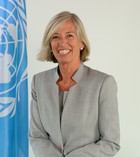
Area Politica internazionale
Competenze: diplomazia culturale, diplomazia scientifica, educazione in situazioni di emergenza, post crisi e conflitti, educazione per la pace e lo sviluppo, eguaglianza di genere per lo sviluppo, intelligenza artificiale, linguistica, politiche e pianificazione dell’educazione, prevenzione della violenza e dell’estremismo attraverso l’educazione, la cultura e la scienza, sociolinguistica, sviluppo sostenibile
Parole chiave: cooperazione internazionale, educazione, educazione di qualità e inclusiva, incitazione all’odio e estremismo violento che favorisce il terrorismo, inclusione, istruzione superiore e ricerca, migrazioni, Obiettivo per lo Sviluppo Sostenibile 4 (SDG4), rifugiati, uguaglianza di genere
Regione: ESTERO
Funzione/Ruolo
Vice Direttrice Generale dell’UNESCO per l’Educazione.
Percorso professionale
Stefania Giannini è stata nominata dall'UNESCO Vice Direttrice Generale per l’Educazione nel maggio del 2018, divenendo la massima autorità nel Sistema delle Nazioni Unite nell’ambito dell’Educazione. In tale ambito, ha il compito di definire la visione strategica e la leadership del Settore dell’Educazione dell’UNESCO a livello globale. E’ responsabile, in tale ruolo, del coordinamento e del monitoraggio nell’attuazione dell’Obiettivo 4 per lo Sviluppo Sostenibile (Quality Education) nell’ambito dell’Agenda 2030.
Precedentemente la Prof.ssa Giannini è stata eletta Senatrice della Repubblica Italiana nella XVII legislatura (2013 – 2018) e Ministra dell’Istruzione, delle Università e della Ricerca (2014 – 2016).
Nello stesso periodo, ha presieduto i Consigli dell’Istruzione e Competitività dell’Unione Europea durante il semestre di Presidenza Italiana (luglio– dicembre 2014), promuovendo il ruolo della creatività, del patrimonio culturale e dell’innovazione come strumenti di dialogo e cooperazione internazionale, con un particolare riferimento alla prevenzione dei fenomeni di radicalizzazione e di estremismo.
Con un background accademico in ambito umanistico (Laurea in Filologia Classica e PhD in Linguistica), Stefania Giannini è Professoressa di Linguistica Generale dal 1992 ed è stata eletta Rettrice dell’Università per Stranieri di Perugia per due mandati consecutivi (2004 – 2012), essendo la più giovane ed una delle prime donne a raggiungere tale ruolo nella storia della Repubblica italiana.
In tale ambito, è stata membro del Comitato di Selezione del Programma Erasmus Mundus presso la Commissione Europea (2005 – 2009), ed ha esercitato il ruolo di responsabile delle relazioni internazionali nella Conferenza dei Rettori delle Università Italiane (2006 – 2010) e membro della Commissione Nazionale per la Promozione della Cultura Italiana all’estero presso il Ministero degli Affari Esteri italiano (2006 – 2011).
Risultati scientifici
Stefania Giannini ha dedicato la sua carriera alla promozione dell'istruzione come diritto umano fondamentale, attraverso l'importanza del linguaggio, dell'apprendimento permanente, della cultura, della libertà di espressione e di identità, nel tentativo di garantire società più inclusive ed uguali.
Giannini ha coordinato una serie di importanti progetti internazionali nel campo dell'istruzione superiore e della ricerca, contribuendo al miglioramento della cooperazione universitaria tra l'Europa e molti altri paesi, dagli Stati Uniti ai paesi dell'Asia fino al Medio Oriente e al Nord Africa.
Nel suo ruolo di senatrice della Repubblica italiana e ministra dell'Istruzione, dell'Università e della ricerca, Giannini ha sviluppato e attuato una riforma strutturale del sistema educativo italiano, incentrata sull'inclusione sociale e mirata alla consapevolezza culturale.
Attività editoriali e pubblicazioni
Stefania Giannini ha all'attivo oltre 50 pubblicazioni, fra monografie e articoli su riviste di settore specializzate nazionali e internazionali.
Pubblicazioni recenti:
[2019] Giannini S., (a cura e prefazione di) Human Learning in the Digital Era, UNESCO.
[2019] Giannini S., Right to education handbook, UNESCO.
[2019] Giannini S., (a cura e prefazione di) UNESCO ICT Competency Framework for Teachers, UNESCO.
[2018] Giannini S., (a cura e prefazione di) Behind the numbers: ending school violence and bullying, UNESCO.
[2018] Giannini S., (a cura e prefazione di) Guidebook on education for sustainable development for educators: effective teaching and learning in teacher education institutions in Africa, UNESCO.
Riconoscimenti e premi
Grand’Ufficiale al Merito della Repubblica Italiana.
Honorary Professor at Bejing Beiwei University.

Funzione/Ruolo
Direttrice Scientifica dell’Osservatorio Turchia -CeSPI
Percorso professionale
Ha studiato a Milano presso l'Università Cattolica del Sacro Cuore, dove si è laureata in Scienze Politiche e Relazioni Internazionali con il massimo dei voti e dove ha conseguito una laurea summa cum laude in Relazioni Internazionali e Integrazione Europea. Presso l'Università Cattolica di Milano ha conseguito anche il dottorato di Ricerca in Istituzioni e Politiche con una tesi su "AKP (Adalet ve Kalkınma Partisi) e il suo programma di Democrazia Conservativa". È attiva in Turchia sin dal marzo 2009 come ricercatrice e docente. Ha lavorato come Docente di Relazioni Internazionali presso l’Università dell’Associazione dell’Aereonautica Turca ad Ankara, presso il Dipartimento di Scienze Politiche e Relazioni Internazionali dell’Università Sabahattin Zaim a Istanbul e come visiting scholar presso l'Università Yildirim Beyazit di Ankara, presiedendo il corso sul processo di democratizzazione nei Paesi musulmani, e Università Gazikent a Gaziantep. In precedenza è stata visiting researcher presso il Dipartimento di Relazioni Internazionali dell'Università Boaziçi di Istanbul, e ad Ankara ha collaborato con il Centro di studi europei dell'Università di Ankara (ATAUM) e presso il Centro di studi europei dell'Università tecnica del Medio Oriente (CES). In qualità di esperta di Turchia, collabora con Think Tanks e partecipa a riunioni strategiche di alto livello È autrice di numerose analisi e articoli che ha presentato a livello internazionali. Tra le altre cose, è coordinatrice scientifica di EİEAD (European Institute of Eurasian Dialogue), membro del comitato editoriale di Mondo Operaio, giornale di politica e società e membro del comitato scientifico di ReaCT (Osservatorio Nazionale sul Radicalismo e il Contrasto al Terrorismo. Dal 2018 collabora regolarmente su questioni di rilevanza internazionale come op-ed per il quotidiano turco Daily Sabah e come analista per la piattaforma digitale The New Turkey. Dal 2019 è Direttrice scientifica dell'Osservatorio Turchia- CeSPI. Per la sua oggettività analitica e il suo impegno a sostegno della diplomazia italiana in Turchia, nel 2017 è stata insignita del titolo Cavaliere dell'Ordine della Stella d'Italia dalla Presidenza della Repubblica Italiana.
Risultati scientifici
Dal 2009 si occupa di Turchia e contemporanee dinamiche politiche. Ha studiato dall’İnterno il fenomeno AKP e i processi di normalizzazione e trasformazione della politica turca culminate con l’avvio del presidenzialismo esecutivo nel giugno 2018. Nello specifico i suoi interessi di ricerca riguardano la transizione democratica turca all'interno della politica turca contemporanea, le relazioni Turchia-UE, la politica estera turca e le relazioni tra religione e politica. Tiene regolarmente lezioni e seminari su relazioni İnternazionali e Turchia presso Università e Centri Studi. Partecipa a Convegni e conferenze e come esperta è chiamata a dare il suo contributo a emittenti radio- televisive e testate giornalistiche. È autrice di analisi e commentari pubblicati in diverse riviste geopolitiche.
Attività editoriali e pubblicazioni
[2020] Giannotta V. and Andrea Locatelli, Tra il califfo e il sultano: la guerra allo Stato Islamico, il contributo dei curdi e il ruolo della Turchia, in D. Fiammenghi (ed),L’evoluzione del terrorismo islamico. Dalle Primavere Arabe al ritiro americano dalla Siria (2011-2020), Edizioni Epoke’, 2020, ISBN 978-88-31327-07-7
[2020] Giannotta V., NATO and Turkey: a fluctuating relationship, in M. Testoni (ed), NATO and Transatlantic Relations in the 21st Century: Foreign and Security Policy Perspectives", Routledge, December 2020, ISBN9781003045434
[2019] Il partito AKP: tra conservatorismo e riformismo, Rivista di Politica, 02/2019, ISSN: 2037-495X
[2018] Giannotta V., Trump, il Mediorente e la Turchia, in Quarenghi A. (ed.),Trump e l'ordine internazionale. Continuità e discontinuità nella politica estera statunitense del XXI secolo, Egea, 2018.
[2018] Giannotta V., Erdoğan e il suo Partito. AKP tra riformismo e conservatorismo, Castelvecchi, 2018.
[2016] Giannotta V., Narratives of the Past and Cultural Heritage in Turkish Party Politics: from Republican Political Myth to Conservative Counter- revolution, in Raudvere, C. (ed.), Contested Memories and the Demands of the Past: History Cultures in the Modern Muslim World,Routledge, London, 2016.
[2015] Giannotta V., Il partito della Nazione,in Mondoperaio, ottobre 2015.
[2014] Giannotta V., La Turchia e l’Azerbaijan(Turkey and Azerbaijan), in Locatelli, A. e Carati, A. Le Relazioni İnternazionali Dell’Azerbaijan,Sandro Teti ed., Roma.
[2013] Giannotta V., La Turchia dopo la primavera Araba (Turkey after the Arab Spring), in Locatelli A., e Parsi, V. E. (ed.),L’onda lunga delle Primavere arabe,Vita e Pensiero, Milano.
[2013] Giannotta V., European Paradox, Cypriot anathema, in Rivista della Cooperazione Giuridica Internazionale (İnternational Cooperation Law Review), XXV, 43.
[2013] Giannotta V., AKP as Social and Political Center, in ISZU, journal of Social Sciences, spring issue, 2013.
Riconoscimenti e premi
"Cavaliere dell'Ordine della Stella d'Italia", insignita nel 2017 dalla Presidenza della Repubblica Italiana per l'obiettività delle analisi e delle attività a sostegno della diplomazia italiana e gli sforzi per costruire un ponte culturale tra l'Italia e la Turchia.
Il libro Erdoğan e il suo partito. AKP tra Riformismo e conservatorismo ha ricevuto il Premio Speciale Cerruglio 2019 per la saggistica contemporanea.
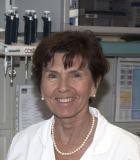
Area STEM: Scienze biomediche e biotecnologie
Competenze: biologia oncologica, farmacologia, ricerca traslazionale
Parole chiave: adenocarcinoma pancreatico, angiogenesi, cancro, coronavirus, Covid-19, farmaci antitumorali, metabolismo, metastasi tumorali, microambiente, tumore ovarico
Regione: Lombardia
Funzione/Ruolo
Dirigente del Laboratorio di Biologia e Terapia delle Metastasi Tumorali dell'IRCCS Mario Negri
Percorso professionale
Dopo la laurea in Scienze Biologiche all'Università degli studi di Milano nel 1979, Raffaella Giavazzi ottiene l'abilitazione all'esercizio della professione di biologa. Prosegue gli studi con un dottorato di ricerca in Biologia e Farmacologia, presso la Post-graduate School of Professional Education all'Istituto Mario Negri, e la specialità in Farmacologia all'Università degli studi di Milano. Dopo diverse esperienze all'estero, sia come ricercatrice al Cancer Metastasis and Treatment Laboratory del National Cancer Institute, in Maryland, sia come assistente alla docenza universitaria al Department of Cell Biology dell'M.D. Anderson Hospital and Tumor Institute, Università del Texas, ritorna in Italia. Dal 1986 è a capo del Laboratorio di Biologia e Terapia delle Metastasi Tumorali dell'Istituto di Ricerche Farmacologiche Mario Negri. Dal 2005 al 2007 è Presidente della Società Italiana di Cancerologia e dal 2008 al 2012 è componente del Comitato Esecutivo dell'Associazione Europea per la Ricerca sul Cancro. Dallo stesso anno fa parte del Consiglio di Amministrazione dell'Università di Trento.
Risultati scientifici
Raffaella Giavazzi ha sempre coltivato l'interesse scientifico per la biologia e farmacologia dei tumori. Nello specifico, si occupa dello studio del processo di creazione delle metastasi tumorali e dell'angiogenesi (moltiplicazione dei vasi sanguigni). Assieme al suo team del laboratorio di biologia e terapia delle metastasi, si occupa di valutazione pre-clinica e sperimentazione clinica di nuovi farmaci antitumorali, con particolare attenzione verso terapie per il carcinoma ovarico e il carcinoma pancreatico.
Attività editoriali e pubblicazioni
È autrice di più di 200 pubblicazioni, tra cui:
(2018) Resovi A, Bani MR, Porcu L, Anastasia A, Minoli L, Allavena P, Cappello P, Novelli F, Scarpa A, Morandi E, Falanga A, Torri V, Taraboletti G, Belotti D, Giavazzi R. Soluble stroma-related biomarkers of pancreatic cancer. Embo Molecular Medicine, 10(8), pii: e8741, doi: 10.15252/emmm.201708741.
(2016) Cesca M, Morosi L, Berndt A, Fuso Nerini I, Frapolli R, Richter P, Decio A, Dirsch O, Micotti E, Giordano S, D’Incalci M, Davoli E, Zucchetti M, Giavazzi R. Bevacizumab-induced inhibition of angiogenesis promotes a more homogeneous intratumoral distribution of paclitaxel, improving the antitumor response. Molecular Cancer Therapeutics,15(1):125-35.
(2014) Ricci R, Bizzaro F, Cesca M, Guffanti F, Ganzinelli M, Decio A, Ghilardi C, Perego P, Fruscio R, Buda A, Milani R, Ostano P, Chiorino G, Bani MR, Damia G, Giavazzi R. A platform of patient-derived tumor xenografts (EOC-xenografts) to recapitulate the clinicopathology and genetic alterations of ovarian cancer. Cancer Research, 74(23):6980-90.
(2013) Rovida A, Castiglioni V, Decio A, Scarlato V, Scanziani E, Giavazzi R, Cesca M. Chemotherapy counteracts metastatic dissemination induced by antiangiogenic treatment in mice. Molecular Cancer Therapeutics, 12(10):2237-47.
(2012) Moschetta M, Pretto F, Berndt A, Galler K, Richter P, Bassi A, Oliva P, Micotti E, Valbusa G, Schwager K, Kaspar M, Trachsel E, Kosmehl H, Bani MR, Neri D, Giavazzi R. Paclitaxel enhances the therapeutic efficacy of the F8-IL2 immunocytokine to EDA-fibronectin positive metastatic human melanoma xenografts. Cancer Research, 72(7):1814-24.
(2007) Giavazzi R, Bani MR, Taraboletti G. Tumor-host interaction in the optimization of paclitaxel based combination therapies with vascular targeting compounds. Cancer Metastasis Reviews, 26:481-88.
(2005) Rybak JN, Ettorre A, Kaissling B, Giavazzi R, Neri D, Elia G. In vivo protein biotinylation for identification of organ-specific antigens accessible from the vasculature. Nature Methods, 2(4):291-98.
(2003) Belotti D, Paganoni P, Manenti L, Garofalo A, Marchini S, Taraboletti G, Giavazzi R. Matrix Metalloproteinases (MMP9 and MMP2) Induce the Release of Vascular Endothelial Growth Factor (VEGF) by Ovarian Carcinoma Cells: Implications for Acites Formation. Cancer Research, 63:5224-29.
(1998) Valoti G, Nicoletti MI, Pellegrino A, Jimeno J, Hendriks H, D'Incalci M, Faircloth G, Giavazzi R. Ecteinascidin-743 (ET-743), a new marine natural product with potent antitumor activity on human ovarian carcinoma xenografts. Clinical Cancer Research, 4:1977-1983.
(1995) Taraboletti G, Garofalo A, Belotti D, Drudis T, Borsotti P, Scanziani E, Brown PD, Giavazzi R. Inhibition of angiogenesis and murine hemangioma growth by Batimastat, a synthetic inhibitor of matrix metalloproteinases. Journal of the National Cancer Instistute, 87:293-298.
(1993) Giavazzi R, Foppolo M, Dossi R, Remuzzi A. Rolling and adhesion of human tumor cells on vascular endothelium under physiological flow conditions. The Journal of Clinical Investigation, 92:3038-3044.
Riconoscimenti e premi
Raffaella Giavazzi ottiene nel 1981 il premio “Fellowship for Advanced Professional Training” dal Ministero italiano del Lavoro e dalla Comunità Economica Europea.
Nel 2003 vince il premio dalla “Lega Italiana per la lotta contro i tumori” per la carriera di ricerca.
Nel 2012 riceve il riconoscimento “Giorgio Prodi” dalla Società Italiana di Cancerologia.
Nel 2016 viene annoverata fra le "Top Italian Women Scientists".
Nel 2018 riceve il premio alla carriera “5th Simon Karpatkin Memorial Lecture”.
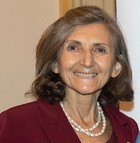
Sport
Competenze: comunicazione sportiva, leadership sportiva, management dello sport, sci, sport di montagna, sport e giovani, sport invernali, storia dello sport, turismo sportivo, uguaglianza di genere
Parole chiave: CONI (Comitato Olimpico Nazionale Italiano), corsi di formazione in ambito sportivo, donne e sport, giochi olimpici, Milano Cortina 2026, Olimpiadi, Parigi 2024, valori olimpici
Regione: Lombardia
Funzione/Ruolo
Ex atleta, campionessa olimpica di sci nordico. Vicepresidente del CONI (Comitato Olimpico Nazionale Italiano) e Delegata Milano Città Metropolitana.
Percorso professionale
Sciatrice alpina, atleta azzurra fino al 1981, vince la medaglia d’argento alle Olimpiadi di Innsbruck nel 1976. Il suo palmares include 14 titoli nazionali, la medaglia d’oro alle Universiadi di Jaca nel 1981.
Maestra di sci alpino dal 1976 e Giudice nazionale e internazionale dal 1981, dopo la carriera agonistica è imprenditrice e consulente in ambito Comunicazione. Si occupa di relazioni pubbliche e con i media, segue e opera a favore di eventi sportivi internazionali, per istituzioni, aziende, organizzazioni, sviluppando progettualità rivolte a diversi pubblici di riferimento. Fino ad oggi ha raccolto esperienze in diversi ruoli in 26 edizioni dei Giochi Olimpici estivi e invernali.
Dirigente sportiva dal 2010 e Socia Fondatrice dell’Associazione Dirigenti SML Sport Management Leadership. Traduttrice e docente in Master Universitari e Scuola dello Sport CONI. Volontaria Cesvi. Dal 2018 è Vicepresidente del Comitato provinciale Milano, Lodi, Monza Brianza della FISI (Federazione Italiana Sport Invernali). Dal 2021 è Vicepresidente del CONI e Delegata Milano città metropolitana dal 2013.
Attività editoriali e pubblicazioni
Claudia Giordani è autrice del libro dedicato alla memoria del padre: Quando il basket era il Jordan. Aldo Giordani vent'anni dopo, Libreria dello Sport 2013.
Riconoscimenti e premi
1977, Cavaliere Ordine al merito sportivo della Repubblica Italiana.
2013, Stella di bronzo al merito sportivo.
2021, Stella d'oro al merito sportivo.

Area Politica internazionale
Competenze: economia e politica internazionale, economia europea, politiche di sviluppo
Parole chiave: Africa sub sahariana, Brexit, catene globali del valore, Cina, coronavirus, Covid-19, Covid-19 e imprese italiane, Covid-19 e Mediterraneo, Covid-19: impatto socio-economico, Covid-19: impatto sulle catene globali del valore, Covid-19: manifattura e servizi, Crisi finanziaria e crisi Covid-19: differenze, Europa, Medio Oriente e Nord Africa, paesi emergenti, produttività, protezione sociale, sviluppo economico, via della seta
Regione: Toscana
Funzione/Ruolo
Professoressa ordinaria di Economia Politica e pro rettrice per le relazioni internazionali all'Università di Firenze
Percorso professionale
Giorgia Giovannetti è prorettrice per le relazioni internazionali e professoressa ordinaria di economia presso l'Università di Firenze, visiting professor presso l'Istituto Universitario Europeo (EUI) e New York University- sede di Firenze, e membro del "consiglio di Reggenza" della Banca d'Italia-Firenze. È stata la direttrice scientifica del primo e secondo Rapporto Europeo sullo sviluppo (ERD 2009 e 2010); ha diretto l’Ufficio studi dell'Istituto italiano del commercio-ICE (2005-2007). Ha un dottorato in economia a Cambridge-UK e una laurea con lode in Statistica a Roma-Sapienza. È stata fellow del Trinity College di Cambridge (1990-1995) e visiting professor in diverse università (Università Pompeu Fabra -UPF, Hoover Institution- Stanford, Universitat Torcuato de Tella). È (o è stata) nei comitati di redazione di IEMed Mediterranean Yearbook, dal 2010; Rapporto Commercio Estero, ICE, dal 2004; Economia Italiana, Journal of Unicredit, 2011-2014; Fondazione Manlio Masi, dal 2007, Italian Economic Journal, dal 2017. Ha pubblicato su importanti riviste accademiche e presentato nelle principali conferenze internazionali. È stata consulente del Ministero degli Affari Esteri e della Cooperazione Internazionale, Ministero dell’Economia e Finanza, Ministero del Commercio Estero, Commissione Europea, Banca Mondiale, Global Development Center. È fellow del centro studi Luca D’Agliano e della Fondazione Ferdi.
Risultati scientifici
L’attività di ricerca di Giorgia Giovannetti si svolge nel campo dell’economia internazionale e economia dello sviluppo. Giovannetti si è dedicata a studiare la produttività e competitività delle imprese sia nei paesi industriali (con particolare attenzione all’Italia) che nei paesi in via di sviluppo. Ha studiato in particolare come la partecipazione alle catene globali del valore influenzi la produttività delle imprese e al tempo stesso la possibilità di un paese di cogliere opportunità di sviluppo. Ha inoltre studiato l’economia della Cina sia per capire se ed eventualmente in che misura le esportazioni cinesi “spiazzano” quelle italiane e tedesche e quelle dei paesi africani, sia per individuare le motivazioni dietro gli investimenti cinesi lungo la via della seta. Nel tempo si è occupata di politiche economiche europee e di Brexit e di problemi di paesi africani in condizioni di fragilità e conflitto nonché del ruolo della protezione sociale in paesi in via di sviluppo.
Attività editoriali e pubblicazioni
[2018] Giovannetti, G., The Dynamics of Foreign Direct Investments in Land and Pollution Accumulation, Environmental and Resource Economics with Borghesi, S., Iannucci GL and Russo.
[2018] Giovannetti, G., The Role of Trade and Offshoring in the Determination of Relative Wages and Child Labour, in The Journal of International Trade & Economic Development RJTE Global, with S. Cigno and L. Sabani, volume 27, number 3.
[2017] Giovannetti, G., Del Prete, D., Marvasi, E., Global Value Chains: new evidence for North Africa, International Economics, November 2017, Volume 153, Issue 4, pp 675–701.
[2017] Giovannetti, G., MArvasi, E., Governance, value chain positioning and firms' heterogeneous performance: The case of Tuscany, International Economics, 2017.
[2017] Giovannetti, G., Del Prete, D., Marvasi, E., Value Chains Participation and Productivity Gains for North African Firms, Review of World Economy.
[2017] Giovannetti, G., Ricchiuti, G., Velucchi, M., Size and technology: The Odd Couple for affiliates survival, in Structural Change and Economic Dynamics, Volume 40, March 2017, Pages 64-71.
[2016] Giovannetti, G., Ticci, E., Determinants of biofuel-oriented land acquisitions in Sub-Saharan Africa, in Renewable & Sustainable Energy Reviews.
[2016] Giovannetti, G., Marvasi, E., Food Exporters in Global Value Chains, in Food Policy, 2016.
[2016] Giovannetti, G., Sanfilippo, M., China’s competition and the export price strategies of developed countries, in International Review of Applied Economics, 2016, volume 30, number 2.
[2015] Giovannetti, G., Sanfilippo, M., Marvasi, E., Supply chains and the internationalization of small firms, in Small Business Economics.
[2013] Giovannetti, G., Ricchiuti, G., Velucchi, M., Location, Internationalization and Performance of Firms in Italy: a Multilevel Approach, in Applied Economics, 2013, volume 45, issue 18.
[2013] Giovannetti, G., Cuffaro, N., Monni, S., Foreign Acquisitions of Land in Developing Countries. Risks, Opportunities and New Actors , in QA – Rivista dell’Associazione Rossi-Doria, n. 2, 2013.

Funzione/Ruolo
Direttrice del Laboratorio di Microbiologica clinica, Virologia e Bio-emergenza dell'Ospedale Sacco di Milano e Professoressa Associata di Microbiologia Clinica al Dipartimento di Scienze Biomediche e Cliniche "Sacco" dell'Università degli Studi di Milano.
Percorso professionale
Dopo aver conseguito la laurea in Scienze Biologiche presso l'Università di Catania nel 1976, prosegue la sua formazione specializzandosi in Microbiologia clinica e Virologia. Nel 1984 consegue una seconda laurea in Medicina e Chirurgia presso la medesima università siciliana. Dal 1976 al 1981 fa parte dell'Istituto di Microbiologia dell'Università di Milano. Nel 1982 è interna in Microbiologia clinica presso il London Hospital e in Microbiologia orale presso l'Hospital Medical School For Dentistry di Londra. Nell'86 è interna in Microbiologia all'Università del Tennessee. Dal 1991 ad oggi è professoressa associata in Microbiologia clinica presso l'Università degli Studi di Milano. È a capo di numerosi gruppi di ricerca che si occupano di bioterorrismo, della SARS, di Ebola e di emergenze infettive. È inoltre componente della commissione nazionale sull'Aids dal 2007. Dal 2014 ad oggi è responsabile del laboratorio di Microbiologica clinica, Virologia e Bioemergenza dell'Ospedale Sacco di Milano.
Risultati scientifici
Nell'ambito dell'UOC (Unità operativa complessa) Microbiologia Clinica e Virologia , Maria Rita Gismondo ha implementato il settore "bioemergenza" composto da un laboratorio BSL3 (Bio safety level 3) ed un laboratorio BSL4 (uno dei due esistenti in Italia) dedicati alle gravi crisi sanitarie. Gismondo ha riunito intorno a sé un gruppo di ricerca e operativo con l'obiettivo di fornire una risposta rapida alle emergenze infettive, sia di origine naturale (pandemie), che volontarie (bioterrorismo). Il laboratorio da lei diretto è oggi il punto di riferimento per la diagnostica di malattie tropicali, per i rischi da antrace e per quelli legati ad altri elementi potenzialmente infettivi.
Attività editoriali e pubblicazioni
Maria Rita Gismondo è editrice associata di numerose riviste scientifiche, oltre che autrice di numerosi articoli, tra cui:
(2016) Rimoldi SG, De Vecchi E, Pagani C, Antona C, Gismondo MR. Use of Dithiothreitol to Dislodge Bacteria From the Biofilm on an Aortic Valve in the Operating Theatre: A Case of Infective Endocarditis Caused by Staphylococcus aureus and Proteus mirabilis. The Annals of thoracic surgery, 102(4):e357-9.
(2016) Rossotti R, Borghi V, Callegaro AP, Rusconi S, Gismondo MR. Impact of Circulating Resistance-Associated Mutations on HIV Pre-Exposure Prophylaxis (PrEP) efficacy: Modeling from Antiretroviral Resistance Cohort Analysis (ARCA) National Database.Journal of clinical virology: the official publication of the Pan American Society for Clinical Virology.
(2016) Cagnoni G, Rimoldi SG, Pagani C, Gismondo MR. Can Drainage Using a Negative-Pressure Wound Therapy Device Replace Traditional Sample Collection Methods?. Surgical Infections, 17(5):577-82.
(2016) Caruso I, Santandrea S, Gismondo MR, Sarzi Puttini P. Vaccination with endosomal unknown epitopes produces therapeutic response in rheumatoid arthritis patients and modulates adjuvant arthritis of rats. Journal of Translational Medicine, 14:162.
(2015) Ridolfo AL, Sara Giordana Rimoldi SG, Pagani C, Gismondo MR. Diffusion and transmission of carbapenem-resistant Klebsiella pneumoniae in the medical and surgical wards of a university hospital in Milan, Italy. Journal of Infection and Public Health, 9(1):24-33.
(2015) D'Alessandro S, Corbett Y, Ilboudo DP, Parapini S, Gismondo MR. Salinomycin and Other Ionophores as a New Class of Antimalarial Drugs with Transmission-Blocking Activity. Antimicrobial Agents and Chemotherapy, 59(9):5135-44.
(2015) Vocale C, Rimoldi SG, Pagani C, Sambri V, Gismondo MR. Comparative evaluation of the new xTAG GPP multiplex assay in the laboratory diagnosis of acute gastroenteritis. Clinical assessment and potential application from a multicentre Italian study. International Journal of Infectious Diseases, 34:33-7.
(2014) Perrone V, Cattaneo D, Radice S, Clementi E, Gismondo MR. Impact of therapeutic drug monitoring of antiretroviral drugs in routine clinical management of patients infected with human immunodeficiency virus and related health care costs: A real-life study in a large cohort of patients. ClinicoEconomics and Outcomes Research, 6:341-8.
(2013) Tau P, Mancon A, Mileto D, Rusconi S, Gismondo MR. Favorable Therapeutic Response with an Antiretroviral Salvage Regimen in an HIV-1-Positive Subject Infected with a CRF11-cpx Virus.AIDS research and human retroviruses, 30(5):480-3.
(2013) de Luca A, Dunn D, Zazzi M, Sloot, PM, Gismondo MR. Declining Prevalence of HIV-1 Drug Resistance in Antiretroviral Treatment-exposed Individuals in Western Europe.The Journal of Infectious Diseases, 207(8):1216-20.
Riconoscimenti e premi
Nel 2005 riceve l'Ambrogino d'Oro in qualità di direttrice del Laboratorio di Microbiologia Clinica del Polo Universitario Azienda Ospedaliera "L. Sacco" di Milano.
Nel 2007 è stata insignita del Woman of Achievement 2007.
Nel 2009, le è stato conferito il Premio "Rosa Camuna" da parte della Regione Lombardia.
E' stata inoltre nominata rappresentante del Ministero dell'Università nel Consiglio di amministrazione della Fondazione Smith Kline.
In memoria del collega microbiologo norvegese Tom Bergan, ha fondato il Centro Studi Tom Bergan, impegnato nella promozione di iniziative culturali scientifiche, tra cui "Donna in Salute" e lo "Sportello Unico per gli anziani".
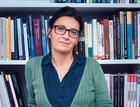
Funzione/Ruolo
Professoressa ordinaria di Economia e Gestione delle Imprese all’ Università di Pisa. Membro del Comitato di Coordinamento, Dottorato Nazionale in Sviluppo Sostenibile e Cambiamento Climatico, all'Istituto Universitario di Studi Superiori (IUSS) di Pavia.
Percorso professionale
Dopo la laurea, nel 2003 consegue un dottorato di ricerca in discipline economico-aziendali presso presso l’Università di Pisa, e nel 2005 un Ph.D. in Science and Technology Policy presso il centro di ricerca SPRU dell’Università del Sussex (UK). Nel 2004 è Jean Monnet Fellow presso l’European University Institute nel 2004, e nel 2005-2006 ESRC Post-Doctoral Fellow presso lo SPRU. Nel 2006 è Ricercatrice presso l’Università di Pisa, dove diviene Professoressa Ordinaria dal 2016, anno in cui fonda il centro di ricerca REMARC -Responsible Management Research Center di cui è direttrice. E’ stata Visiting Professor presso l’Università di Lund (2016), il MIT Sloan School of Management (2017-2018) e l’ Università Bocconi (2019-2020).
Risultati scientifici
L’attività di ricerca di Elisa Giuliani si svolge a cavallo tra l’economia di impresa e lo sviluppo sostenibile. E’ interessata a capire come l’attività di impresa impatta sulla società ed i sistemi economici in cui opera. Un filone di ricerca riguarda l’economia dell’innovazione e il catching up tecnologico delle imprese in paesi in via di sviluppo, a la ricerca svolta in questo ambito ha riguardato i distretti industriali, le imprese multinazionali, e le catene globali del valore. Ultimamente si è interessata agli impatti dell’innovazione tecnologica sulla società e l’ambiente, lavorando ad un progetto per la misurazione della tossicità potenziale delle invenzioni, utilizzando metodologie di chimica computazionale per predire il contenuto tossico dei brevetti industriali. Un secondo e più recente ambito di interesse concerne l’impresa, i diritti umani e la responsabilità sociale di impresa. La sua ricerca in questo ambito è orientata a misurare e studiare le cause del wrongdoing organizzativo. E’ stata Principal Investigator (PI) di progetti nazionali ed internazionali, ed è attualmente PI di un Horizon Europe sul tema impresa e democrazia.
Attività editoriali e pubblicazioni
Elisa Giuliani è editrice della rivista Research Policy e membro del comitato editoriale delle riviste: Journal of Economic Geography, Economic Geography e Business and Human Rights Journal.
E' autrice di numerose pubblicazioni, tra cui:
(2022) Balland P.A., Broekel T., Diodato D., Giuliani E., Hausmann R., O’Clery N., Rigby D. The New Paradigm of Economic Complexity, Research Policy, 51 (3), 104450.
(2022) Biggi G., Giuliani E., Martinelli A., Benfenati E. Patent Toxicity, Research Policy, 51 (1), 104329.
(2021) Giuliani E., Jaqueminet A., Nieri F. Bringing Light to Dark Spots: The Case of Cross-border Bioprospecting, in Castellani D., Perri A., Scalera V., Zanfei A. (eds.), Cross-Border Innovation in a Changing World, Oxford University Press.
(2019) Wettstein F., Giuliani E., Santangelo G., Stahl G. International Business and Human Rights: A research agenda, Journal of World Business, 54 (1): 54-65.
(2019) Giuliani E., Balland P.A., Matta A. Straining but not thriving: Understanding network dynamics in underperforming industrial clusters, Journal of Economic Geography, 19 (1): 147-172.
(2018) Amendolagine V., Giuliani E., Martinelli A., Rabellotti R. Chinese and Indian MNEs’ shopping sprees in advanced countries. How good is it for their innovation output? Journal of Economic Geography, 18 (5): 1149–1176.
(2017) Giuliani E. Ciravegna L. Vezzulli A., Kilian B. Decoupling standards from practice: The impact of in-house certifications on coffee farms’ environmental and social conduct, World Development, 96: 294–314.
(2017) Fiaschi D., Giuliani E., Nieri F. Overcoming the liability of origin by doing no harm. Assessing emerging country firms’ social irresponsibility as they go global, Journal of World Business, 52 (4): 546- 563.
(2014) Giuliani E., Macchi C. Multinational Corporations' Economic and Human Rights Impacts on Developing Countries: A Review and Research Agenda, Cambridge Journal of Economics, 38 (2): 479-517.
(2013) Giuliani E. Network dynamics in regional clusters: Evidence from Chile, Research Policy, 42 (8): 1406-1419.
(2005) Giuliani E., Pietrobelli C., Rabellotti R. Upgrading in global value chains: Lessons from Latin American clusters. World Development 33(4): 549-573.
(2005) Giuliani E., Bell M. The micro-determinants of meso-level learning and innovation: evidence from a Chilean wine cluster. Research Policy 34(1): 47-68.
Riconoscimenti e premi
Elisa Giuliani è Fellow della Regional Studies Association (RSA), ha ricevuto il RSA MERSA Award nel 2017, e ha ricevuto diversi premi per la sua produzione scientifica (es. 2020 Highly Commended Paper Emerald Literati Awards; 2014 Danny van den Bulcke Prize for Best Paper- European Academy of International Business; 2005 The Druid Young Scholar Best Paper Award - Copenhagen Business School). E’ stata invitata a tenere keynote lectures a diverse conferenze, tra cui RSAI-GSSI nel 2021; Druid Academy nel 2017; European Meeting of Applied Evolutionary Economics, MERIT a Maastricht nel 2015, tra gli altri.
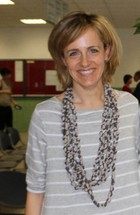
Funzione/Ruolo
Professoressa associata in Storia e istituzioni dei Paesi Islamici all'Università degli Studi di Milano
Percorso professionale
Si forma in Studi islamici con un Master e in Storia con un dottorato presso l’Università di Cambridge. Dal 1994 al 2001 lavora in Giordania, Italia e in diversi Paesi asiatici nel settore della cooperazione allo sviluppo. Nel 2002 diventa ricercatrice presso l’Università degli Studi di Milano e inizia a insegnare diversi corsi sulla storia e le istituzioni del Medio Oriente. Da allora ha insegnato anche in altri Atenei, ha svolto numerose attività di referaggio accademico e di divulgazione; nel 2013 è stata visiting scholar presso l’Università di Cambridge. Di recente ha fondato insieme ad alcune colleghe una nuova rivista on-line e partecipa da anni ai comitati di redazione e di direzione di diverse riviste accademiche (Rivista italiana di storia internazionale; Afriche & Orienti; Quaderni Asiatici; Storia delle Donne).
Risultati scientifici
Elisa Giunghi segue principalmente quattro principali filoni di ricerca. Il primo è incentrato sull’evoluzione e sull’interpretazione della shari’a in sede giudiziale, nei paesi musulmani e in Europa; il secondo riguarda le dispute confinarie tra Afghanistan e Pakistan; il terzo è il tema dell’autorità religiosa e del suo rapporto con il potere politico; il quarto il trasferimento di tecnologia militare all’Afghanistan tra la fine dell’Ottocento e gli anni ’90. Su ciascuno di questi temi ha scritto saggi e monografie e tenuto relazioni a conferenze e seminari.
Attività editoriali e pubblicazioni
Monografie
[2017] Giunchi E., Nel nome di Allah: l’autorità religiosa nell’Islam. Jouvence.
[2009] Giunchi E., Pakistan: islam, potere e democratizzazione. Carocci.
[2007] Giunchi E., Afghanistan: Storia e società nel cuore dell’Asia. Carocci.
Recenti articoli in riviste accademiche e saggi
[2019] Giunchi E., Democratization and the relevance of history: the case of Pakistan, in Nuovi autoritarismi e democrazie: diritto, istituzioni, società (NAD), 1, 1.
[2019] Giunchi E., La proliferazione di armi in Afghanistan: una prospettiva di lungo periodo, in Giunchi E. - Ponti C. (eds.), Le armi nel mondo contemporaneo: proliferazione, regimi di controllo e prospettive di disarmo, Giappichelli.
[2018] Giunchi E., Il concetto di sovranità divina nella Costituzione pakistana: uno strumento per espandere o limitare i diritti fondamentali?, in Afriche e Orienti, XX, 1-2.
[2015] Giunchi E., Jihadists, the web and the issue of religious authority, in L. Tomè (ed.), Islamic state. The new global jihadist phenomenon.
[2014] Giunchi E.,Muslim Family Law and Legal Practice in the West: An Introduction, in Giunchi E., (ed.), Muslim family law in Western courts, Routledge.
[2013] Giunchi E.,Islamization and judicial activism in Pakistan: what šarīʻah?, Oriente Moderno, 93, 1.
[2013] Giunchi E., The Durand Line: an historical perspective, Internationales Asienform, 44, 1-2.
[2011] Giunchi E, Democratic Transition and Social Spending: the case of Pakistan in the 1990s, Democratization, 18, 6.
[2010] Giunchi E., The reinvention of the sharī‘a under the British Raj: In search for authenticity and certainty,Journal of Asian Studies, 68, 4.
Riconoscimenti e premi
Nel 2018 ha ricevuto dall'Università degli Studi di Milano fondi premiali FABBR per la produttività scientifica.
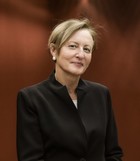
Funzione/Ruolo
Professoressa ordinaria Economia Industriale e Direttrice del Centro Ricerche Economiche e Sociali Manlio Rossi-Doria, Centro di Eccellenza, Università Roma Tre
Percorso professionale
Dopo il Dottorato in Economia dello Sviluppo presso il Centro di Ricerche Economico – Agrarie per Il Mezzogiorno, fondato da Manlio Rossi-Doria e il Master of Arts in Economia, University of Southern California, Los Angeles, dal 1995 insegna come Professoressa Associata presso l’Università della Calabria e dal 2005 come Professoressa Ordinaria, Università Roma Tre.
E’ stata visiting professor presso: Rutgers University (New Jersey); London School of Economics; New School for Social Research (New York); Duke University (North Carolina).
E’ stata membro della Commissione per l’Abilitazione Scientifica Nazionale (2012-14); Presidentessa della Società Italiana di Economia e Politica Industriale, SIEPI (2016-19).
E’ attualmente Direttrice del Centro Ricerche Economiche e Sociali Manlio Rossi-Doria, Centro di Eccellenza, Università Roma Tre.
E’ membro del Consiglio di Reggenza della Banca d’Italia, sede di Roma.
E’ membro di comitati scientifici: Centro Europa Ricerche (CER, Roma); Center for Industrial Studies (CSIL, Milano); senior fellow della School of European Political Economy (SEP, Luiss, Roma).
Membro di società scientifiche: Società Italiana di Economia (SIE); Società Italiana di Economia e Politica Industriale (SIEPI); European Trade Study Group (ETSG); Society for the Advancement of Socio-Economics (SASE).
Risultati scientifici
Studia le caratteristiche del sistema produttivo italiano con particolare riguardo agli aspetti che incidono sulla produttività delle imprese, come: Ricerca e Sviluppo; Innovazione; Digitalizzazione; Internazionalizzazione.
Riguardo quest’ultimo ambito, i suoi articoli approfondiscono il tema delle Global Value Chains (GVC). I suoi studi mettono in luce l’impatto della partecipazione e del posizionamento nelle GVC sulla produttività delle imprese, in particolare quelle italiane. Lavora anche sull’impatto dei recenti accordi commerciali dell’Unione Europea sulle imprese italiane.
Un’altra area di ricerca concerne il Pubblic Procurement per l’Innovazione. I suoi lavori analizzano il ruolo delle grandi infrastrutture di ricerca (CERN, the European Organization for Nuclear Research; ASI, Agenzia Spaziale Italiana) nell’attivare legami con le imprese industriali, favorendone i processi innovativi (brevetti) e la performance.
Si occupa di trasferimento tecnologico. I suoi lavori evidenziano quali sono le variabili che favoriscono l’interazione tra Università ed Imprese e l’impatto sull’attività innovativa delle imprese.
Ha contribuito alla creazione della Scuola di Valutazione dell’Impatto delle Politiche Pubbliche, organizzata dal Centro Rossi-Doria (Università Roma Tre), attualmente alla sua quarta edizione. La Scuola fornisce alle/ai partecipanti gli strumenti (tecniche contro-fattuali) per la valutazione dell’ efficacia delle politiche pubbliche, in particolare delle politiche industriali e regionali.
Attività editoriali e pubblicazioni
[2022] Giunta A., Montalbano P., Nenci S., Consistency of Micro- and Macro-level Data on Global Value Chains: Evidence from Selected European Countries, International Economics, 171, 130-142, https://doi.org/10.1016/j.inteco.2022.05.005,
[2022] Cainelli G., Ganau R., Giunta A., Business Groups, Institutions, and Firm Performance, Industrial and Corporate Change, vol. 31 (1), 215-233, https://doi.org/10.1093/icc/dtab046.
[2021] Vurchio D., Giunta A., The impact of the Italian Space Agency on Scientific Knowledge: Evidence from Academic Publications, Annals of Public and Cooperative Economics, https://doi.org/10.1111/apce.12331, n. 92, 511-529,
[2021] Bastianin A., Castelnovo P., Florio M., Giunta A., Big Science and Innovation: Gestation Lag from Procurement to Patents for CERN Suppliers, The Journal of Technology Transfer, https://doi.org/10.1007/s10961-021-09854-5
[2020] Cerulli G., Corsino M., Gabriele R., Giunta A., A Dose-Response Evaluation of Regional R&D Subsidies Policy, Economics of Innovation and New Technology, DOI 10.1080/10438599.2020.1792604, 2020
[2020] Giunta A., Lo shock da offerta. GVC, COVID 19 e le imprese italiane, Menabò di Etica ed Economia, n. 121, https://www.eticaeconomia.it/lo-shock-da-offerta-gvc-covid-19-e-le-imprese-italiane/
[2020] Agostino M., Brancati E., Giunta A., Scalera D., Trivieri F., Firm’s Efficiency and Global Value Chains: An Empirical Investigation on Italian Industry, The World Economy, https://doi.org/10.1111/twec.12866, 43 (4): 827-1146.
[2018] Florio M., Giffoni F., Giunta A., Sirtori E., Big Science, Learning and Innovation: Evidence from Cern Procurement, Industrial and Corporate Change, 27 (5): 915-936.
[2018] Cainelli G., Ganau R., Giunta A., Spatial Agglomeration, Global Value Chains, and Productivity. Micro-Evidence from Italy and Spain, Economic Letters, 169: 43-46.
[2018] Accetturo A., Giunta A., Value Chains and the Great Recession: Evidence from Italian and German Firms, International Economics, 153: 55-68.
[2017] Giunta A., Rossi S., Che cosa sa fare l’Italia. La nostra economia dopo la grande crisi, Roma, Laterza.
[2016] Agostino M., Giunta A., Scalera D., Trivieri F., Italian Firms in Global Value Chains: Updating our Knowledge in Manzocchi S., Ottaviano G. (edited by), Global Value Chains, Trade Networks and Firm Performance: International Evidence and the Italian Case, Rivista di Politica Economica, VII-IX, 155- 186.
[2016] Giunta A., Pericoli F., Pierucci E., University-Industry Collaboration in the Biopharmaceuticals: the Italian Case, Journal of Technology Transfer, 41: 818–840.
[2015] Agostino M., Giunta A., Nugent J., Scalera D., Trivieri F., The Importance of Being a Capable Supplier: Italian Industrial Firms in Global Value Chains, International Small Business Journal, 33 (7), 708-30.
[2012] Accetturo A., Giunta A., Rossi S., Being in a Global Value Chain: Hell or Heaven?, voxeu.org, 15 December.

Area Politica internazionale
Competenze: analisi politica estera, arte e politica, diplomazia culturale, Europa centro-orientale, musei e relazioni internazionali, politica estera del Regno Unito, politica estera europea, politica estera russa, relazioni internazionali, sicurezza
Parole chiave: coronavirus, Covid-19, Covid-19: geopolitica dei vaccini, Regno Unito, Ucraina, Unione Europea
Regione: Toscana
Funzione/Ruolo
Docente di Relazioni internazionali, Scuola Sant’Anna Pisa e Senior Associate Research Fellow, ISPI, Milano
Percorso professionale
Laureata in Scienze Politiche alla Cesare Alfieri di Firenze, ha ottenuto il Master in European Studies presso il Collegio d’Europa-Bruges nella sede di Varsavia e il dottorato di ricerca presso l’Istituto Universitario Europeo di Fiesole. Ha lavorato per la Commissione europea, Unicef-icdc ed è stata osservatrice elettorale per l’OSCE. È stata Visiting Researcher presso la Universityof Westminster London. Ha svolto attività didattica presso l’Università Cattolica di Milano, la Luiss di Roma, la New York University (sede di Firenze), Pázmány Péter Catholic University, Budapest, Kazakh Humanitarian Law University, Novosibirsk State University. Dal 2014 insegna Relazioni internazionali alla Scuola Sant’Anna di Pisa.
Risultati scientifici
Serena Giusti si occupa dei paesi dell’Europa centro orientale e della Russia soprattutto nelle loro relazioni con l’Unione europea. Ha inoltre studiato le dinamiche della politica estera e di sicurezza sia della Ue che di altri attori. Ha vinto (2017) un Jean Monnet Activities project "EU-Russia, Connecting People and Ideas Revolution, Post-Soviet Space”- 587038-EPP-1-2017-1-IT-EPPJMO-PROJECT e nel 2014 un modulo Jean Monnet: “The EU’s responses to the challenges of its Neighbourhood”, Grant Decision n.2014 2539/553495. Dal 2018 è partner del progetto guidato dall’Università di Bolzano: The use of Art in the Public Domain and the Politics of Heritage (Politage). E sempre nel 2018 ha ricevuto un finanziamento dal MAE per il progetto Le nuove sfide della protezione del patrimonio culturale: il ruolo dell’Italia come potenza culturale.
Attività editoriali e pubblicazioni
Ha pubblicato estensivamente sui temi della politica estera europea, di quella russa e sulle relazioni internazionali.
[2019] Giusti, S., Mirkina, I. (a cura di) The EU in a Trans-European Space, External Relations across Europe, Asia and the Middle East, London, Palgrave.
[2019] Giusti, S., “Russia’s Fluctuating Foreign Policy” in F. Bindi (a cura di), Europe and America- The End of the Transatlantic Relationship, The Brookings Institute, Washington, March.
[2019] Giusti, S., “From a regional hegemony to a global power in potency: the EU’s Global Strategy” in Giusti, S., Mirkina, I. (a cura di), The EU in a Trans-European Space, External Relations across Europe, Asia and the Middle East, London, Palgrave.
[2019] Giusti, S., Russo, A. "The Securitisation of Cultural Heritage", International Journal of Cultural Policy, 25(7): 843-857.
[2018] Giusti, S., Talani, L.S., (a cura di) Women in the Mediterranean, London and New York, Routledge.
[2018] Giusti, S., Lamonica, A., Foradori, P. “Reshaping Cultural Heritage Protection Policies at a Time of Securitisation: The Case of France, Italy, and the United Kingdom”, International Spectator, 5(3): 86-101.
[2017] Giusti, S., "Gender Mainstreaming towards the Mediterranean: The Case of the ENP", Journal of Balkan and Near Eastern Studies, 19(5): 524-540.
[2017]Giusti, S., Franco, C., "The Europeanization of Turkey’s Foreign Policy: from Alignment to Misalignment?", in Baracani, E., Calimli, M. (a cura di), European Perspectives on Turkey's Domestic Politics and Foreign Policy, Foundation Bruno Kessler Press, 73-94.
[2017]Giusti, S., "Russia Federation’s posture towards the European Neighbourhood Policy: A Neoclassical Realist Explanation", in Gstohl, S. and Schunz J. (a cura di), Theorizing the European Neighbourhood Policy, London and New York, Routledge, 61-82.
[2016] Giusti, S., "The EU’s transformative power challenged in Ukraine", European Foreign Affairs Review, 2(2): 165-183.
[2014]Giusti, S., Fassi, E., "The European Endowment for Democracy and Democracy Promotion in the EU Neighbourhood", The International Spectator, 49(4):112-129.
[2012] Giusti, S., La Proiezione sterna della Federazione Russa, Pisa, ETS.
Riconoscimenti e premi
Partecipa al gruppo di riflessione sulla sicurezza europea dell’OSCE. E’ vice-presidente del Forum per i Problemi della Pace e della Guerra di Firenze ed è nell’advisory board di Women International Security(WIIS) – Italia.

Funzione/Ruolo
Team leader U-Vip Unit dell'Istituto Italiano di Tecnologia (ITT) di Genova
Percorso professionale
Dopo la laurea in Psicologia all'Università di Firenze nel 2004, prosegue la sua formazione all'interno del VisionLab del CNR di Pisa. Nel 2008 dedica un anno alla ricerca presso il laboratorio VisionScience di Berkeley in California e, l'anno successivo, consegue il dottorato di ricerca in Tecnologie Umanoidi presso l'Istituto Italiano di Tecnologie dell'Università di Genova. Attualmente Monica Gori è team leader dell'Unità per le persone con disabilità visive (U-Vip Unit) dell'Istituto Italiano di Tecnologia di Genova.
Risultati scientifici
Monica Gori si occupa di sviluppo, integrazione multisensoriale, percezione sensoriale-motoria e disabilità visiva. Attraverso la sua ricerca studia come le capacità di percezione uni sensoriale e multi sensoriale interagiscono durante lo sviluppo dei bambini con e senza disabilità. L'obiettivo dello studio è quello di sfruttare questa conoscenza per comprendere meglio la funzionalità cerebrale, creare nuovi programmi di riabilitazione e sviluppare nuovi dispositivi meccatronici (che uniscono meccanica, elettronica e informatica) per aumentare le capacità senso-motorie dei bambini con disabilità sensoriali. Dal febbraio 2014 è coordinatrice del progetto europeo ABBI, il cui scopo è proprio lo sviluppo di una nuova tecnologia basata sulla riabilitazione senso-motoria per i non vedenti. Nello specifico ABBI (Audio Bracelet for Blind Interactions) prevede sia la realizzazione tecnica di un dispositivo sonoro non invasivo che stimoli la percezione spaziale dei ciechi, sia la verifica della sua efficacia su un campione di circa 150 bambini e adolescenti non vedenti. Il progetto prevede lo studio e la realizzazione di un dispositivo sonoro indossabile, simile a un braccialetto, utile anche per creare reti sonore da dislocare negli ambienti in cui i non vedenti vivono, permettendo così che l'udito, e non la vista, crei una mappa spaziale nella quale la persona potrà muoversi.
Attività editoriali e pubblicazioni
Monica Gori è autrice di capitoli di libri e di numerosi articoli scientifici su riviste internazionali, tra cui:
(2018) Gori, Amadeo, Campus Temporal cues influence space estimations in visually impaired individuals. iScience, vol. 6, pp. 319-326.
(2018)Campus, Sandini, Concetta Morrone, & Gori. Spatial localization of sound elicits early responses from occipital visual cortex in humans. Scientific Report.
(2017) Gori, Cappagli, Tonelli, Baud-Bovy, Finocchietti. Devices for visually impaired people: high technological devices with low user acceptance and no adaptability for children Neuroscience & Biobehavioral Reviews.
(2017) Gori, Cappagli, Baud-Bovy, & Finocchietti. Shape Perception and Navigation in Blind Adults. Frontiers in Psychology.
(2017) Cappagli, Cocchi, & Gori. Auditory and proprioceptive spatial impairments in blind children and adults. Developmental Science, 2017.
(2016) Cuturi, Aggius-Vella, Campus, Parmiggiani, and Gori. From science to technology: orientation and mobility in blind children and adults. Neurosci and Biobe. Reviews 2016, impact factor 10.5 citations 2 (2016) Cappagli G, Gori M. Auditory spatial localization: Developmental delay in children with visual impairments. Research in Developmental Disabilities, 53-54:391-8.
(2016) Tonelli A, Brayda L, Gori M. Depth echolocation learnt by novice sighted people. PLoS ONE, 11(6):e0156654.
(2016) Vercillo T, Burr D, Gori M. Early visual deprivation severely compromises the auditory sense of space in congenitally blind children. Developmental Psychology, 52(6):847-53.
(2015) Finocchietti S, Cappagli G, Porquis LB, [...], Cocchi E, Gori M. Evaluation of the Audio Bracelet for Blind Interaction for improving mobility and spatial cognition in early blind children - A pilot study. Proceedings of the Annual International Conference of the IEEE Engineering in Medicine and Biology Society, EMBS.
(2015) Magnusson C, Rydeman B, Finocchietti S, [...], Baud-Bovy G, Gori M. Co-located games created by children with visual impairments. MobileHCI 2015, Proceedings of the 17th International Conference on Human-Computer Interaction with Mobile Devices and Services Adjunct.
(2015) Tinelli F, Anobile G, Gori M, [...], Cioni G, Concetta Morrone M. Time, number and attention in very low birth weight children. Neuropsychologia, 73:60-9.
Riconoscimenti e premi
Il suo articolo Young children do not integrate visual and haptic form information è stato inserito nella F1000 (Gori et al. Curr Biol, 2008) e nel 2012 vince il premio TR35 per giovani innovatori. Nel 2016 viene premiata per il progetto WeDraw, due anni prima per il progetto ABBI, entrambi da lei coordinati.

Funzione/Ruolo
Professoressa di Neurologia presso l'Università della California, San Francisco
Percorso professionale
Dopo aver conseguito la laurea presso la Facoltà di Medicina e Chirurgia dell'Università di Brescia nel 1993, prosegue gli studi attraverso un tirocinio formativo in neurologia all'Università di Modena e Reggio Emilia. Successivamente, consegue un dottorato di ricerca in Neuroscienze all'University College di Londra e si specializza in Neurologia comportamentale al UCSF Memory and Aging Center di San Francisco. Negli ultimi anni Maria Luisa Gorno Tempini oltre a insegnare neurologia a San Francisco, si è impegnata nello studio delle malattie neurodegenerative, in particolare della demenza frontotemporale e dell'afasia primaria progressiva (PPA), anche attraverso l'utilizzo di tecniche di neuroimaging e di neuropsicologia del linguaggio.
Gorno Tempini irige il laboratorio di neurobiologia del linguaggio dell'UCSF Memory and Aging Center. Ha anche co-fondato il Centro Dislessia dell'UCSF nel 2015 ed è co-direttrice del centro.
Risultati scientifici
Al Centro Dislessia dell'UCSF, dirige un grande team multidisciplinare di clinici e scienziati con competenze in neurologia comportamentale, neuroscienze cognitive, patologia del linguaggio e tecniche avanzate di neuroimaging. Il suo lavoro nei disturbi del neurosviluppo mira a scoprire i distinti fenotipi clinici e biologici della dislessia e il miglior approccio per diagnosticarli e correggerli.
Attività editoriali e pubblicazioni
È autrice di oltre 170 articoli su riviste scientifiche sulla neurobiologia dei disturbi del linguaggio ed è stata invitata a parlare a conferenze in tutto il mondo, tra cui l'American Academy of Neurology e il Senato italiano.
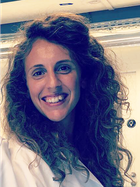
Funzione/Ruolo
Professoressa ordinaria di Chimica Fisica presso l’Università di Pavia e Direttrice del gruppo di ricerca PVsquared2 presso il Dipartimento di Chimica dell'Università di Pavia
Percorso professionale
Nel 2008, consegue la Laurea in Ingegneria Fisica presso il Politecnico di Milano e, nel 2012, il Dottorato di Ricerca in Fisica, presso la stessa università, sviluppando nuove tecniche di spettroscopia ottica risolta in spazio e tempo per l’indagine dei processi chimico-fisici ultrarapidi in materiali semiconduttori organici. Completa il dottorato con sei mesi presso l’Università di Oxford come visiting PhD. Dal 2012 al 2015 continua la formazione in Italia con un post dottorato presso l’Istituto Italiano di Tecnologia – centro di Milano (CNST@IIT). Successivamente, diventa scientist presso l’École Polytechnique Federale De Lausanne (EPFL), Svizzera, dove rimarrà per 4 anni con borsa Marie Skłodowska-Curie prima, per poi diventare team leader di un progetto Ambizione Energy. Nel 2019 diventa Professoressa associata presso l’Università di Pavia e dirige il progetto di ricerca ERC HYNANO, volto allo sviluppo di nano-materiali avanzati per celle solari di nuova generazione. Dal 2025 è professoressa ordinaria nello stesso ateneo.
Risultati scientifici
L’interesse di ricerca di Giulia Grancini è volto allo studio dei processi fondamentali che regolano l’interazione luce-materia in materiali semiconduttori avanzati utilizzati in dispositivi optoelettronici, con particolare attenzione ai dispositivi fotovoltaici. In questo campo, ha contribuito con studi innovativi, rivelando i processi fisico-chimici alla base della generazione di fotocorrente che avvengono su scale temporali ultrabrevi. Dalla conoscenza di tali processi fondamentali, l’interesse di Giulia Grancini si è poi rivolto alla realizzazione stessa di dispositivi fotovoltaici di nuova generazione utilizzando polimeri semiconduttori e materiali organici. Con il progetto ERC “HYNANO”, mira a una svolta nel solare, sviluppando materiali semiconduttori nano-strutturati rivoluzionari a base di perovskite ibrida, quali elementi foto-attivi per un solare efficiente, moderno, flessibile, a basso costo e a basso impatto ambientale.
Attività editoriali e pubblicazioni
E’ autrice di oltre 90 pubblicazioni (h index= 44, con oltre 14000 citazioni), tra cui:
[2020] Sutanto A, Szostak R, Drigo N, Queloz V, Marchezi P, Germino J, Tolentino H, Nazeeruddin M, Nogueira A, Grancini G* In Situ Analysis Reveals the Role of 2D Perovskite in Preventing Thermal-Induced Degradation in 2D/3D Perovskite Interfaces Nano Lett. 20, 5, 3992-3998.
[2020] Queloz V. et al. Spatial Charge Separation as the Origin of Anomalous Stark Effect in Fluorous 2D Hybrid Perovskites Adv. Funct. Mater. https://doi.org/10.1002/adfm.202000228
[2019] Grancini G*, Nazeeruddin M Dimensional tailoring of hybrid perovskites for photovoltaics Nature Rev. Materials, 4, 4-22.
[2018] Pantaler M, Cho K, Queloz V, García Benito I., Fettkenhauer C, Anusca I, Nazeeruddin M, Lupascu D, Grancini G* Hysteresis-Free Lead-Free Double-Perovskite Solar Cells by Interface Engineering ACS Energy Lett. 3, 1781-1786.
[2017] Grancini G. et al. One-Year stable perovskite solar cells by 2D/3D interface engineering. Nature Comm., 8(1) 1-8, 15684.
[2017] A. D. Jodlowski, C. Roldán-Carmona, G. Grancini, et al. Large guanidinium cation mixed with methylammonium in lead iodide perovskites for 19% efficient solar cells Nature Energy 2, 972.
[2016] Gratia, P., Grancini G.* et al. Intrinsic Halide Segregation at Nanometer Scale Determines the High-Efficiency of mixed cation/mixed halide Perovskite Solar Cells J. Am. Chem. Soc. 138 (49), 15821.
[2015] Grancini G. et al. Role of microstructure in the electron-hole interaction of hybrid lead halide perovskitesNature Photonics 9, 695-701.
[2014] D’Innocenzo V., Grancini G. et al. Excitons versus Free Charges: a Photophysical Picture of Organo-lead Tri- Halide Perovskites Nat. Commun. 5, 3586.
[2013] Grancini G. et al. Hot exciton dissociation in polymer solar cells Nature Mater. 12, 29.
[2013] Stranks S. D., Eperon G. E., Grancini G. et al. Electron-Hole Diffusion Lengths Exceeding 1 Micron in an Organometal Trihalide Perovskite Absorber Science 342 (6156), 341.
[2012] G. Grancini, et al. Boosting Infrared Light Harvesting by Molecular Functionalization of Metal Oxide/Polymer Interfaces in Efficient Hybrid Solar Cells Adv. Funct. Mater. 22, 2160.
Riconoscimenti e premi
Nel 2015 ha ricevuto il prestigioso National Award per la Fisica 2015 di EDISON, “in memoria di Francesco Somaini”.
Nel 2017 è stata insignita del premio IUPAP Young Scientist Prize in Optics dall’ International Commission of Optics per “deep knowledge on photophysical properties and ultrafast light-induced dynamical processes”.
Nel 2018 ha ricevuto il premio per giovani scienziati in Fisica “Swiss Physical Society Award” dalla Swiss Physical Society.
Nel 2018, ha ricevuto il grant Europeo ERC Starting Grant HYNANO (1.5 M€) per lo sviluppo di “HYbrid NANOstructured multi-functional interfaces for stable, efficient and eco-friendly photovoltaic devices”.
Nel 2019 è stata nominata USERN Laureate in Physical Science. Inoltre, da gennaio 2020, è stata nominata Italian Ambassador for USERN.
Nel 2019 appare tra gli “Highly Cited Researchers” (ranking in the top 1% by citations for field and year), Web of Science
Dal 2020 è parte del gruppo di scienziati “Gruppo 2003” e appare nella lista dei Top Italian Scientist.
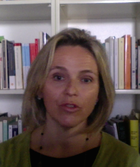
Funzione/Ruolo
Professoressa ordinaria di Filosofia Politica e Direttrice del Centro Studi Politici Hannah Arendt presso l’Università di Verona; Delegata del Rettore al Public Engagement.
Percorso professionale
Olivia Guaraldo si laurea in filosofia all’Università di Bologna (1995) per poi proseguire gli studi in Finlandia, dove consegue il PhD in Political Science presso l’Università di Jyvaskyla (2001). Dal 2005 lavora, prima come ricercatrice, poi come professoressa associata in Filosofia Politica all’Università di Verona. Dal 2020 è professoressa ordinaria.
Risultati scientifici
Si è principalmente occupata del pensiero politico di Hannah Arendt. Sulla figura di Arendt ha pubblicato due monografie (2003 e 2014) ed è intervenuta in qualità di esperta in diverse occasioni accademiche (convegni italiani ed internazionali) e in ambiti divulgativi (scuole, radio, social media). Dal 2016 dirige il centro Studi politici Hannah Arendt presso l’Università di Verona.
Altre tematiche di cui Olivia Guaraldo si è occupata sono la teoria politica femminista, la storia politica e sociale delle donne e il pensiero della differenza sessuale. Ha curato e introdotto due testi di Judith Butler in italiano (Vite precarie, Fare e disfare il genere).
Attività editoriali e pubblicazioni
[2019] “Illusione e realtà nell'epoca della post-verità”, in Bistagnino, G. Fumagalli, C., Fake news, post-verità e politica(ebook), Fondazione Giangiacomo Feltrinelli, Milano, pp. 33-52.
[2018] “Postcritica: una genealogia”, Politica & Società, 7:2, pp. 163-190.
[2018] “Public happiness. Revisiting an Arendtian hypothesis”, Philosophy Today, 62:2, pp. 395-416.
[2018] ‘La libertà di essere liberi’: circolarità della politica e autonomia della rivoluzione in Hannah Arendt”, Filosofia politica, 35:2, pp. 285-302.
[2018] Introduzione, in A. Cavarero, Platone, Raffaello Cortina editore, Milano, pp. 9-17.
[2018], La vulnerabilità come paradigma fondativo, in O. Giolo, B. Pastore (a cura di), Vulnerabilità. Analisi multidisciplinare di un concetto, Carocci, Roma, pp. 57-71.
[2018] “Violenza, vulnerabilità, invarianza antropologica: alcuni spunti di riflessione”, Iride, 31, n. 85, pp. 643-648.
[2017] “Una fondamentale gratitudine per ciò che è dato”. Hannah Arendt e l’identità ebraica, in O. Ombrosi, (a cura di) Ebraismo “al femminile”. Percorsi diversi di intellettuali ebree del Novecento, Firenze, Giuntina, pp. 217-234.
[2016] with A. Voela, ‘If not now, when?’: feminism, activism and social movements in the European South and beyond, “Gender and Education”, Vol. 28, n. 3, pp. 315-329 (DOI:10.1080/09540253.2016.1175170)
[2016] Safe for Life: Neoliberalism and Mothers’ Milk, in Garret, Jensen, Voela (eds.), We Need to Talk about Family.: Essays on Neoliberalism, the Family and Popular Culture, Newcastle, Cambridge Scholars Publishing, pp.118-136.
[2012] “Il populismo, la democrazia e il femminile addomesticato”, in Italianieuropei, 1/2012, pp. 60-66.
[2012] Comunità e vulnerabilità: per una critica politica della violenza, ETS, Pisa (book).



